EXCLUSIVE INTERVIEWS: INSIGHTS FROM TODAY’S TOP AUTHORS INDUSTRY TRENDS: WHAT’S NEXT FOR PUBLISHERS & BOOKSELLERS?
PLUS: MUST-READ BOOKS FOR YOUR TBR LIST

WHAT TO READ NEXT IN INDEPENDENT PUBLISHING


EXCLUSIVE INTERVIEWS: INSIGHTS FROM TODAY’S TOP AUTHORS INDUSTRY TRENDS: WHAT’S NEXT FOR PUBLISHERS & BOOKSELLERS?
PLUS: MUST-READ BOOKS FOR YOUR TBR LIST

WHAT TO READ NEXT IN INDEPENDENT PUBLISHING

All we wanted was a really good magazine. About books. That was full of the really great stuff. So we made it. And we really like it. And we hope you do, too. Because we’re just getting started.

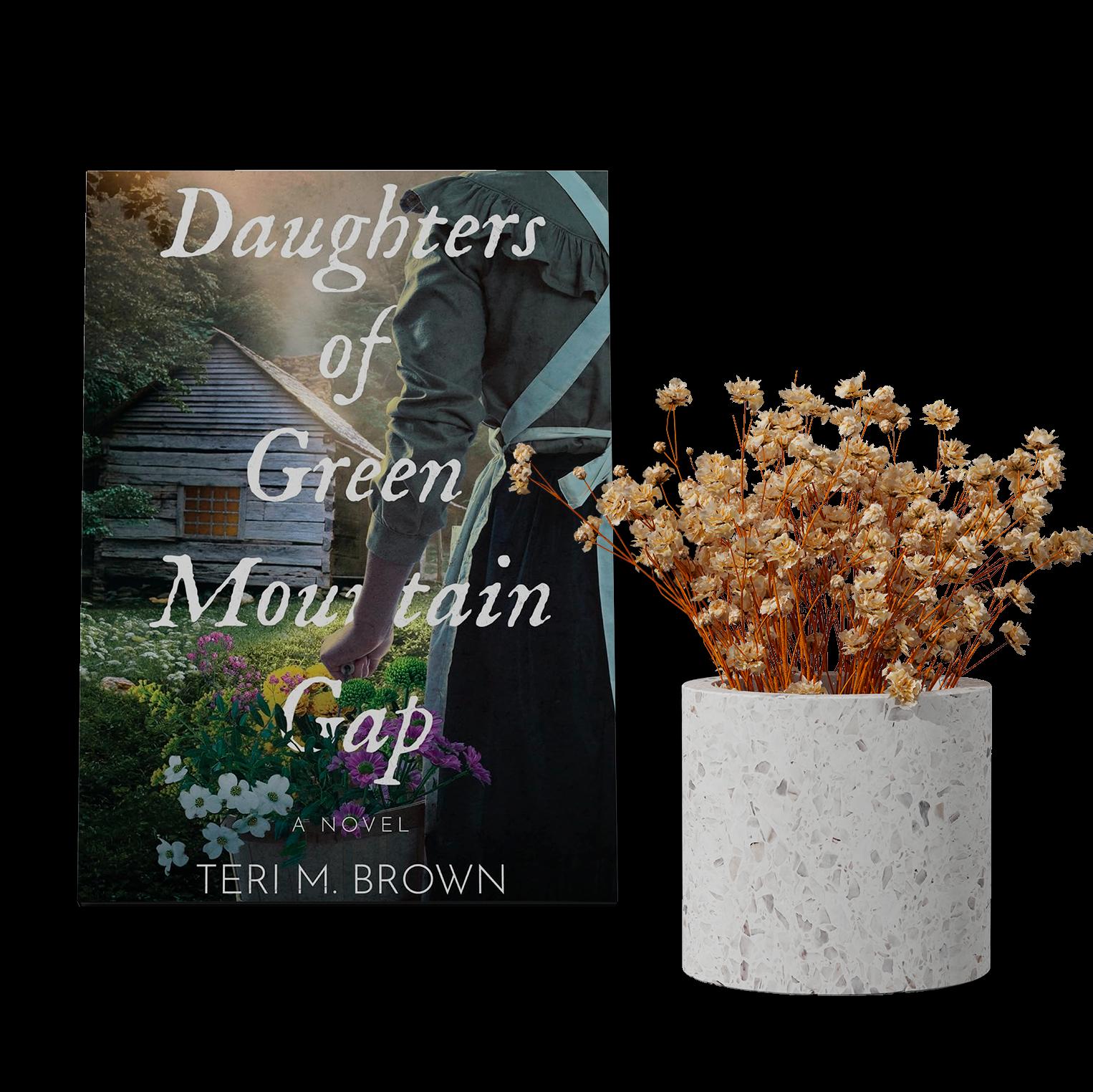

PRESIDENT, EDITOR IN CHIEF
Sarah Kloth
PARTNER, PUBLISHER
Debra Pandak
CREATIVE DIRECTOR
Corinna Kloth
CONTRIBUTING EDITOR
Christina Consolino
Michele Mathews
Anthony Carinhas
V. Jolene Miller
Chrissy Brown
Corinna Kloth
FINANCE MANAGER
Jane Miller
For Advertising Inquiries: e-mail sarah@shelfmediagroup.com
For editorial inquiries: e-mail media@shelfmediagroup.com
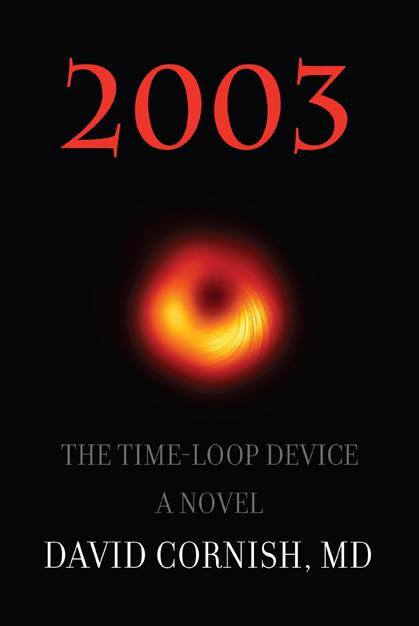
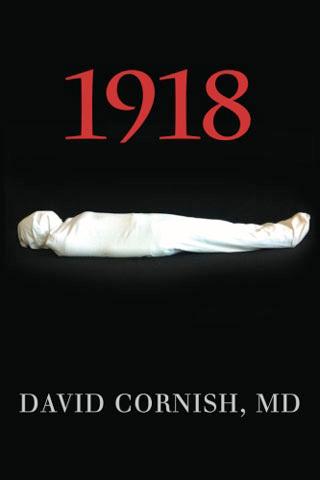

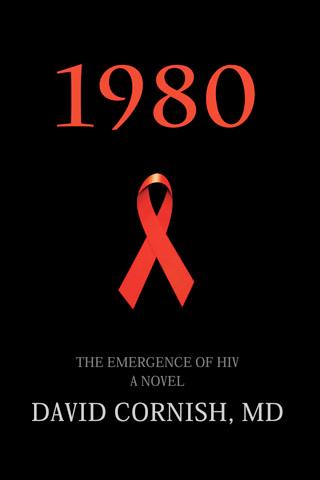
Nolan Emerson, PhD, is a brilliant young theoretical and experimental physicist who is a professor at the University of Geneva, and the lead scientist at the CERN particle accelerator. He is a leader in the areas of general relativity and quantum mechanics. Dr. Emerson devises an experiment so radical and revolutionary that it seeks to unlock the astounding, complex, and mysterious secrets of Einstein’s space-time. Ultimately, his work challenges the fundamental notions of consciousness and of the concept of reality itself.
«(AUDIOBOOK available! See DavidCornishBooks.com)«
1918: THE GREAT PANDEMIC
Major Edward Nobel’s mission, as a physician, is to help protect American troops from infectious ailments during the First World War. However, his unique vantage point in Boston allows him to detect an emerging influenza strain that is an unprecedented global threat. Eventually, the 1918 influenza pandemic killed up to 100 million people, and became the worst natural disaster in human history.
1877: A NORTHERN PHYSICIAN IN SOUTHERN UNGOVERNED SPACES
Colonel Charles Noble is a US Civil War veteran, and an Army surgeon reservist. Extreme violence in the former Confederacy, in anticipation of a national election, has caused President Grant to send additional federal troops to the Southern states. Terrorists are determined to counter Noble’s good intentions, as they threaten the civil rights, and the very lives, of all who oppose them.
1980: THE EMERGENCE OF HIV
Dr. Arthur Noble is a brilliant first-year medical resident in San Francisco. Noble encounters a strange new ailment that seemingly appears out of nowhere, and delivers its victims a most horrible merciless death. Dr. Noble struggles to find answers to the medical mystery, even as many researchers and society refuse to believe that it is a serious public health hazard, or that it even exists.
LEARN MORE AT
18 New Release Roundup: Summer 2024 By Corinna Kloth
60 What Does It Mean To Be A ‘Great American Novel’ Today? By Michele Mathews
76 How Influential: BookTok, Social Media, & Traditional Reviews By Sarah Kloth
82 Magic, Myth, & Slow Burn Romance: Why Romantasy Has Readers Hooked By Michele Mathews
88 The Rise of Small Press and Indie Bookstores By Michele Mathews
94 Interview with Christopher Zeischegg By Anthony Carinhas
102 Interview with Jennifer Lang By Christina Consolino
108 Interview with Aliah Wright By Michele Mathews
122 The Future of the Audiobook Boom By Sarah Kloth
154 E-Book Sales Resurgence: What It Means for the Future of Reading By Sarah Kloth


BY SARAH KLOTH, PUBLISHER
Welcome to the Spring issue of Shelf Unbound, where we celebrate new beginnings and the promise of fresh stories.
Spring always brings to mind my childhood, running through the neighborhood with a book in hand, feeling that thrilling sense of adventure and endless possibilities. The world seemed full of open doors, just waiting to be explored.
I remember the excitement of diving into a new book, feeling the magic of discovery. That same spark still fuels me today. Writing, like reading, holds that sense of wonder and possibility—a chance to step into a new world and create something that could resonate with others.
As we step into this season of
growth and renewal, let’s also embrace the stories that remind us of our own potential to bloom. The writers featured in this issue, like the young versions of ourselves, are bravely sharing their worlds with us. They are daring to dream and inviting us along for the ride. This issue is about more than just books—it's about embracing the unknown, taking chances, and remembering that every story, every page, holds the promise of new discoveries. Whether you're reading or writing, spring is a time to refresh your spirit and find adventure in the stories waiting to unfold. Here's to the magic of discovery, the thrill of beginning anew, and the stories that bring us all to life.
Enjoy the issue!
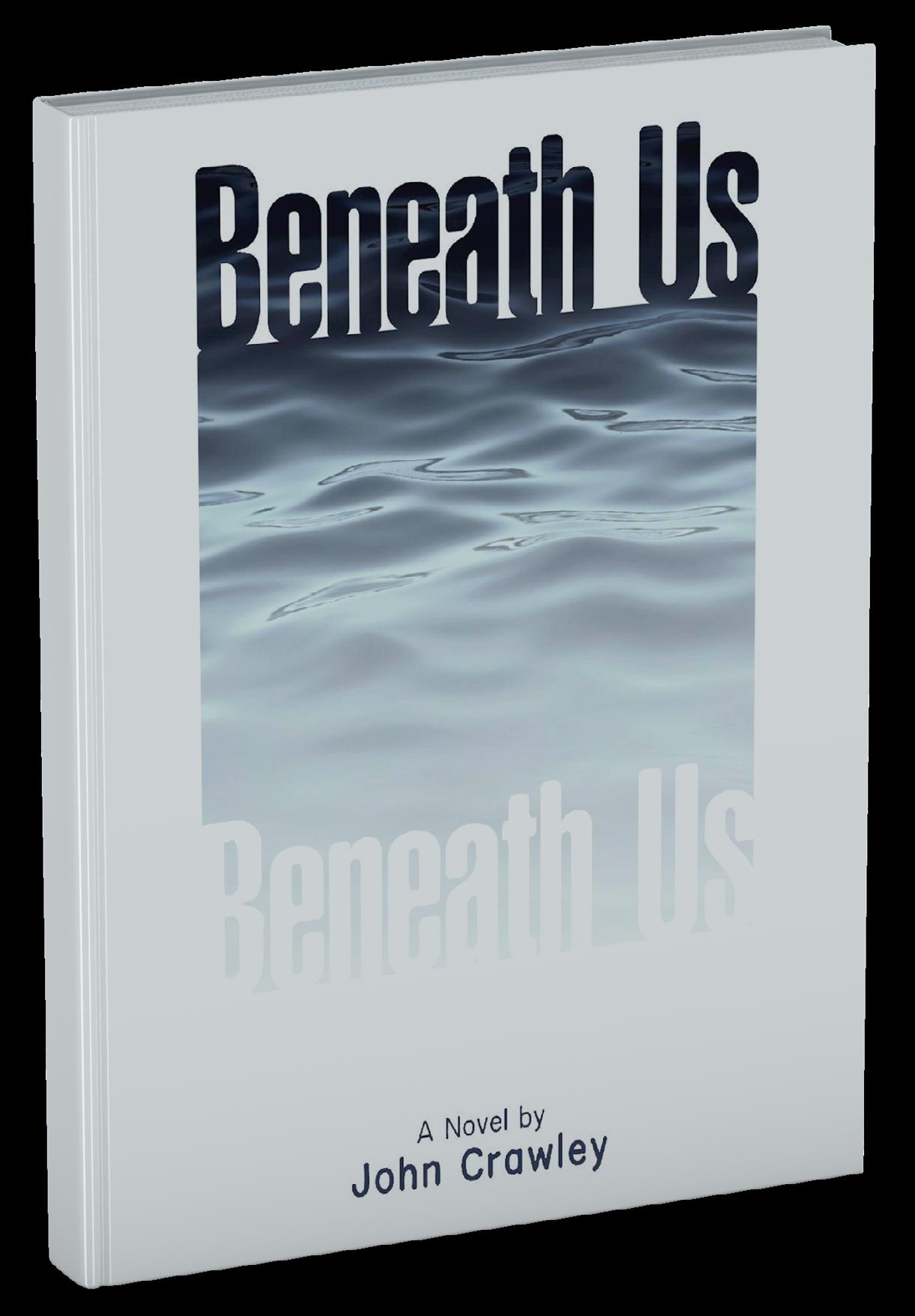
What lies within our hearts, is often corrupted by what lives beneath us.
Award-winning author, John Crawley, returns to his Texas roots to bring us a pulsating love story shrouded in a dark mystery.
Beneath Us, his 21st book, is the tale of Jack Lawrence, a successful author swimming up from his on-again, offagain affair with the bottle, and his former secret lover, Missy Rusk, a celebrated actress and fashion model, being reunited at a family funeral after twenty years of separation. What caused their estrangement? What was the unspeakable incident that drove them apart two decades earlier? Can they find forgiveness for each other, as well as atonement from their unsettling history?
Set with the backdrop of the famous slant-hole drilling days of the East Texas Oil Field, believed to be the largest unsolved crime in the history of American business, Beneath Us is the story of lost love mingling with the dark secrets of two families from different rungs on a very congested social ladder and the deceit that occurred 3,500 feet beneath them in the world’s richest oil field. www.johncrawleybooks.com
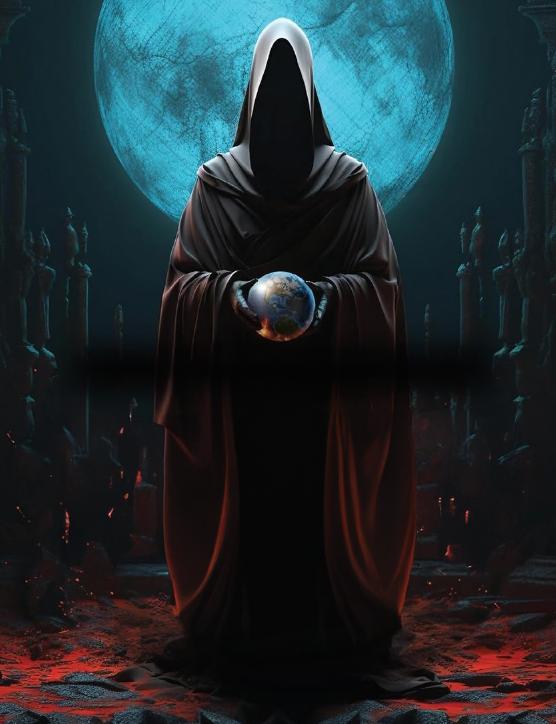
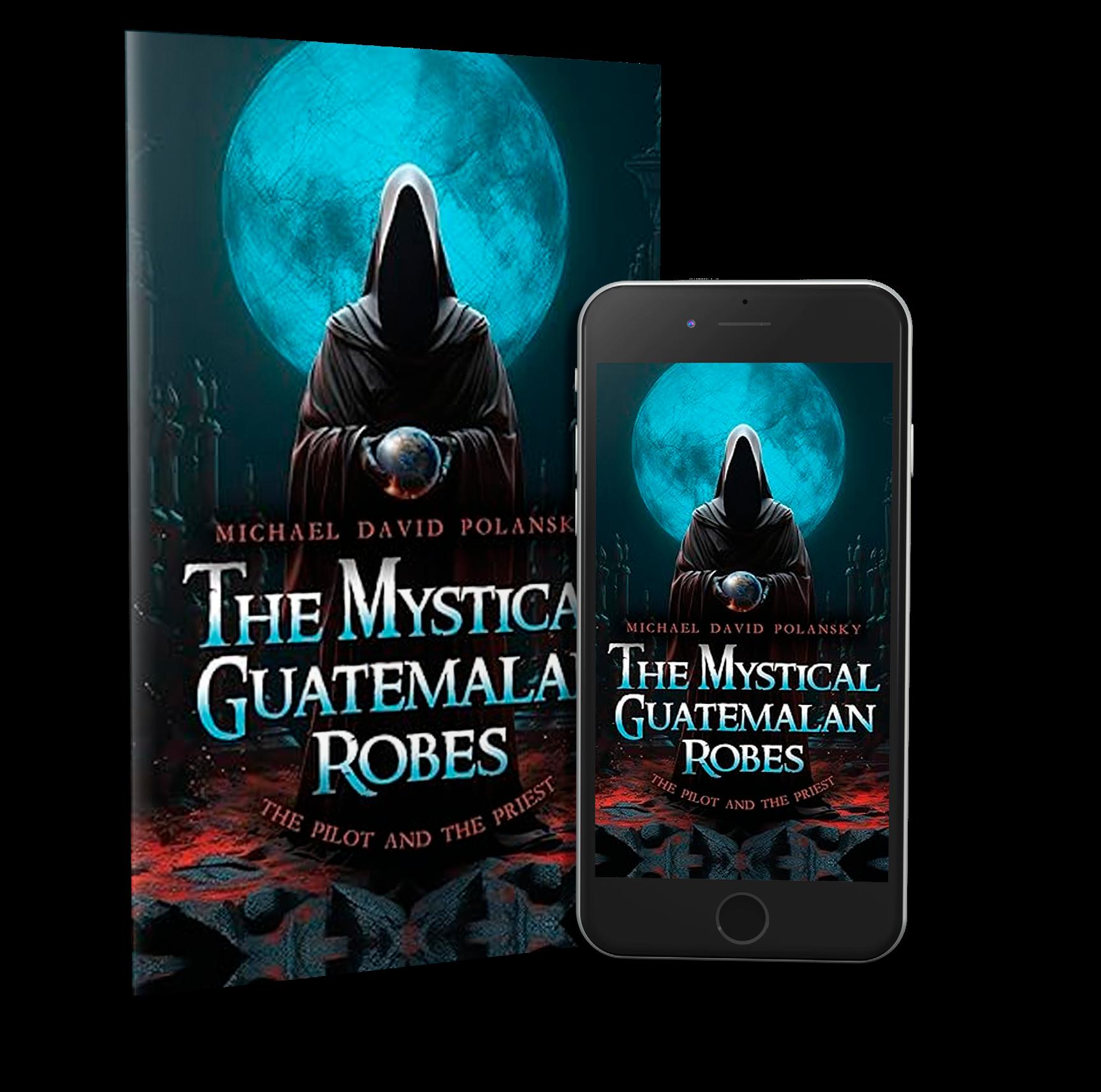
A ruthless, sixteenth-century pedophile monk is granted immortality by a mysterious robed sect secluded in the highlands of Guatemala. He carves a tortuous, secretive path forward in time until he is discovered by a troubled airline pilot suffering from post-traumatic stress disorder. Pilot and priest engage in a holy war only to discover that both share a painful, common past. The winner in this epoch battle carries the fate of humanity in his palms. Victory or defeat may well rest in the secrets and power of a single robe.

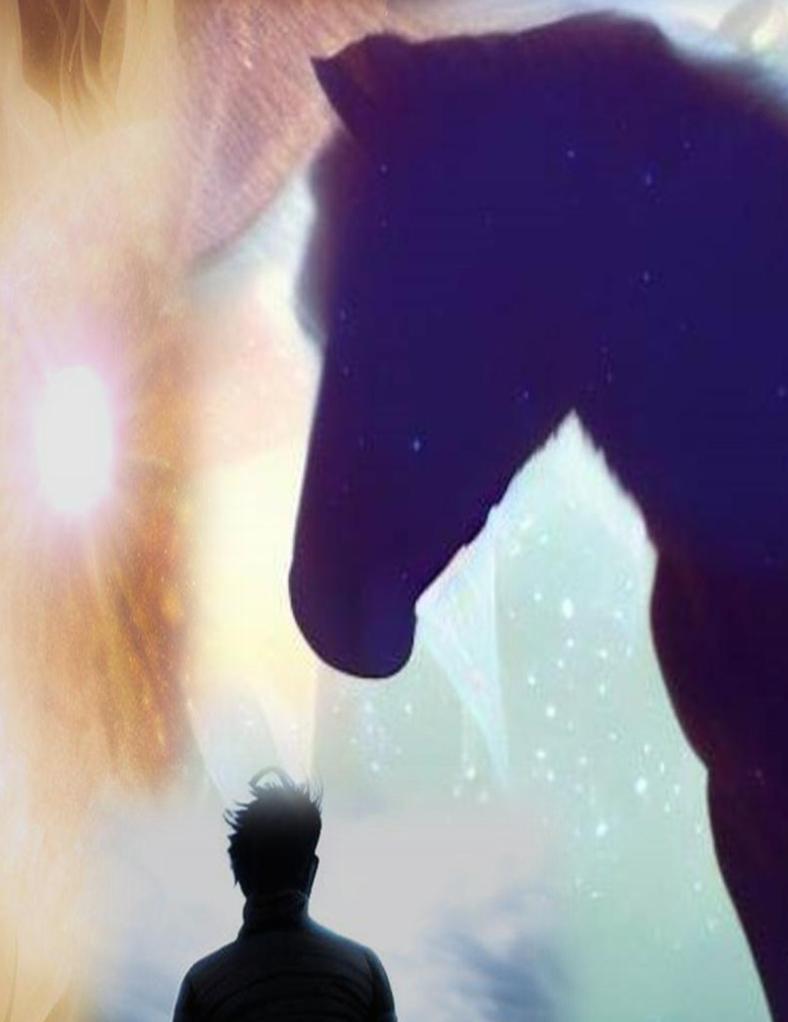
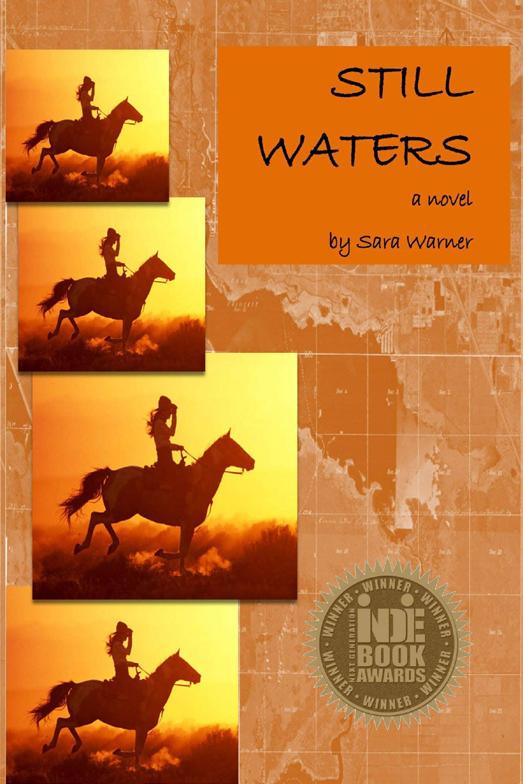
by
Sara Warner
A powerful story, beautifully told. Frank Grace returns home from an extended tour in Iraq with nothing on his mind but the horrors of war. In an effort to reconnect with his longtime fascination with horses, he buys Dannyboy, a school horse who has fallen on hard times. But what Frank plans as a simple fix to his grief instead launches him into a complex world that will test him in ways he never imagined.
Horse
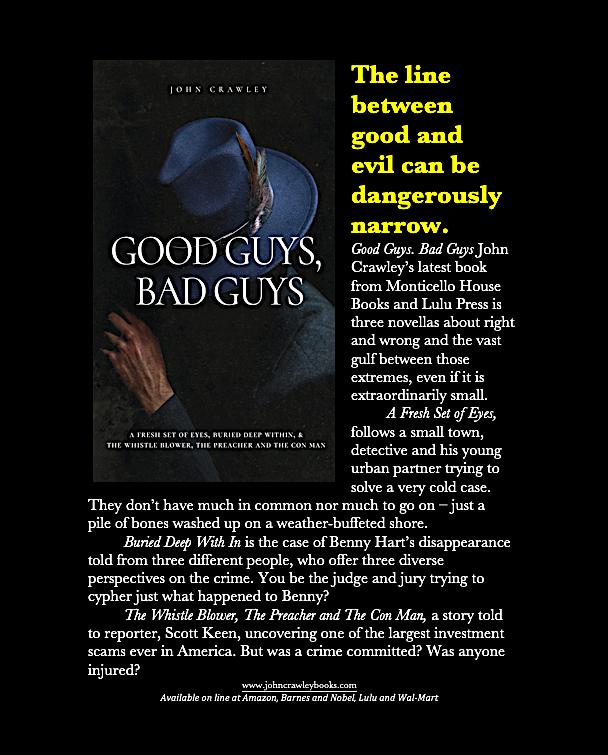
Finalist: Next Generation Indie Book Awards
“A gripping, action-packed ride. Fans of Deliverance and The Godfather will love it.”
- Kirkus Reviews
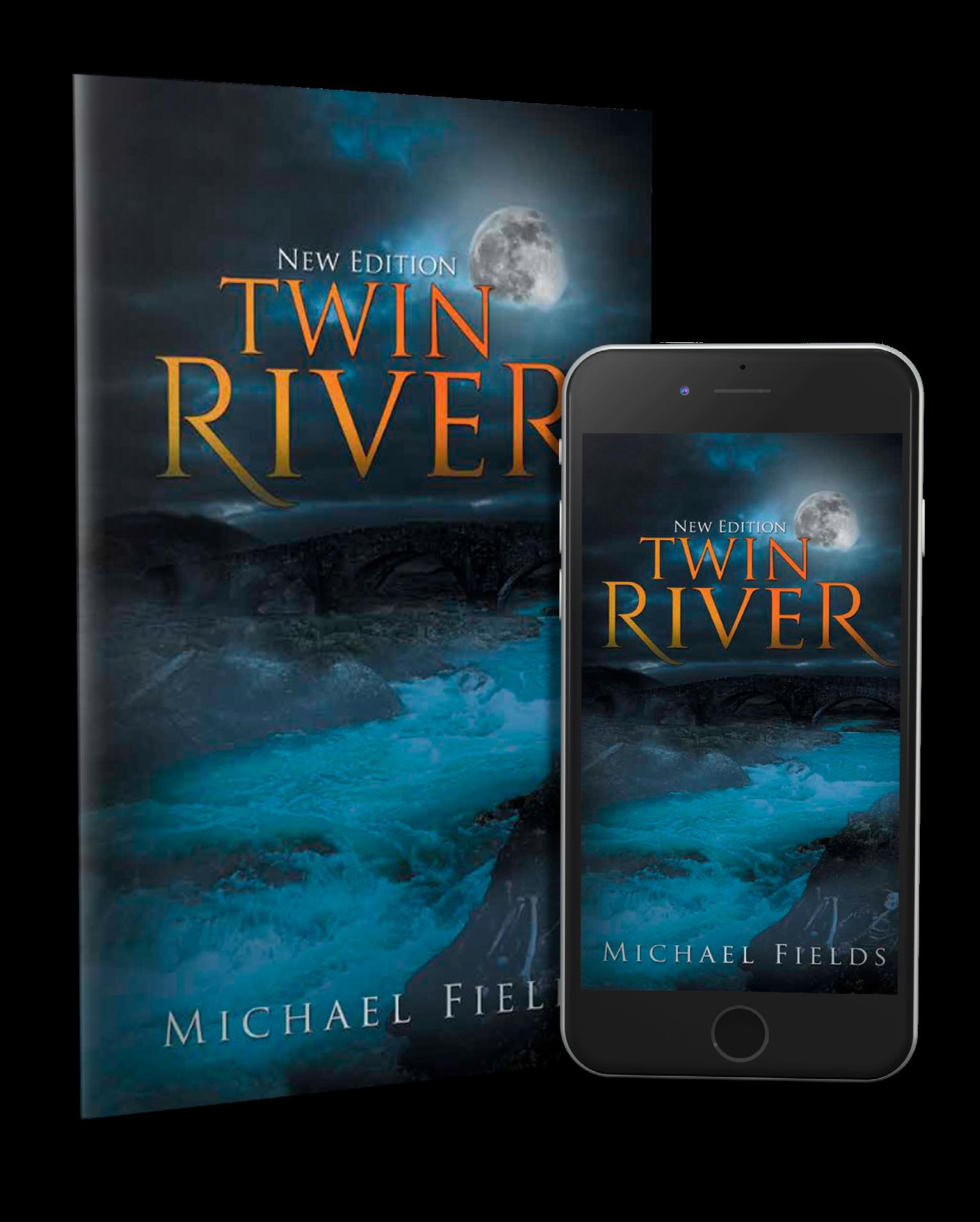


The Philadelphia mob wants Twin River. But standing in their way is Gene Brooks—a Vietnam veteran, a high school janitor, and a man with nothing to lose. When the town’s darkest history begins to repeat itself— kidnappings, murders, and a school hostage crisis—justice can’t wait for the law.
A relentless thriller in the tradition of Dirty Harry, First Blood, and Death Wish, Twin River is a bloody salute to vigilante justice.
“This grisly thriller will sink its teeth right in you.”
- Kirkus Reviews
“Twin River II is ideal for those who prefer a dose of reflection and depth of character along with swiftly moving action and lurid confrontations” - Clarion Review
“Thrilling, action-packed, and captivating—leaves you eager for the next installment.” - Readers’ Favorite



His name is Palladin— as in pallbearer.
Wesley Palladin was raised to be a killer. Trained by his father and hardened by the Philadelphia mob, he perfected his deadly craft. But when a contract goes wrong, he vanishes— reappearing in Twin River as a quiet security guard.
Then he meets Matt Henry, a violent teen on the brink of destruction. As Matt battles extreme bullying, a brutal juvenile institution, and a dark hunger for revenge, Palladin becomes his mentor. But in a town plagued by kidnappings, human trafficking, and unchecked brutality, redemption comes at a deadly cost.
“Readers who love classic gritty crime novels like The Godfather will love Twin River III.” – Pacific Book Review
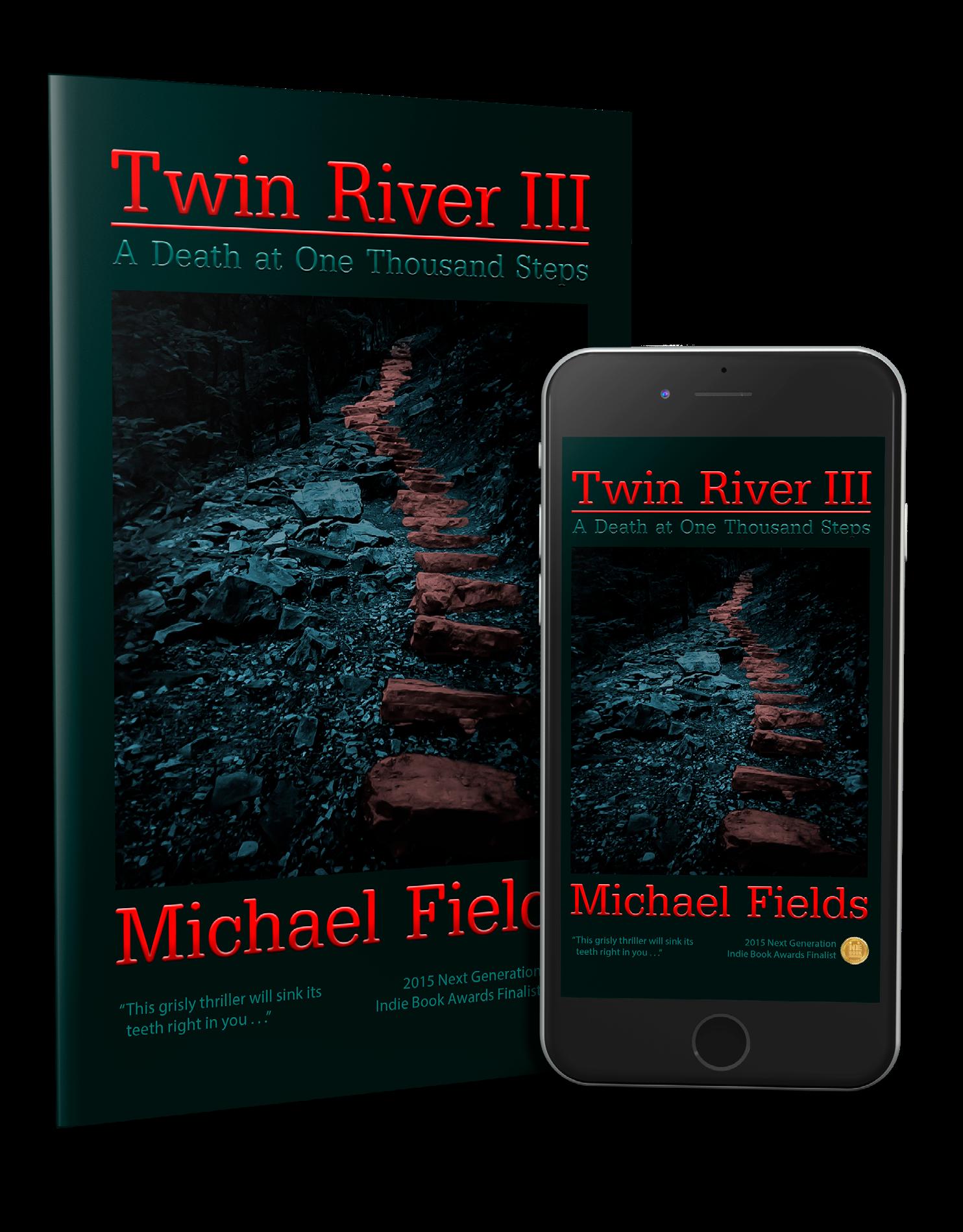


When Twin River students Heather Wainwright and Alice Byrd are abducted into a twisted underground video ring, they have no idea of the horror awaiting them. Meanwhile, a violent confrontation brews as mobsters, mercenaries, and vigilantes collide at the sinister Happy Hollow Hunt Club, a fortress guarded by electrified fences, ruthless enforcers, and monstrous wild hogs.
Vietnam veteran Gene Brooks and young Matt Henry refuse to let evil reign in their town. With a team of unlikely heroes, they take the fight to the mob in a battle of grit, survival, and vengeance— culminating in a heart-stopping showdown at the historic One Thousand Steps.
“The latest visit to Twin River becomes an exhilarating exercise in sustained, multipronged tension” - Kirkus Reviews
“Intense, sinister, and thrilling, Michael Fields has finished the Twin River Series with a powerful ending” - Readers’ Favorite



The final book in the Twin River series, C U When U Get There, delivers an explosive conclusion filled with terror, survival, and vengeance.
Resurrected in Death Valley, Cain Towers embraces his brutal nature. With his ruthless uncle Abel, he returns to Twin River, Pennsylvania, seeking revenge against Vietnam veteran Gene Brooks and the town that betrayed him. But their deadly path collides with three vulnerable teens— Stanley Banks, Niles Wilson, and Amber Crawford—who must fight to survive.
Inspired by real-life crimes, Fields delivers a relentless, pulse-pounding thriller. From the scorching desert to a town on edge, Twin River IV is an electrifying finale that will leave readers breathless.

Sasha, the youngest in a family of royal tigers, is preparing to officially receive her tiara. Follow along as she takes ballet classes, meets new friends, and learns valuable lessons on her journey to become The Furry Princess.
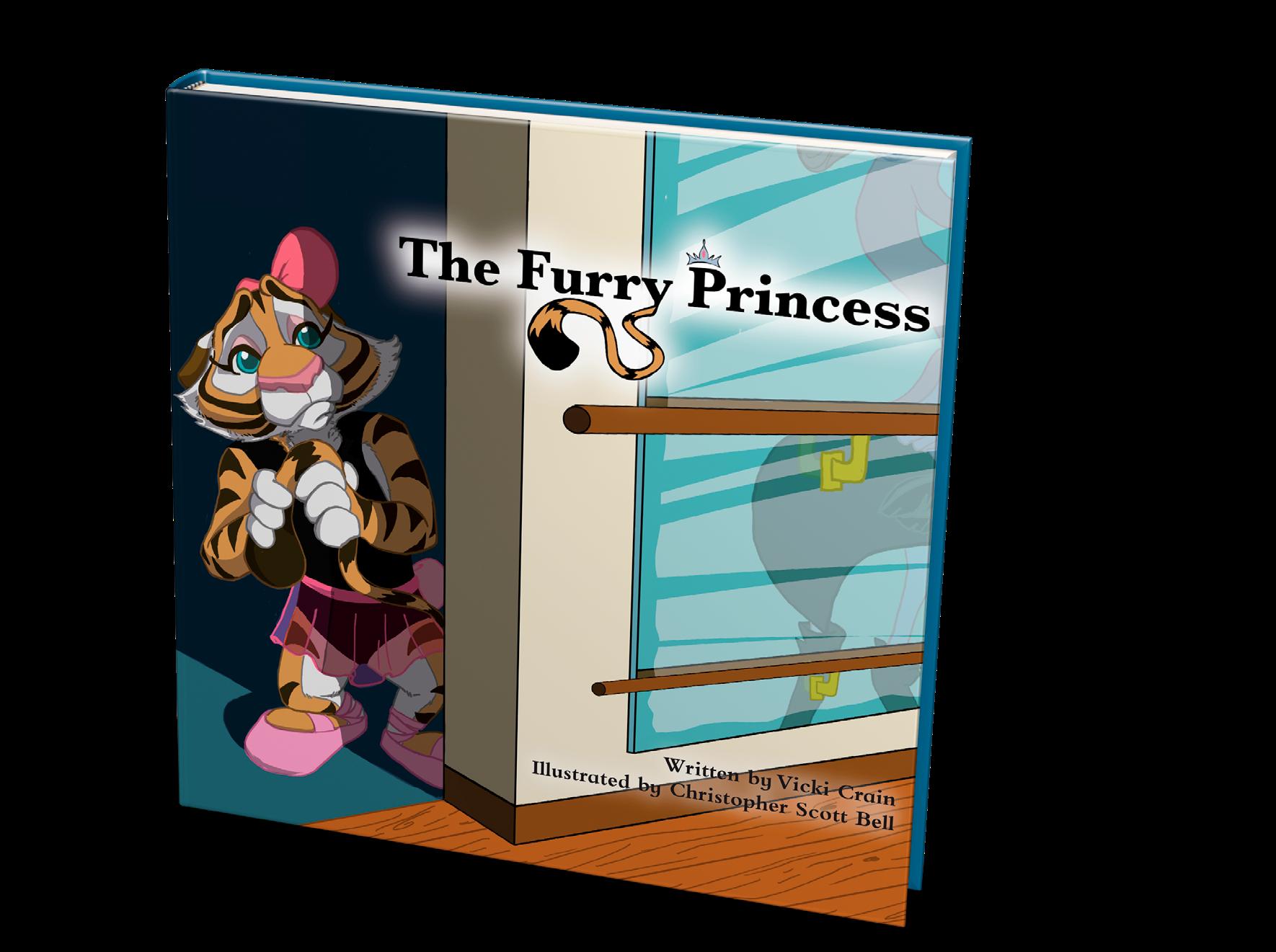
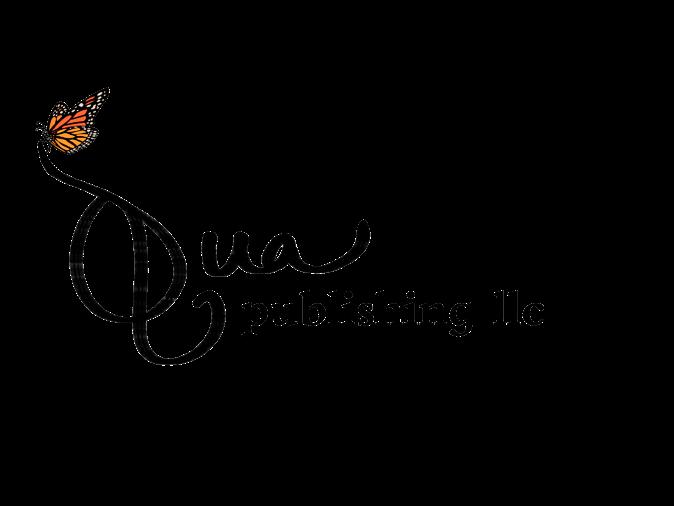

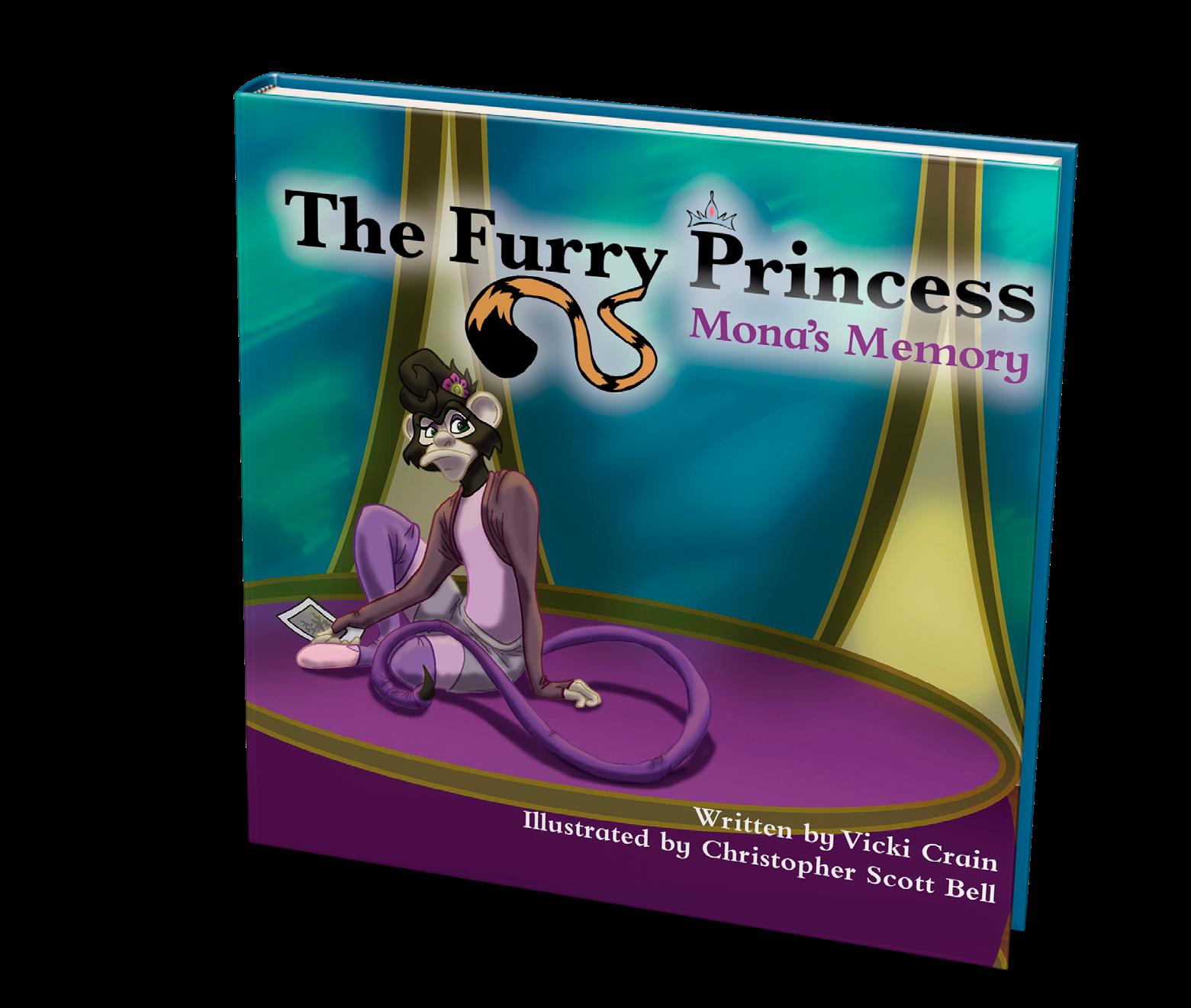

Harold Phifer
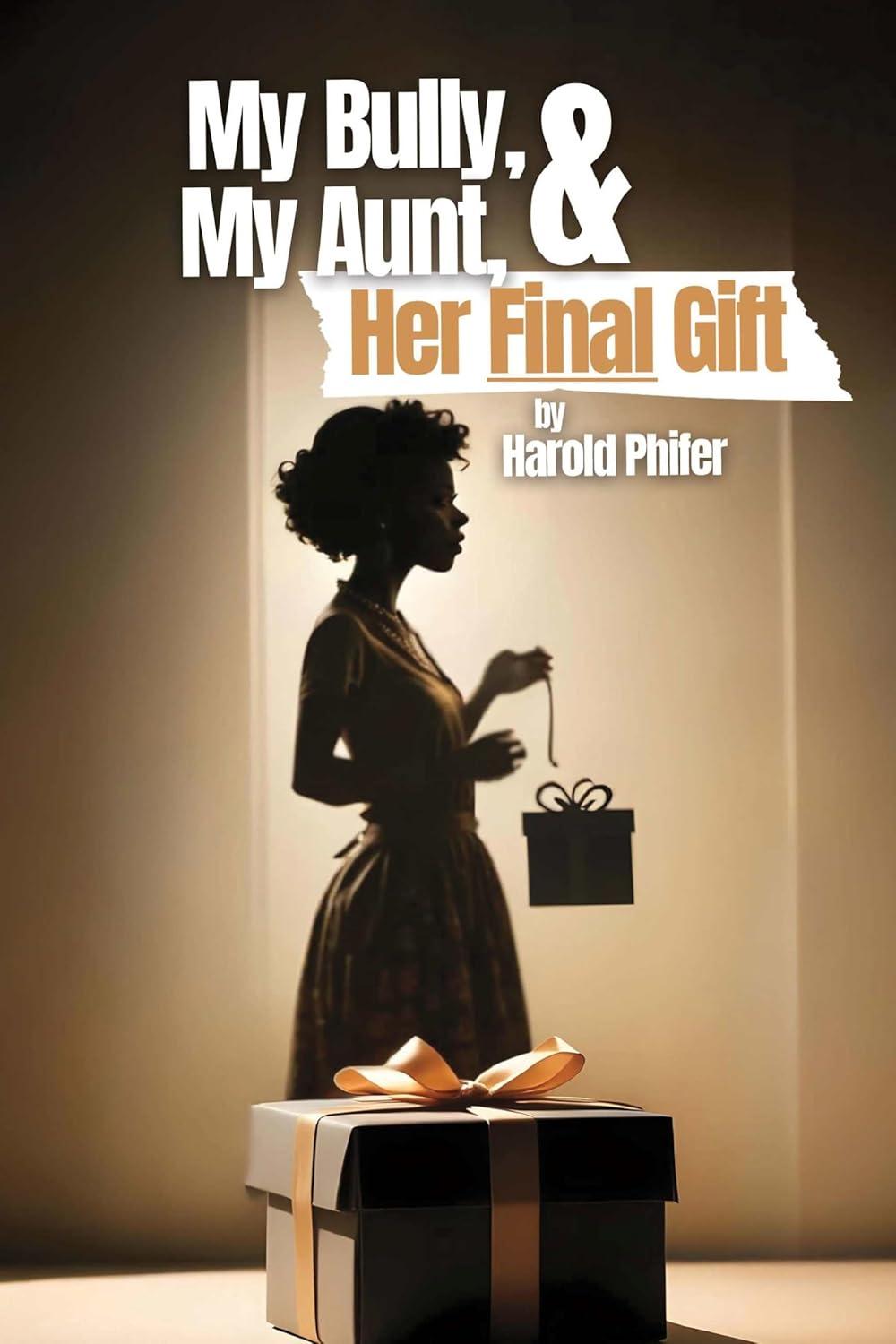
In My Bully, My Aunt, and Her Final Gift, Hal confronts the bittersweet memories of his childhood, shaped by his aunt’s unpredictable and often cruel influence. As he plans her memorial—a gathering no one seems eager to attend—Hal is pulled back into a world of twisted philosophies and emotional turbulence.
But amid the chaos, he discovers unexpected lessons that lead to healing, self-discovery, and redemption. Through laugh-out-loud moments and heartfelt revelations, this memoir reveals how even the darkest


BY CORINNA KLOTH
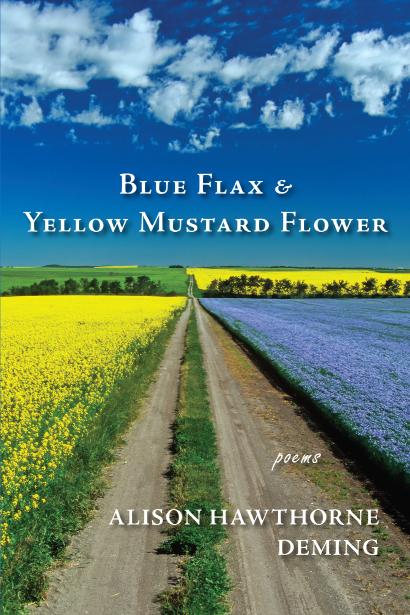
In her sixth poetry collection, award-winning writer Alison Hawthorne Deming extends her exploration of the meanings of nature into the tensions of our political and ecological moment. Whether traveling to a biological field station in the Canadian Maritimes, ruins of the Temple at Delphi, community gardens in Havana, the Sonoran Desert’s spring bloom, or eruptions of violence in America, she finds in art healing reciprocities between beauty and devastation. The title refers to crops that grow on farmland in North Dakota where our subterranean nuclear missiles await deployment in their silos. The image epitomizes the tensions that underlie our ordinary days. And yet in these poems she finds “light having an edge over darkness.” Poet and naturalist, celebrant and elegist, Deming’s poems pay homage to “every organism’s joy to thrive,” every poem an act of defiance against human cruelty.
Alison Hawthorne Deming is the author of six books of poetry and five books of nonfiction, editor of the anthology The Gift of Animals: Poems in Celebration of Animals & The People Who Love Them. Among her awards are a Guggenheim Fellowship, NEA Fellowships, Stanford’s Stegner Fellowship, and the Walt Whitman Award from the Academy of American Poets. Her writing has been widely published, including in the Norton Book of Nature Writing and Best American Science and Nature Writing. She is Regents Professor Emerita at the University of Arizona. She lives in Tucson, Arizona, and Grand Manan, NB, Canada.
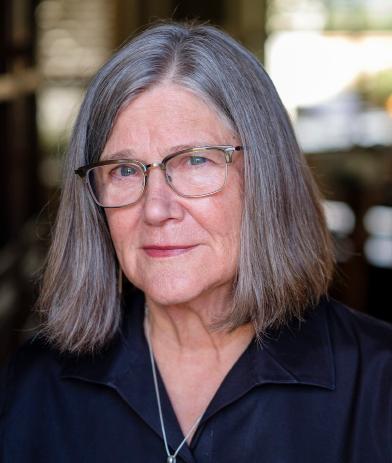
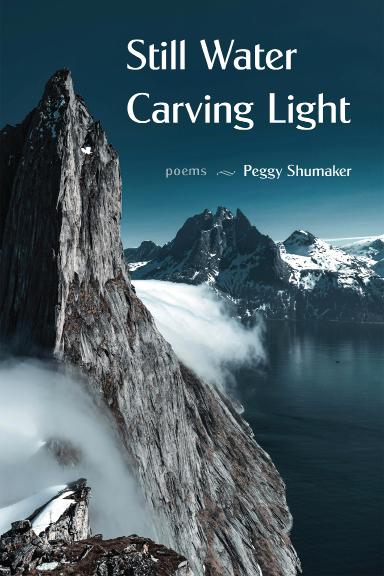
Still Water Carving Light tenderly navigates the depths of loss and memory, offering a poetic meditation on resilience, love, and transformation. Peggy Shumaker delicately captures the fragility of the human body, the profound bonds between loved ones, and the unpredictable journey of life itself. As seasons shift and bodies age, these poems gracefully explore the ebb and flow of pain and healing, revealing the quiet ways in which grief shapes and reshapes us.
Through intimate snapshots of everyday life, Shumaker crafts moments that feel both deeply personal and universally resonant, inviting readers who have experienced loss to connect with their own emotions. The collection is filled with a reverence for nature, time, and the enduring power of memory, each poem serving as a gentle reminder of life’s impermanence and beauty. With compassionate insight, Shumaker reminds us that while grief endures, it need not define us. Instead, it can be embraced, allowing for profound growth, renewed connections, and a deeper understanding of what it means to carry love forward.
Peggy Shumaker is the daughter of two deserts—the Sonoran desert around Tucson and the subarctic desert of interior Alaska. Shumaker was honored by the Rasmuson Foundation as its Distinguished Artist, served as Alaska State Writer Laureate, and received a poetry fellowship from the National Endowment for the Arts. She is the author of nine books of poetry. Her lyrical memoir is Just Breathe Normally.

Among Clarence Major’s previous sixteen poetry collections are Swallow the Lake (a National Council on the Arts winner), Configurations: New and Selected Poems (a National Book Award Bronze Medal winner), and Sporadic Troubleshooting (2022). He has contributed poetry to the New Yorker, Harvard Review, American Scholar, American Poetry Review, Best American Poetry, Literary Review, Ploughshares, and dozens of other periodicals.
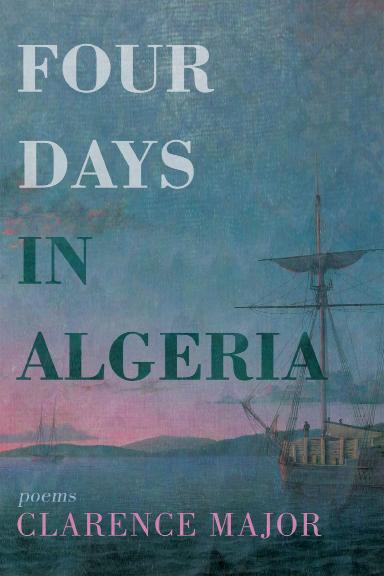
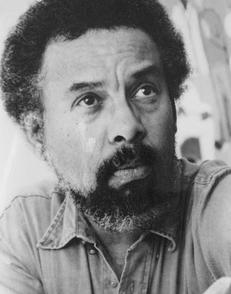
Clarence Major’s Four Days in Algeria is a poetic feast of travel, taking us to Paris, Florence, Ghana, Algeria, and many other places, immersing us in landscapes both familiar and foreign. We also experience the seasons in fresh and unexpected ways, as Major captures the shifting light, the subtle changes in air, and the rhythms of daily life with striking clarity. Delicious food, too, is laid before us, evoking the sensory pleasures that enrich our journeys. There are quiet moments, as on a houseboat, where the poet is writing poetry, lost in thought yet deeply attuned to the world around him.
Major gives us adventurous encounters with ordinary life, rendered through poems of dazzling agility and fearless bluntness. These are also poems of unfettered Augustan honesty, unafraid to explore the complexities of human experience with both sharp precision and warm lyricism. They radiate with lyrical purity, carrying an undercurrent of discovery and reflection. Allegorical and spontaneous, they are full of holiday energy as the poet passionately affirms life, whether in motion through bustling streets and distant landscapes or in the stillness of quiet moments that offer space for introspection and artistic creation.
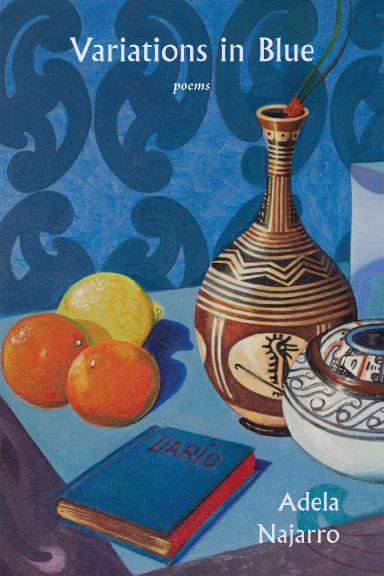
The poems in Variations in Blue cycle through the traumatic residue of dysfunctional relationships, the complexities of Latinx representation through a series of ekphrastic poems, and reimagine Nicaragua as a homeland set in a volcanic landscape, where memory and identity are in constant motion. Najarro crafts a lyrical space where personal and collective histories intertwine, exploring the tension between belonging and exile, love and loss, silence and expression.
Each section contains a series of poetic variations on a theme, weaving a rich tapestry of voices and perspectives that challenge conventional narratives. The poems reverberate and rotate through the indeterminacy of language, embracing its fluidity to reveal the evershifting nature of meaning. Najarro’s work is at once deeply intimate and broadly resonant, offering a layered meditation on how experience is shaped, revised, and reinterpreted over time. Variations in Blue insists that the complexities of experience must be understood one version at a time, each distinctly unfolding its unique design, refusing a single interpretation. Through striking imagery and rhythmic exploration, Najarro reminds us that poetry, like memory, is never static—it bends, reshapes, and deepens with each return.
Adela Najarro is a poet with a social consciousness who is working on a novel. She serves on the board of directors for Círculo de poetas and Writers and works with the Latine/x community nationwide, promoting the intersection of creative writing and social justice. She is the author of four poetry collections: Split Geography, Twice Told Over, My Childrens, and Volcanic Interruptions, a chapbook that includes Janet Trenchard’s artwork.

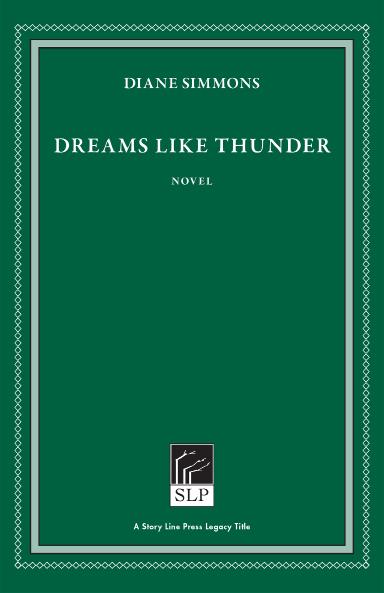
Dreams Like Thunder unfolds on a small Eastern Oregon farm nestled between Baker and Hells Canyon, where the weight of history hangs heavy over a family caught between past and present. Set over the course of just a few days in 1959, the novel immerses readers in a world where time moves unevenly—where some members of the family seem more rooted in the myth of their pioneer past than in the realities of the 20th century. These myths, however, are as shifting as the land itself, shaped by the perspectives of those who tell them, each version carrying its own truth, embellishment, and erasure.
At the heart of the story is Alberta, a perceptive tenyear-old who stands at the crossroads of inheritance and self-discovery. She is the heir not only to the farm but also to the tangled web of stories that define her family's legacy. As she listens, questions, and observes, she begins to piece together a more complex and sometimes uncomfortable truth—one that will ultimately shape her understanding of who she is and the kind of future she might claim for herself. With rich, evocative prose, Dreams Like Thunder explores the tension between nostalgia and reality, between the stories we are told and the ones we must uncover for ourselves. It is a novel of memory, identity, and the quiet yet profound transformation that comes with seeing the world—and one's place in it—more clearly.
Diane Simmons is the author of numerous works of award-winning fiction non-fiction, journalism, and criticism. A former newspaper and magazine reporter in Idaho, Washington, and Alaska, she holds a BA in history, an MA in Creative Writing, and a Ph.D. in English literature. She is Professor Emerita at City University of New York and recently served as a Fulbright Teaching Fellow in the Czech Republic.
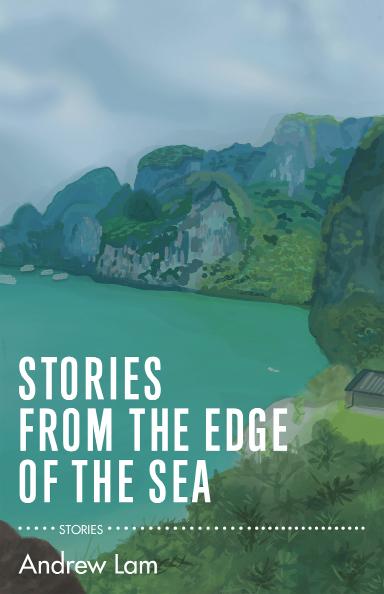
At times humorous and ecstatic, other times poetic and elegiac, the fourteen pieces in Stories from the Edge of the Sea explore love and loss, lust and grief, longing and heartbreak through the lives of Vietnamese immigrants and their children in California.
A younger dancer is haunted by memories of almost dying on a boat when they escaped from Vietnam, a widow processes her husband’s death through frantic Facebook postings, a writer enters an old lover’s home and sees a ghost at twilight. If the human heart is a vast, open-ended terrain, then Andrew Lam’s short stories are its mountains, valleys, and lakes.
Together they seek to chart a barely explored country, revealing the hidden depths of identity, exile, and the search for belonging in a world both familiar and foreign.
ANDREW LAM
Andrew Lam is the author of Perfume Dreams: Reflections on the Vietnamese Diaspora, which won the 2006 PEN Open Book Award, and East Eats West: Writing in Two Hemispheres. Lam is an editor and cofounder of New America Media, an association of over two thousand ethnic media outlets in America. He was a regular commentator on NPR’s All Things Considered for many years, and was the subject of a 2004 PBS documentary called My Journey Home. His essays have appeared in newspapers and magazines such as the New York Times, The LA Times, the San Francisco Chronicle, The Baltimore Sun, The Atlanta Journal, the Chicago Tribune, Mother Jones, and The Nation,
Malia Márquez was born in New Mexico and grew up in New England. She holds a BFA in 3D Fine Arts from Massachusetts College of Art & Design and an MFA in Creative Writing from Antioch University Los Angeles. Her work in translation has appeared in Poetry magazine and her short fiction and essays have been included in various journals and anthologies. She lives with her family in Los Angeles, where she teaches, writes, and wanders around in nature.
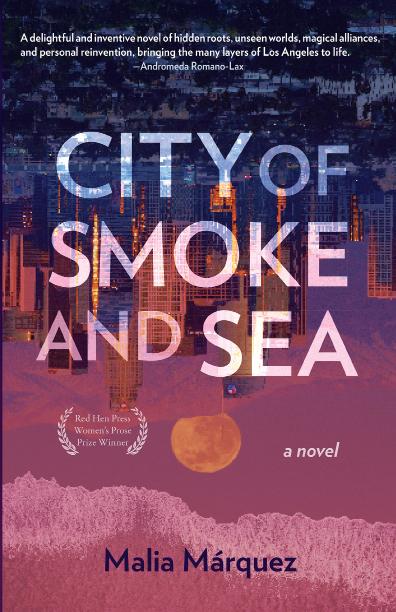
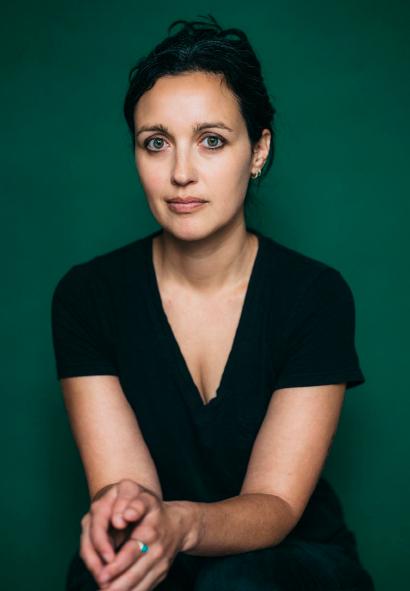
Queenie Rivers was raised by her grandparents in coastal Los Angeles. As she approaches thirty, her erratic lifestyle is forced back on course by a car accident and her grandmother’s intervention. But her recovery is interrupted by a break-in and Gran’s death. Gran’s last act was to set Queenie up with a job at an upscale seaside bistro with a shady reputation—the owner of which, it turns out, was once a close friend. As Queenie digs into Gran’s past for answers about the break-in, the murder, and the unnerving circumstances surrounding the restaurant and her new boss, she discovers that her grandmother, a Romani Holocaust survivor, kept many secrets, some of them otherworldly— secrets that become hers to unravel when she becomes a suspect in Gran’s murder case.
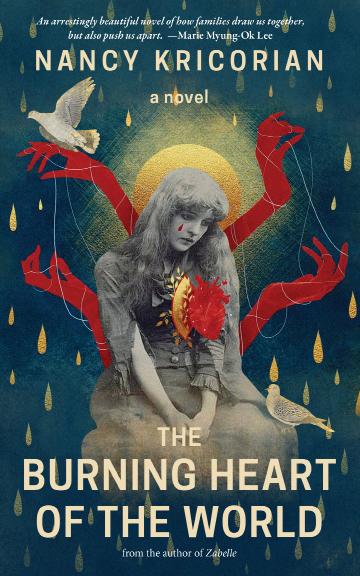
In vivid, poetic prose, Nancy Kricorian’s The Burning Heart of the World tells the story of a Beirut Armenian family before, during, and after the Lebanese Civil War. Returning to the fabular tone of Zabelle, her popular first novel, Kricorian conjures up the lost worlds and intergenerational traumas that haunt a family in permanent exile. The novel captures the deep fractures of war, displacement, and survival, illuminating the resilience of those who carry history within them.
Leavened with humor and imbued with the timelessness of a folktale, The Burning Heart of the World is a sweeping saga that takes readers on an epic journey from the mountains of Cilicia to contemporary New York City. Kricorian masterfully weaves together intimate moments of everyday life with the broader sweep of political and historical upheaval, showing how personal and collective histories intertwine. Through lyrical storytelling and unforgettable characters, she crafts a narrative that is both deeply specific and universally resonant, exploring what it means to hold onto identity in a world that is constantly shifting.
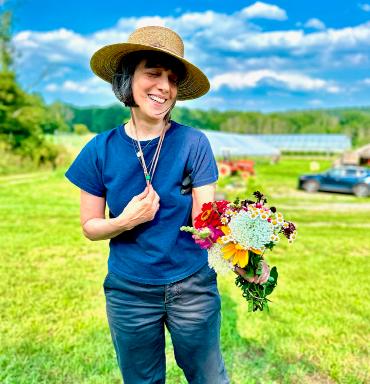
Nancy Kricorian, who was born and raised in the Armenian community of Watertown, Massachusetts, is the author of four novels about post-genocide Armenian diaspora experience, including Zabelle, which was translated into seven languages, was adapted as a play, and has been continuously in print since 1998. Her essays and poems have appeared in The Los Angeles Review of Books Quarterly, Guernica, Parnassus, Minnesota Review, The Mississippi Review, and other journals. She has taught at Barnard, Columbia, Yale, and New York University, as well as with Teacher & Writers Collaborative in the New York City Public Schools and for the Palestine Writing Workshop in Birzeit.
Elise Paschen is the author of The Nightlife, Bestiary, Infidelities (winner of the Nicholas Roerich Poetry Prize), and Houses: Coasts. As an undergraduate at Harvard, she received the Garrison Medal for poetry. She holds M.Phil. and D.Phil. degrees from Oxford University. Her poems have been published in The New Yorker and Poetry, among other magazines, and in numerous anthologies.


In her riveting sixth poetry collection, Blood Wolf Moon, Elise Paschen explores the story lines of her Osage heritage. The core of the book grapples with a dark period of American history, “The Reign of Terror,” when outsiders murdered individual members of the Osage for their oil headrights. Paschen searches her cultural past and family history in poems about the land, ancestors, childhood, loss, nature, transformation, flight, and language.
In this cinematic book, she builds drama in overlapping narratives, reinventing ways to approach the line on the page. Described by poet Timothy Donnelly as “one of today’s most formally astute poets,” Paschen opens Blood Wolf Moon with the long poem, “Heritage,” a bracelet of crown poems, then shifts registers to formal poems and prose sequences. Poet and editor Esther Belin calls the concluding poems with their use of Osage language, “significant leaps into literary sovereignty.” Blood Wolf Moon captivates with its emotional intensity and unrelenting quest for the translation of identity. It’s a book you can’t put down.
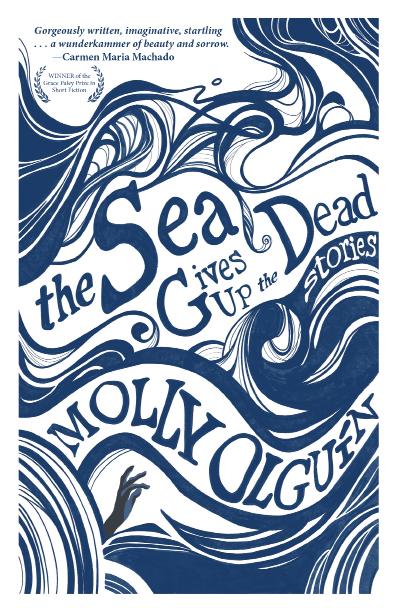
The Sea Gives Up the Dead is a collection of stories sprinkled into the soil of fairy tale, left to take root and grow wild there. A lovesick nanny slays a dragon. The devil tries to save her mother. A girl drowns and becomes a saint. Three kids plot to blow up their dad, a grieving mother sails the sea to find her son’s grave, a scientist brings a voice to life, and a mermaid falls into the power of a witch. Here, historical fiction, horror, and fantasy tangle together in a queer garden of love, grief, and longing.
Winner of the Grace Paley Prize in Short Fiction Indies Introduce Selection from the American Booksellers Association
Molly Olguín is a queer writer, educator, and monster aficionado. She has stories in magazines like Quarterly West and the Normal School. She was the recipient of the Loft Mentor Series Fellowship in 2019. With Jackie Hedeman, she is the creator of the audio drama The Pasithea Powder. She teaches English and creative writing to high school students in Seattle, Washington.
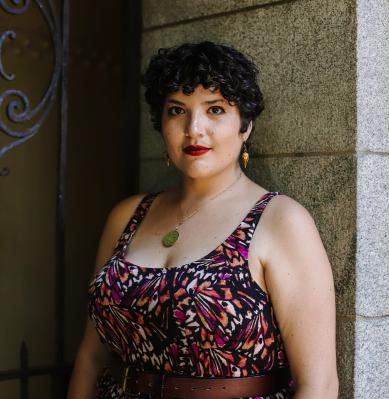
Adrianne Kalfopoulou is the author of three poetry collections, most recently A History of Too Much, and three prose collections including On the Gaze: Dubai and its New Cosmopolitanisms. Her work has appeared in journals, chapbooks and anthologies including The Harvard Review online, World Literature Today, Slag Glass City, Hotel Amerika, Dancing Girl Press and Futures: Poetry of the Greek Crisis. A collection of poems in Greek Ξένη, Ξένο, Ξενιτιά was translated into English with Katerina Iliopoulou.
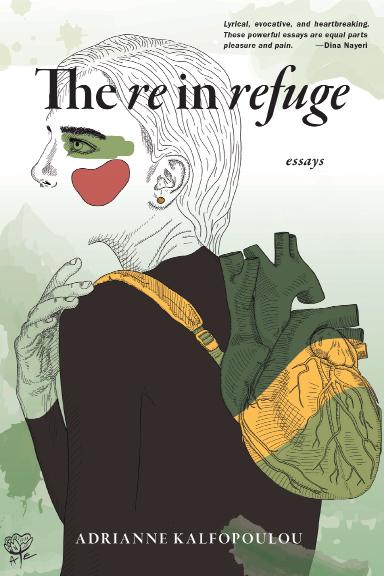

The re in refuge is a collection of linked essays that investigate ideas of refuge, broadly defined, from the intimacies of romance to the promises of the nation-state. Written over the span of a decade, the collection shapes experiences and events that interrogate their larger political and social contexts. The emerging European refugee crisis, yet to become headline news, frames the opening essays, with stories of those lost in their passage across the Mediterranean. In 2014, Italy and the United Kingdom end funding for naval rescue operations in the Mediterranean Sea, and the influx of refugees into Greece reconfigures some of Athens’ neighborhoods. A once-abandoned school building becomes a squat where Kalfopoulou and other volunteers engage with refugee communities that include families from Afghanistan, Syria, and Kurdistan. As Kalfopoulou notes in “The Parts Don’t Add Up,” a visual essay, “embedded in the word refugee is refuge,” suggesting that the vectors of shelter have as much to do with what one carries of culture and place as they are about a tangible home.
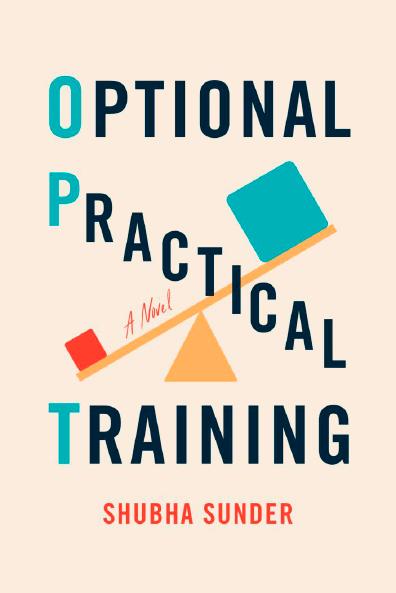
Told as a series of conversations, Optional Practical Training follows Pavitra, a young Indian woman who came to the US for college from Bangalore, India, and graduates in 2006 with a degree in physics. Her student visa grants her an extra twelve months in the country for work experience—a period known as Optional Practical Training—so she takes a position as a math and physics teacher at a private high school near Cambridge, Massachusetts.
What Pavitra really wants, though, is the time and space to finish a novel—to diverge from what’s expected of her within her family of white-collar professionals and to build a life as a writer. Navigating her year of OPT—looking for a room to rent, starting her job—she finds that each person she encounters expects something from her too. As her landlord, colleagues, students, parents of her students, friends of her family, and neighbors talk to and at her, they shape her understanding of race, immigration, privilege, and herself.
Throughout the book, Pavitra seems to speak very rarely; and yet, as she responds to the assumptions, insights, projections, and observations of those around her, a subtle and sophisticated portrait emerges of a young woman and aspiring artist defining a place for herself in the world.
Shubha Sunder is the author of Boomtown Girl, a story collection set in her hometown of Bangalore, India, that won the 2021 St. Lawrence Book Award. She lives in Boston, Massachusetts, with her family.
Maggie Nelson is the author of several books of prose and poetry including The Red Parts, Bluets, the National Book Critics Circle Award–winner The Argonauts, and On Freedom. She teaches at the University of Southern California and lives in Los Angeles.
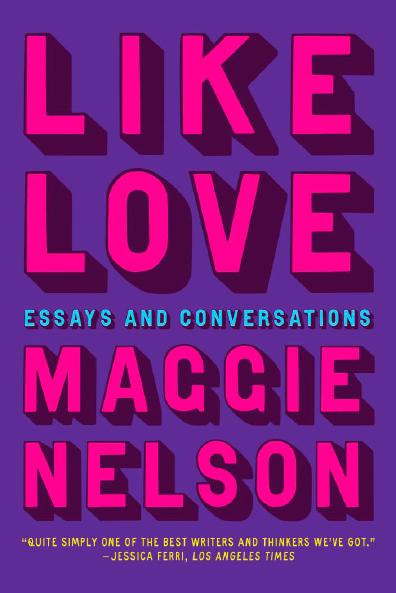
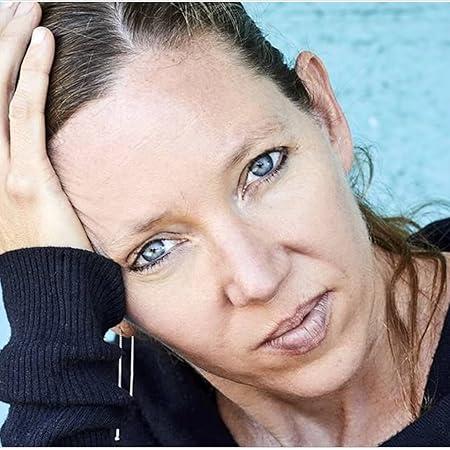
Like Love is a momentous, raucous collection of essays drawn from twenty years of Maggie Nelson’s brilliant work. These profiles, reviews, remembrances, tributes, and critical essays, as well as several conversations with friends and idols, bring to life Nelson’s passion for dialogue and dissent. The range of subjects is wide—from Prince to Carolee Schneemann to Matthew Barney to Lhasa de Sela to Kara Walker—but certain themes recur: intergenerational exchange; love and friendship; feminist and queer issues, especially as they shift over time; subversion, transgression, and perversity; the roles of the critic and of language in relation to visual and performance arts; forces that feed or impede certain bodies and creators; and the fruits and follies of a life spent devoted to making.
Arranged chronologically, Like Love shows the writing, thinking, feeling, reading, looking, and conversing that occupied Nelson while writing iconic books such as Bluets and The Argonauts. As such, it is a portrait of a time, an anarchic party rich with wild guests, a window into Nelson’s own development, and a testament to the profound sustenance offered by art and artists.
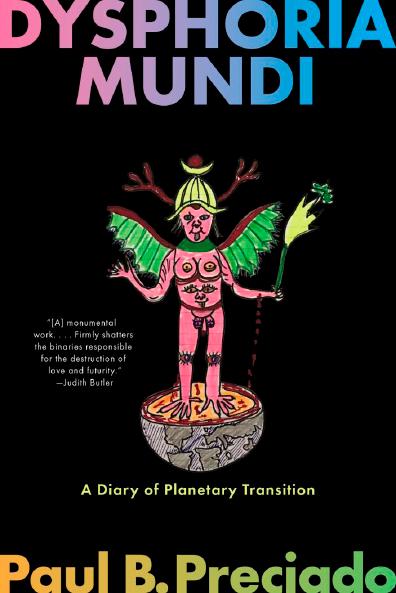
In Dysphoria Mundi, Paul B. Preciado, best known for his 2013 cult classic Testo Junkie, has written a mutant text assembled from essays, philosophy, poetry, and autofiction that captures a moment of profound change and possibility. Rooted in the isolation of the COVID-19 pandemic, and taking account of the societal convulsions that have ensued, Preciado tries to make sense of our times from within the swirl of a revolutionary present moment.
The central thesis of this monumental work is that dysphoria, to be understood properly, should not be seen as a mental illness but rather as the condition that defines our times. Dysphoria is an abyss that separates a patriarchal, colonial, and capitalist order hurtling toward its end from a new way of being that, until now, has been seen as unproductive and abnormal but is in fact the way out of our current predicament.
PAUL B. PRECIADO
Paul B. Preciado is the author of Can the Monster Speak?, Countersexual Manifesto, and Testo Junkie, among other books, and wrote and directed the film Orlando, My Political Biography. He lives in Paris.
Lucas Rijneveld grew up in a Reformed farming family in North Brabant before moving to Utrecht. He is the author of The Discomfort of Evening, which was the first Dutch book to win the International Booker Prize, as well as three poetry collections.
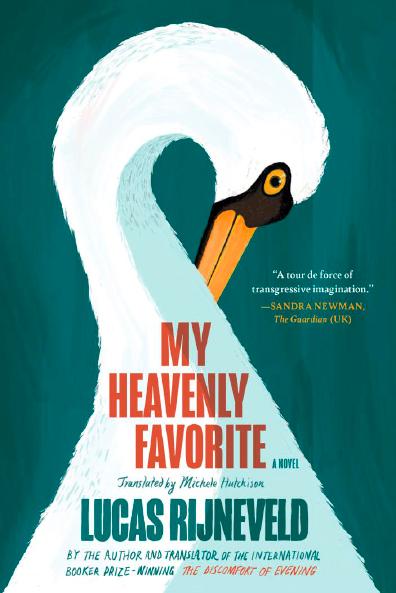

A confession, a lament, a mad gush of grief and obsession, My Heavenly Favorite is the remarkable and chilling successor to Lucas Rijneveld’s international sensation, The Discomfort of Evening. It tells the story of a veterinarian who visits a farm in the Dutch countryside where he becomes enraptured by his “Favorite”—the farmer’s daughter. She hovers on the precipice of adolescence, and longs to have a boy’s body. The veterinarian seems to be a tantalizing possible path out from the constrictions of her conservative rural life.
Narrated after the veterinarian has been punished for his crimes, Rijneveld’s audacious, profane novel is powered by the paradoxical beauty of its prose, which holds the reader fast to the page. Rijneveld refracts the contours of the Lolita story with a kind of perverse glee, taking the reader into otherwise unimaginable spaces. An unflinching depiction of abjection and a pointed excavation of taboos and social norms, My Heavenly Favorite “confirms Rijneveld’s singular, deeply discomforting talent” (Financial Times UK).


Each issue we feature a new bookstagrammer highlighting some of their amazing work.
US A LITTLE ABOUT YOU.
@BookzbyEm: My name is Emily and I am from Melbourne, Australia! Everyone thinks of Australia as a country with beautiful sunny weather all the time, but unfortunately Melbourne can literally experience 4 seasons in a day. When growing up I used to absolutely love reading and dreamed to be an author. I lost my love of reading for quite a long time then decided to pick up ‘It Ends With Us’ during covid and well… now I’m here. I also share my love of reading through bookish content across Instagram, Youtube and TikTok. My favourite book series EVER is definitely the Boys of Tommen series by Chloe Walsh.
TELL US A LITTLE ABOUT YOUR BOOKSTAGRAM ACCOUNT AND HOW IT GOT STARTED.
@ BookzbyEm : My bookstagram account was actually the first online platform I decided to make for my love for reading and although I’m very active now, when I first made it I actually ghosted the account for 2-3 years. I remember absolutely loving the aesthetic pictures that some of my favourite bookstagrammers would post and that’s where I started to get my own inspiration. I’m still definitely trying to find a niche that I like posting on my bookstagram though.
NAME: EMILY
FAVORITE GENRE: FANTASY ROMANCE
BOOKS READ PER YEAR: BETWEEN 80-120
FAVORITE BOOK(S): I CAN’T CHOOSE ONE SO SOME OF MY OTHER FAVOURITE BOOKS ARE THE NIGHTINGALE, A LITTLE LIFE, YOURS TRULY AND THE MAGNOLIA PARKS UNIVERSE.
CURRENTLY READING: THE UNMAKING OF JUNE FARROW BY ADRIENNE YOUNG.
@ BookzbyEm : My new favourite indie author, who I actually discovered quite recently, would have to be Rachel Schneider. Her first book which was indie published ‘Metal Slinger’ actually went viral recently and for good reason. She is such an incredible storyteller and I think the reason I loved this book so much is because fantasy is a newer genre for me and the ending just had me shook. It was unlike anything I’ve ever read! To go on from that, one of my favourite indie books is ‘The Roots Run Deep’ by Chris Strong. This book followed heavy topics surrounding mental health and the challenges that a friendship group faced. I just loved the message behind the book and definitely shed a tear (or two).
@ BookzbyEm : The bookstagram community is so important to me because I have made so many incredible friends through the platform. Reading brings people together but I feel like Instagram is definitely the best place to connect. I also get most of my book recommendations from bookstagram myself because I see so many different books that I may not have seen on other platforms.
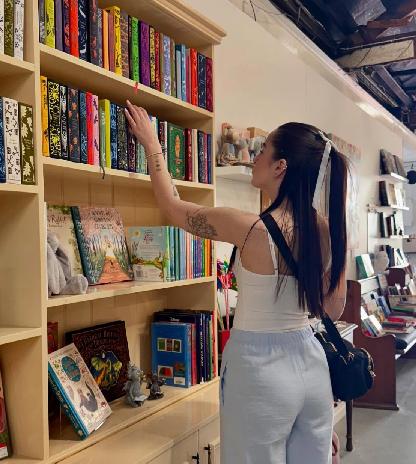

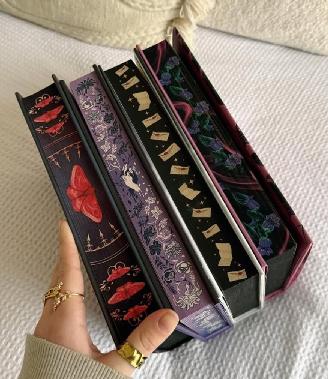

SEE MORE BOOK ADVENTURES ON INSTAGRAM
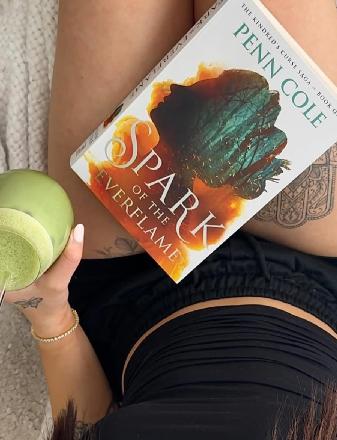
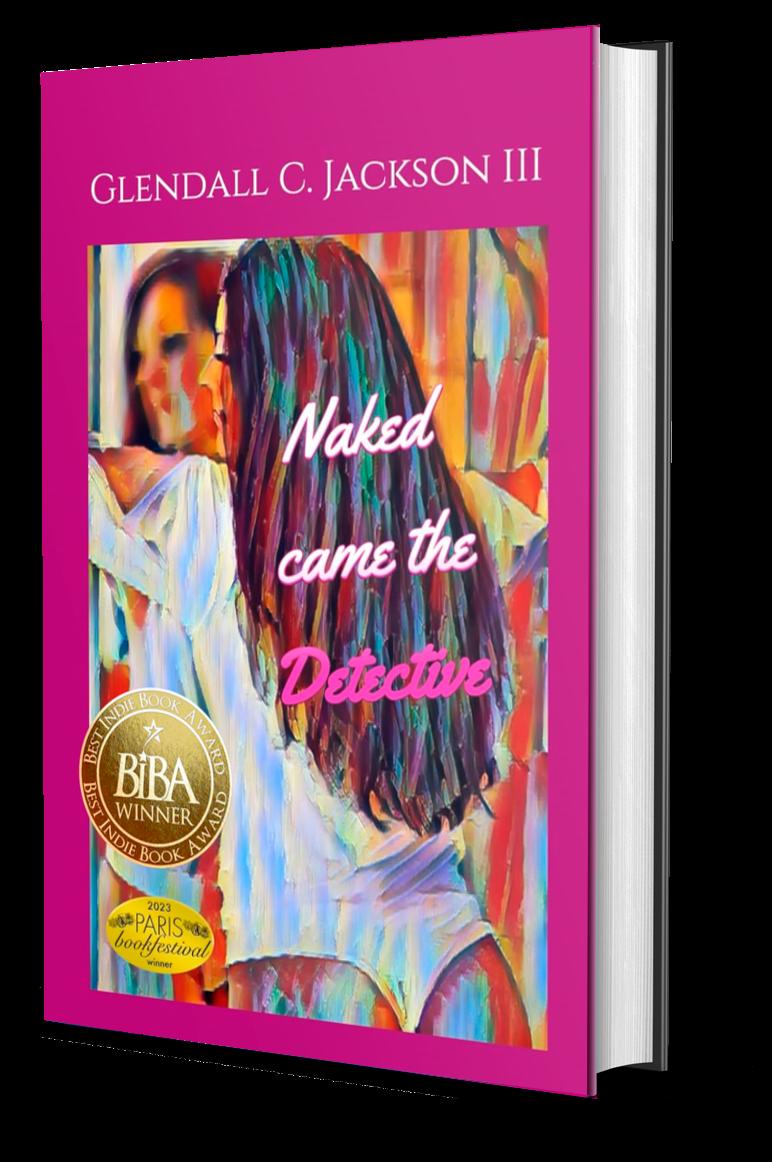
Thrilling, well-paced, and surprisingly dark, Naked Came the Detective is Glendall C. Jackson III’s beautifully written debut novel with a noir soul….The universe of escorting is shown with all its contradictions – the intimacy, secrecy, danger, allure, emotion, and transactional nature – without glamorizing it, or condemning it.”
—The Independent Review of Books Jackson’s research into the reality of sex work gives the story persuasive power, the mystery plotting is suitably twisty, and the protagonist is funny, focused, and quick on her feet.”
— Publishers Weekly, BookLife reviews
WINNER: Best Indie Book Award, Paris Book Festival, Firebird Book Awards, The BookFest Awards.
TOP NOTABLE 100 INDIE BOOK, Shelf Unbound magazine. “ Available in Hardcover, Paperback and Ebook.

EXCERPTS
Take a bite from your next favorite book.
BY LEANNE KALE SPARKS
Independently Published | April 2024
Kat, February 8 0500, Mission morning, five bells.
In the dim of pre-dawn, I roll away from Matty with a kiss that he sleepily returns by reaching out to pull me back to him. I reluctantly dodge his grasp and slip out from under the warm quilts to pull on my extraction gear. I reimplemented my old workout program for the past couple of weeks in anticipation of this mission, but I haven’t worn this garb for a few years now, and it feels uncomfortably close around the middle, causing me to pull at it and puff air out of my nose in annoyance. I check my pistols and settle them in their holsters on my back before sliding my blade into its place on my thigh. Last night I did an inventory of my black sling bag that holds a variety of tools and
equipment that can come in handy. Matty refers to it as my “Mary Poppins bag” ever since he read the old P.L. Travers book to Rini. I grab the bag and pad out of the room as quietly as a mouse, but before the door closes Matty rumbles, “Stay safe and stay alive. I love you.” I grin at the old trooper saying. “I love you. I’ll be home before you can miss me.”
A deep sigh escapes his lips as he rolls over in bed and pulls up the covers, murmuring, “It’s already too late for that.”
Smiling at how loved
I am, I make my way downstairs and put on a pot of water to brew a strong cup of coffee. Pouring it up into a small flask made for journeys, I grab an apple and two of the cookies Mac made yesterday. Not exactly the breakfast my old trainer would recommend, but it
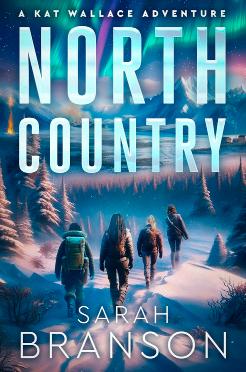
will do for today.
I head out to my small vehicle, messaging Carisa that I am on my way. Her story of being sold by her family has further rooted my need to confront my dad. But I can’t help but worry about the wisdom of bringing her along on this mission. Over the past two weeks, I have tried, multiple times, to talk her out of her plan, once putting on my master commander voice and telling her I was ordering her to stay in Bosch. She laughed that tinkling laugh she has and
said, “Oh, Kat, too bad for you I’m not a pirate in the Force. You can’t order me to do a damn thing.” Frankly, I’m torn between being annoyed at and loving this new cussing Carisa.
The late-winter rains have blown past, leaving a deep chill in their wake, but also leaving clear skies that now sparkle with millions of stars. Orion twinkles at me, so I give a wave to the star in his belt that Papa and I decided was his before he died. (Was killed? Even after all these years I am uncertain which verb to use.)
Carisa hobbles out to the vehicle, accompanied by Aaron. He tosses her small hand luggage in the boot
and wraps his wife in his arms, and they share a whispered exchange that ends with a lovely kiss. He opens the door for ’Ris, and she gets in, somewhat ungracefully, but more smoothly than she was able to last month, so I take that as a win. He closes the door and comes around to my side. The set of his mouth and the tightness in his jaw tell me just how worried he is about this journey. Our gazes connect and I promise, “I will be sure she returns as good or better than when she left. Promise.” He says nothing, just grunts and jabs an index finger at me to emphasize that I must keep that promise.
As we pull away, I ask once
North Country takes place in the year 2372, a time when Earth is recovering from floods, fires, pandemics, and war. Amidst this post-apocalyptic world, the pirate nation of Bosch is thriving— but not without its complications. The focus is on four fierce women who must navigate their way through both external dangers and their own personal demons.
As they trek through the barren land, each woman faces betrayal, desire, and the harsh truths of their own hearts. North Country is an exploration of strength, vulnerability, and the bonds that form between women in even the toughest circumstances.
more, “You sure you want to do this, ’Ris?”
“I’ve never been more sure of anything. There are a few things I need to say to Elka if she’s alive, and I want one last look at where Mother and Father are. It seems fitting that my one big, final adventure should be with you.”
I chuckle. “Don’t be so sure this is the last adventure. Once you get a taste of it, it’s addictive.”
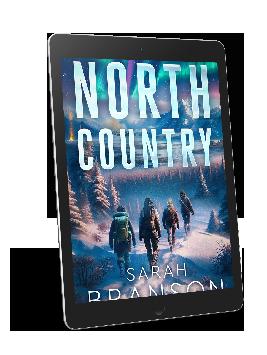
BY PAUL MCGRATH
The city was abuzz that morning. The day of the big showdown on Capitol Hill had arrived. Confrontation is a potent political tool, especially when you can use your cherry-picked media to spin the outcome any way you want.
Heather Brisbane, the ne’er-do-well daughter of Jackson Brisbane, the U.S. ambassador to Britain, would be answering a subpoena to appear before the House Committee on Oversight and Accountability. Heather Brisbane, who had long ago decided to favor party over just about everything else, had been surviving on her surname in the decade after somehow graduating from college.
Those among the majorityparty members of the committee had questions about loans between father and his scandal-plagued daughter that might have involved overseas funding or might indicate favoritism by a lending institution. There was no real evidence of wrongdoing, but such things matter little in kangaroo court when the cameras are rolling. One of the primary witnesses against her was found to be an agent of a foreign
government and had fled the U.S., nowhere to be found. Another witness had been indicted on charges of lying to the FBI. Still, the show must go on.
Sleep had been fleeting for Anton. He awoke early, put on his suit and overcoat, grabbed his briefcase, and took the train into the city. This time, still in the guise of Roy, he disembarked at the Capitol South station, about a ten-minute walk from the Capitol. He found a change machine within the station and slid in a couple of bills.
He found an empty portable potty, secured the door and set down his briefcase. It smelled awful. Offal, chuckled Anton. I will have to use that one on Ellie. He set his watch to personal stealth mode and tapped. Now invisible to humans, he had only to wait until the proper moment to open the door without attracting much notice. Peering through the door slats, he was able to leave the container just before the odor choked him.
The immediate challenge would be to avoid physical contact with humans to, first, enter the Capitol
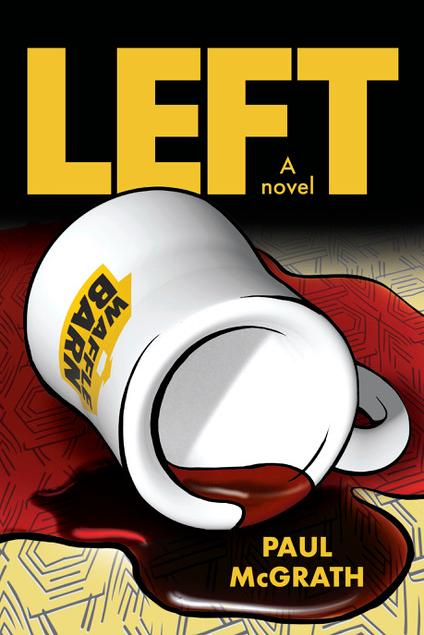
and then find and use the route he had scouted the day before. This is where the coins came in. To get past the security area, or to avoid contact, Anton carefully tossed a few coins on the floor. It was an unmistakable sound that humans, especially Americans, reacted to quickly. Even Capitol Police officers couldn’t hold back from joining these providential coin hunts. It was particularly helpful for Anton when squealing children jousted with one another on the floor over nickels and dimes.
Avoiding mishap, Anton was able to find the same House-side restroom he had used the day before. He entered an empty stall and disengaged from
stealth mode. He then found a more suitable appearance, one that he had selected the night before, and put it into play. His hair became thinner and whiter, and he had a matching mustache and goatee. Age spots dotted his face and hands. Anton opened his briefcase and took out some accoutrements–silk handkerchief, coat pin, tie tack–to give his suit a more expensive sheen. He also took out his two rings, placing one on each ring finger. Anton walked out and approached the hearing room doors, recalling an Earth biblical tale. As the prophet Daniel would say, it’s now or never.
…
“All righty, let’s have quiet in the chamber,” bellowed “Big Jim” Cowley, banging a gavel loudly to herd reporters, photographers and visitors into their places.
Cowley, of Kentucky, was chairman of the powerful House Oversight Committee.
The panel–which has the power to investigate, well, almost anything it considers to be under its jurisdiction–has forty-seven members. In addition to the chairman, there is a ranking member who chieftains the minority party members. The committee includes twenty-five members from the majority party and twenty from the minority party, which often entered the fray with one arm tied behind its back. For example, the minority members could not exercise subpoena power unless granted by the majority.
The majority members, after weeks of legal brawling, had finally drawn Heather Brisbane into their spider’s web. This hearing, they hoped, would be the casus belli, the beginning of a political domino theory that would sully her father, and by extension, the occupant of the White House. Heather, attorney at her side and looking like a small girl in her pale-yellow dress and pearls, was chum on the water.
What happens when an alien gets stranded in rural Mississippi?
Anton-7, aka Roy McDonald, has missed his flight back to his native planet, Xylodon, and, stuck in Mississippi, decides to make the most of his exile. He breaks the primary rule of his superiors – avoid interference with humans. His assigned mission evolves into one of his own choosing, and his new journey brings him friendship, a budding romance and a good bit of adventure. Anton-7’s rulebreaking escapades create a dust storm of chaos and confusion in both worlds.
As much social satire as science fiction, Left is a little bit The Day the Earth Stood Still, a little bit Starman and a whole lot of what is wrong with America. First-time novelist Paul McGrath slyly poses an intriguing and important “what if” for America.
Cowley then laid out the ground rules for the hearing. Each member would have five minutes to ask questions, and the witness would have a like amount of time to answer. Members could “donate” their time to fellow members to complete a line of inquiry if desired. Photographers were told when they could perform their duties, and visitors were admonished to observe decorum.
“I will give an opening statement, which will be followed by one by the ranking member and then the witness will be allowed to give her opening statement,” Cowley said. “I will then begin recognizing members for their questions.”
The combatants then went into their respective corners.
…
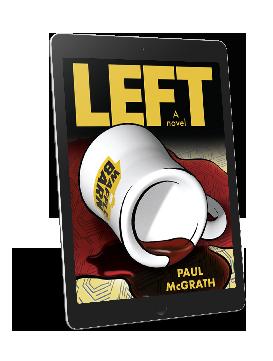
BY L.P. HOLMES
Independently Published | April 2024
The office was cold. Not surprising, really. In the Latvian province of Riga, it was only two degrees outside and that was after the sun had been up for several hours. Overnight it had been down to minus eight. When you have a business selling luxury motor vehicles, you would have thought the least the owners could do was replace the small electric fire with something a little more effective.
Anastasjia’s job was for all intents and purposes a secretary but in reality, she was far more than that. She had a role, an important role that was not just about filing and taking notes. She was required to get close to clients and establish their weaknesses.
To Anastasjia that wasn’t a problem, in fact it was something she found easy to do. So
many of these rich idiots fell over themselves to wine and dine her in a desperate attempt to get in her knickers.
Sometimes she even allowed it, so long as she got what she needed; information, money, valuables, pleasure and occasionally something the company could use to blackmail the client. With no emotional attachments, this was just business, and she was good at it. These fat greasy slobs thought money would get them anything but most of the time they would be in for a big shock as soon as they signed on the dotted line. Of course, she would play the game when she needed to.
Today was different, though. Today it was her favourite regular and for once, she actually really liked him. Sure, he was another rich fool, but he was good looking, attentive and
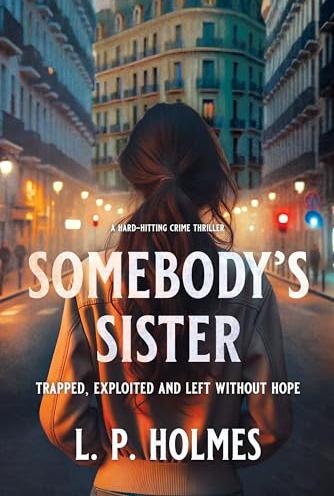
made her job pleasurable as well as easy. She had been given additional instructions from her employers as to what they needed from him, and it was her job to get it. She would be well paid, of course, and could also have a bit of fun on the way.
Jennings worked for the company as a car importer and exporter from the UK office. Anastasjia knew he would not be aware of other aspects of the company, the parts that were not so obvious, the darker areas that needed
to be hidden. Over the next few days, she would make sure that when he was introduced to those parts of the business, he would be prepared to do what the company required.
She had met him several times on previous trips and slowly got him to be more trusting of her.
Anastasjia appreciated what her bosses had done for her. Before coming to work for the company in the car showrooms she had worked the streets briefly before moving to the massage parlour where she was forced to work for pitiful pay and squalid accommodation, whilst performing all manner of sexual acts on anyone who was willing to pay.
She had been enslaved to the traffickers owning the parlour, with seemingly no way out.
It was actually one of her clients who identified her and introduced her to her new bosses. The company took over the running of the massage parlour. She was told by her bosses, it was “under new management” and was assured the girls left behind were looked after. She had no guarantee of that, but she was sure things couldn’t be worse for them. She knew a message had to be sent to the traffickers that they don’t mess with the company. She suspected the parlour madam was still not able to walk but that was nothing the bitch didn’t deserve. She had been truly
evil, thriving on the pain and suffering of the girls.
Anastasjia would often think of the girls; she got on well with most of them. Even though survival was the most important thing they did manage to comfort each other. She knew she was the lucky one, the one who managed to get away, selected for the role she was now living. She knew that cooperation was essential, and she would do as she was told, but it was still nice to have some freedom so long as she didn’t rock the boat.
In this gripping novel that spans the diverse landscapes of Surrey, Amsterdam, and Riga, the lives of three seemingly unrelated women intersect in a dark and dangerous world orchestrated by the elusive ‘Company.’ From a schoolgirl in Surrey to a Barista in Amsterdam and a car salesperson in Riga, they are unwittingly thrust into the merciless realms of exploitation, human trafficking, sexual abuse, and drugs.
As the women grapple with the harsh realities imposed upon them, their determination to break free becomes a desperate struggle against overwhelming odds. Faced with the dire need to protect themselves and their families, they navigate a treacherous path, questioning whether escape is possible. In this harrowing tale, survival becomes the ultimate goal.
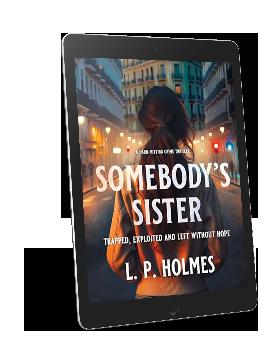
BY JOHN ROLFE GARDINER
Bellevue Literary Press | January 2025
Two women began talking in the quiet car as soon as they boarded in Washington. They were still talking as the train did its unnerving balancing act over the Susquehanna. They were talking as they got off in Philadelphia. Why hadn’t someone told them to shut up?
Eric Nolting, who winced at any cell phone’s trill, was traveling with his wife to New York to defend his manuscript, “The Narcissism of Small Differences.” He was relieved to see the women depart, still annoyed that no conductor had silenced them.
At Trenton, a determined young man came pushing into the car and sank into a seat across the aisle. He
pulled his laptop out of its case, put the phone thing on his ear, and began. “David! Walt here. All good? No, take it off the agenda. I don’t want Amanda at the meeting.”
Nolting’s wife, Denise, who hadn’t read Eric’s new book, knew it stole much from their married life, but her immediate concern was Eric’s sudden defense of the silence promised in a quiet car.
He was thinking aloud, “If Walt is so important, why did he get on the train in Trenton?”
She turned to block her husband’s voice and view. Walt was saying he wanted David to take responsibility for the Northeast region, leaning forward into
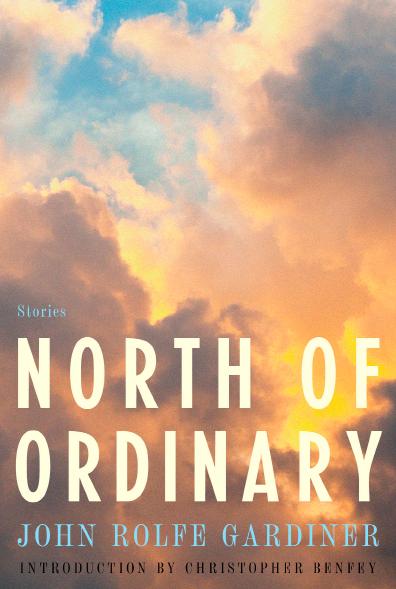
the importance of his conversation.
Talking past his wife’s warning eyes, Eric said, “What’s Walt doing in the quiet car?”
Walt, whether unselfconscious or fully aware of his performance, was talking louder against the interference of this voice across the aisle. “No. I don’t care what her figures are. Is she listening to this? Have you got me on speakerphone?”
Eric, ignoring
his wife’s poke in the ribs, answered the eager businessman.
“You’ve got yourself on speakerphone.”
But Walt had only gotten started. “No, don’t send it back. Fix it yourself. Don’t have Amanda do it. You do it.”
“Roger,” Eric called across the aisle.
Denise, embarrassed beyond tolerance, put a hand over her husband’s mouth, which barely muffled “I say we lighten up, Walt? Let Amanda be Amanda.”
With that, she pushed
herself away from him, stood, and escaped to the club car, which meant Eric might have no supporting witness to the ensuing events. Unless the conductor who happened down the aisle as the train stopped at an empty place called Metropark might later say something in his favor, or the hastily summoned Homeland Security soldier, a corporal in camouflage, holding his weapon, barrel and trigger, over astonished passengers. Or maybe some unknown rider would have taken his side, if he’d thought to ask one.
The guardsman, inflated with sudden importance, was demanding picture identifications. The conductor took names. The man from Trenton, tapping Eric’s information into his computer, had time to call over his shoulder as he was led to another car, “Get a life!”
Surprising, touching, and deeply humane, the ten stories of North of Ordinary offer an intimate, revelatory look at our fractured society. In its pages, we meet a nervous young apprentice to a weathered tree climber; a dangerously obsessed student at a Southern Bible college; an attractive schemer trying to build an audience for her tiny radio station; an undercover, cross-dressing lawman whose friendship changes the life of a deaf child in a suburban cul-de-sac; an elderly Black mason whose knowledge of the town’s history harbors truths that shake his visitor’s foundation; and a frustrated writer about to start a fight in the Amtrak quiet car

BY ROGER CELESTIN
Brierre had been a classmate of their father at the military academy; his wife was an old friend of their mother; they had all attended many of the same gatherings over the years. On the day of the whistle blow in the sun-drenched schoolyard, the jeeps and the cars stop in front of the Brierre house in one of the old neighborhoods of the capital. They have come to this particular house, at this particular time, for this particular family; there is no error. Some of the men are posted in the street; others are told to stand guard on the old stone walls, armed and bristling shadows against the bright sky; the rest enter the garden and head for the house. Like so many others, Brierre and his wife are in hiding that day; they, too, like the boy’s father, have been told, “What are
you doing here? Don’t you know what’s going on? They’re going into houses; they’re killing everywhere. You need to leave now!” The Brierres quickly left wherever they were, like so many former officers of the army of the Tropical Republic.
Two maids and a gardener are shot down by the first men to come through the wrought-iron gate of the Brierre house; the men then spread quickly and slowly, like figures in a dream; they are now beyond the veranda and inside the house; Brierre’s father is picked up in his wheelchair and thrown out of one of the bedroom windows on the house’s second floor; he lies still and broken on flagstones among almonds and leaves brought down by his fall through the trees below. Downstairs,
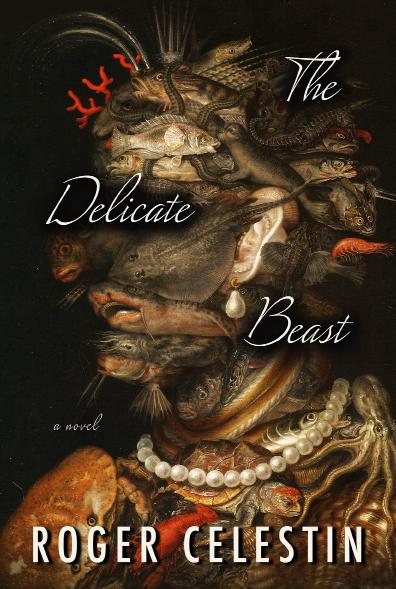
the Brierres’ newborn baby is wrenched from his grandmother’s tight embrace, the old woman’s feeble arms unfastened by other quick and sinewy arms and hands; she’s told to join her husband; she’s taken upstairs and pushed out the same window. The boys would hear stories about the Brierre baby never being seen again, about strange and violent rituals in the white presidential palace. Withdrawing his finger from the undressed adolescent daughter whose throat has been slit, one of
the sharply dressed men says, “Gentlemen, she was a virgin!” Another one adds, “Old enough to bleed, old enough to be slaughtered.” The house is burned down. They leave. They continue their rounds. They continue doing what they are doing.
For the boy, beyond everything else that happened and could have happened on that day, what happened at the Brierre house would be more encompassing, more tenacious than everything else he has witnessed or assembled, even if throughout the years that followed he would keep the men’s visit to the Brierre house, like all the other visits to all these other houses,
deeply buried, and, decades later, when time of exile will have almost become just words, ludicrous even, when what happened at the Brierre house on that day of the whistle blow in the sun-drenched yard, when the things these men had done in that house, to the people in that house, to the old man, his wife, to the young woman who was found old enough to bleed and old enough to be slaughtered, what had been done especially to her but also to the gardener and the two maids who were the first victims as these men were entering the house’s garden, to the baby whose disappearance was never explained, when what happened in that particular house on
that particular day will be a faraway and muddled memory from which he thinks he has been released, when the man he has become will have built a life where such things are kept far away and deeply buried, what occurred in the Brierre house that day would rise like a lone figure in a deserted landscape, appearing once again above all the brutal but leveled memories of that day.
In the 1950s Tropical Republic, a boy lives amid opulence and privilege, spending days at the beach or in the cool hills above the sweltering capital, enjoying leisurely Sunday lunches around the family compound’s swimming pool. That is, until the reign of The Mortician begins, unleashing unimaginable horrors that bring his childhood idyll to an end. Narrowly escaping the violent fate visited on so many of his fellow citizens, he and his brother follow their parents into exile in the United States where they must start a new life. But as he grows, he never feels at home, and leaves his family to travel across Europe and outrun the ghosts of the past. A searing novel of a life lived in the shadow of history, The Delicate Beast portrays the persistent, pernicious legacy of political violence.
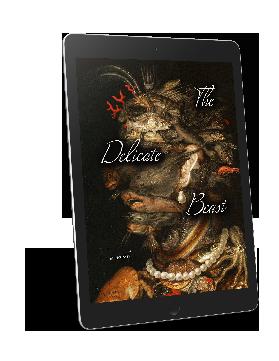
BY CHARLOTTE TAYLOR FRYAR
Down on the floodplain, the snow was all slush. I passed the mammoth sycamore, still the largest I had ever seen along the Potomac, and paused to rest my hand on its scales. Then I walked beyond the pawpaw grove, over the skunk cabbage sump, and on to the crust of shore where I had seen bald eagles plunge. There were the rock islands where I had sunned and swum with friends through the years. Across a dry run, the nettled twist in the trail where I once held the eyes of a fox, and beyond that, the remnants of a brick chimney, all that was left behind of some former cabin destroyed by a flood.
As I approached the stone stack, something
glittering beneath it caught my eye. I hopped through fallen timber to investigate. In the empty space of the hearth, someone had cleared away the debris and laid down a mandala of pebbles, dried bracken, and bits of river glass. Leading up the far side of the trail from where I had come, someone had placed stones into something like a garden path, leading hikers up the hill.
The mandala curved along wisps of goldenrod and Christmas fern. Blue shards of glass flared at the edges of the pattern like comets. Foliated rocks—what I learned as a child to call “wishing stones”— formed the core of the whirling disk. Mandalas, and even

more so the act of making one, represent the pursuit of unity with the universe. And because this mandala was made with scruff and scraps so specific to the Potomac, I could not help but think that whoever made it had laid out these things with a desire for wholeness with the river. That its maker had also set down a trail leading to it suggested an invitation to take part, and even to be part of this place.
Every so often over the years, I had thought of the disease my landlady diagnosed me with my first spring on the river. Potomac fever, as I had understood it then, was a term for an obsession with Washington, D.C., rooted in the desire for money and influence. For years, I dismissed the diagnosis; politicians and politicos contract Potomac fever, not historians and naturalists.
But as time has passed, I have wondered whether my landlady could detect a nascent, and at times frenzied, compulsion on my part to parse out the complexities of this city,
to understand why this city appeared at first to be so placeless. I didn’t yet know that the Potomac River has always been the remedy for whatever ails this city.
I think it was the surprise of the mandala, circling and stretching out from its center of striped stones, but I could feel myself then within that web of expanding time, my body at once rooting down and extending out. How had it come to me, this knowing that I am bound to this place? The closest words I’ve found for it are from Rarámuri scholar Enrique Salmon, who
uses the term kincentric ecology to describe the total interconnectedness and integration of all life in a given place, both physical and spiritual. Recognizing your own interdependence gives rise to actions based in generosity and reciprocity; it’s not selfinterest at work, but mutualism, the certainty that for me to belong and to thrive, my neighbors must, as well.
As she walks the length of the Potomac River, clambering up its banks and sounding its depths, Charlotte Taylor Fryar examines the geography and ecology of Washington, D.C. with all manner of flora and fauna as her witness. The ecological traces of human inhabitancy provide her with imaginative access into America’s past, for her true subject is the origin of our splintered nation and racially divided capital. A compelling synthesis of historical, environmental, and personal narrative, Potomac Fever offers hope for how “we might grow a society guided by the ethics and values of the places we live” while exposing the roots of our national myths, awash in the waters of America’s renowned river.
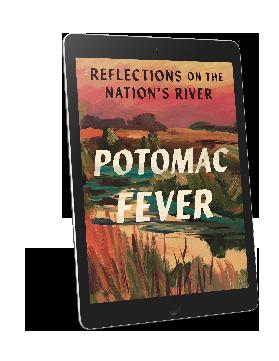
BY JULIE KLASSEN
“The rain depresses . . . My lady has been bored to death. And in the clutch of Giant Despair.” —Charles Dickens, Bleak House
May 1820
Bleak. The weather, her mood, her life.
Miss Claire Summers pulled back the dusty velvet curtain and looked out onto another dreary Edinburgh day. Rain pelted the cobbled street two floors down, where a few merchant carts and hackney carriages passed with a clip-clop of hooves, their drivers’ hats pulled low, and even the horses’ heads bowed against the rain. The wet pavement was devoid of pedestrians, except for a butcher’s lad who jogged past with a bundled delivery.
Then a coach stopped in front of the house. A man emerged, placing a beaver hat over fair hair as he alighted and strode quickly toward the door, disappearing beneath the protruding porch roof.
“Close the curtain!” her great-aunt demanded. “I’ve told you the light hurts my eyes.”
What light? Claire thought. She bit her tongue, let the curtain fall, and turned toward the shrunken figure in the canopied bed.
The door knocker sounded in the distance. Head and shoulders bolstered by pillows, the old woman frowned. “Who is that? Dr. McClain has already been.”
“I don’t know.”
Callers were rare except for regular visits by the doctor and the apothecary’s assistant.
“Humph. Probably that young man from the apothecary’s again. Seems to deliver some useless new tincture every other day. Remind him to use the tradesmen’s entrance and not the front door.”
“It is not him. I did not recognize the man.”
The old woman flicked a weak hand toward the side table. “Water.”
Claire walked over to fill a glass, but a soft tap interrupted them.
Agnes Mercer turned her head toward the bedchamber door. “Come.”
The ancient butler entered, calling card on a silver salver.
Her aunt huffed. “What is it now?”
“A gentleman has come to call. A Mr. Callum Henshall.”
“Henshall? I know no one by that name.”
“He asks to see Miss Summers.”
Surprise ran through Claire, followed by
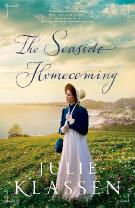
foreboding.
Sure enough, the old woman narrowed her eyes, a suspicious scowl carved into her brow. “What have you been up to, besides gawking at men from the window? Sneaking out to meet them as well?”
“Absolutely not. I know no one by that name either.”
Claire knew very few people in all of Scotland, having lived in relative isolation for nearly two years now. The one exception had been regular attendance at church services, until her aunt’s declining health had rendered her bedridden. Another lift of gnarled knuckles. “Send him away, Campbell.”
“Aye, ma’am.”
Claire blurted, “Did he say what he wanted? May we
not ask his business first?”
“No,” Aunt Mercer snapped. “I said send him away.”
The elderly retainer retreated. Claire helped the woman lift her head enough to sip water. Despite the care she took, liquid dribbled from the corner of her aunt’s thin, wrinkled lips.
“Clumsy girl. I did not ask for a bath,” she grumbled, although her tone lacked bite. Claire quickly retrieved a linen napkin and wiped the water away.
The butler returned a few minutes later, a folded note now occupying the silver tray. “If Miss Summers will not receive him, he asks that she do him the honor of reading this.”
Another scowl crossed her aunt’s lined face. “Give that to me.” Her hand flashed forward with surprising speed.
It was not the first time Aunt Mercer had insisted upon reading a letter addressed to Claire. In this case, Claire felt more curious
than resentful, since she truly had no idea what message the stranger might wish to impart.
Aunt Mercer unfolded it and read silently, the line between her sparse brows deepening.
“What is it?” Claire asked. “What does he say?”
“Nothing to speak of. It seems this Scotsman met your sisters in Sidmouth and wished to pass along their greetings. As we have made it abundantly clear, they are not to contact you . . .” She shook her head in disgust and began refolding the note.
A greeting from her sisters? Emily’s doing, she guessed. Claire’s stomach rumbled, hungry for news of her family. Loneliness gnawed at her, body and soul.
“Might I read it for myself?” Claire asked. “Or at least thank the man for taking the trouble of delivering it?”
“No, you may not.”
Agnes Mercer extended the letter toward the hovering butler. “Dispose of this.”
He hesitated. “Shall I put it in the drawer with the others?”
Disgraced eldest sister Claire Summers has been living in exile as companion to a stern great-aunt in Scotland. About to lose her place and longing to be reconciled with her estranged family, Claire sees an advertisement from someone looking for a “respectable female partner” in a Sidmouth boarding house. Is it a sign? She answers the ad, hoping she has not made another reckless mistake. When she meets the handsome, secretive proprietor, she wonders what he’s hiding and if he’s any more trustworthy than the nobleman who betrayed her years ago. Claire is drawn to him even though she fears he will reject her when he discovers her genteel façade hides a lessthan-respectable past.
Others? The word jangled in Claire’s mind. She knew of only one. Had there been more?
“This one’s not worth saving. Burn it.”
Aunt Mercer had allowed her to read and respond to one letter, and she’d dictated every word of Claire’s reply to discourage Emily from writing. Had her sister written again anyway?
With a regretful glance in Claire’s direction, the butler dutifully took the message from his mistress, crossed the room, and tossed it into the fireplace. The flames leapt up to consume it.
Claire sank into a nearby chair and watched the paper blacken and wither. Gone in a moment, like her former life and hope for the future.
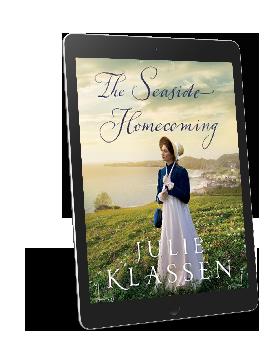
BY SARAH MONZON
Libraries aren’t famous for their penal codes, but some literary offenses deserve due punishments. I haven’t decided yet where I stand on late fees— for or against— as I truly can see both sides of the argument on that one. As someone who has impatiently waited in the digital queue for my turn for a book to become available, a little incentive to the lackadaisical reader to get a move on is useful. However, I also understand the desire to linger between the pages of certain books and how hard it is to move on after a literary hangover. On the issue of mishandling of books, however, I am firmly in the camp of some sort of consequence, for to mistreat a book is most certainly a punishable crime.
I unfold the dogeared corner and smooth out the cream-colored paper of the hardcover in my hands, making soothing, cooing noises under my breath. A book doesn’t have feelings, but it does have a soul. Life exhaled into every word by the author and then breathed into each person who reads those same words. So, in a sense, books are both alive themselves and give life to others
simultaneously. Which is why they should be treated with care and not irresponsibly— something the patron who folded these pages clearly disagrees with. I turn the page and unfold another corner.
“Uh-oh. I know that look. Did someone write in a book again, Evangeline?”
Hayley teases as she retrieves a paper from the printer, one bearing the list of titles to be pulled from the shelves and set aside for patrons who put in holds on the library’s website. I turn to her, frowning. “I’m not against writing in books. The margins are great for that and so are a rainbow of highlighters. If someone wants to commit marginalia by engaging with the text in their own copies, who am I to judge? What I’m against is people writing in library books. There’s a big difference.” I turn a few more pages and hold up the offending evidence. “But some Neanderthal dog-eared at least seventy percent of this title. Seventy percent! He should be dragged from his cave and beaten with his own club.” I mutter that last part under my breath.
Hayley gasps in mock horror. “A duel for the author’s honor must be in order. It’s pistols at
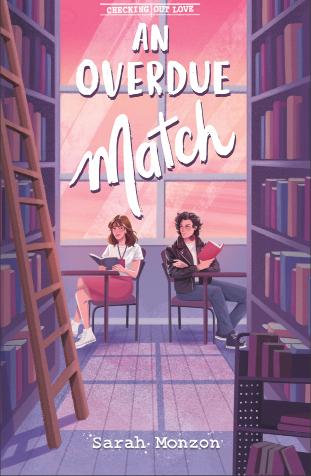
dawn.” I shake my head while swallowing back a grin. “You know I prefer swords for a duel.” “Swords? Really?” Her button nose scrunches. “I’d imagine they’d be really heavy to hold out in front of you. Wouldn’t your muscles tremble and your palms get so sweaty they’d lose their grip on the hilt? Then you’d be run through and I’d be left alone to do the reshelving by myself. Oooh!” Her eyes alight with mischief the second a new thought enters her head. “Unless you’re dueling some regency rogue and he decides that instead of running you through, he’ll teach you the proper way to wield that deadly weapon.” She shimmies her shoulders. “The perfect excuse to get close and
use his charms to seduce and disarm you.”
My cheeks twitch at her theatrics, a smile threatening to unleash. With sheer willpower, I force a deadpan look onto my face. “I changed my mind. I choose pistols. Pull the trigger. Bam. Done.”
She tries to push out her bottom lip to pout, but her laughing makes it impossible. “You’re no fun, you know that? Besides, the hero coming up with an excuse to teach the heroine a skill, eliciting the need to put his arms around her, is a wellestablished device of romance novels for a reason. Plus, bullet wounds bleed a lot. You don’t want that. Think of the mess you’d have to clean up.” I’d rather not think about it, thank you very much. Somehow our conversation has gotten off topic, although that’s not exactly unusual when it comes to Hayley. She extends the paper with the list of holds out to me. “Want to keep an eye on the dastardly dog-eared
deviant under the guise of getting actual work done?” “Nice alliteration, and yes, I do.” I take the paper. I’d only gotten a quick look at the retreating form of the patron who’d turned in this mistreated book. He’d headed toward the nonfiction aisles, specifically the biography shelves near the back corner, opposite the children’s section.
I quickly scan the library’s barcode on the cover and return the book in the system, noting the borrower’s name. Tai Davis. I’d only moved to Little Creek (pronounced crick, like the ache you’d get in your neck) six months ago, and though the town is small, the name Tai Davis doesn’t ring any bells.
But if he’s willing to mutilate almost every page of a book, I really don’t trust him to roam the aisles of the library unsupervised. I take my job as protector of free thought, untold universes, awaiting adventures, and expanding personal
If the covers of every romance book ever published didn’t convince librarian Evangeline Kelly that she isn’t heroine material, her fiancé calling off their wedding when she lost her hair to alopecia did. But what’s a girl head over heels for love to do when her feelings are unrequited? Matchmake, that’s what. Armed with library patrons’ check-out histories, she’s determined to make at least one love connection--even if it’s not her own.
perspectives seriously. Because books are more than just paper and ink. They’re a portal leading to anywhere you ever wanted to go— heart, mind, or soul. Hayley and Martha, the children’s librarian, like to tease me about my strict standards when it comes to the treatment of books. Martha points out that at least my patrons don’t chew on the pages of paperbacks, the books coming back soggy, slobbery, and smelling of spitup. She has a point, and I also concede that I may go beyond the bounds of what’s deemed the appropriate amount of caring when it comes to library property, but I can’t help it. Books are my friends, and I can’t stand to see them bullied. Call it my quirk.
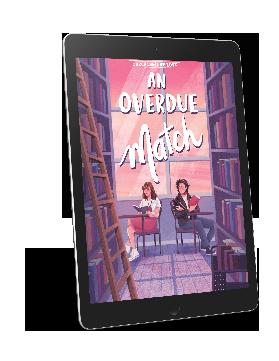
BY HAROLD PHIFER
BookBaby | February 2025
Next, the secretary advised me to take a seat while she notified the headmaster of my arrival. During those dreadful moments I did everything I could to remain calm. Nervously, I kept patting my foot to the floor and heard each and every tap.
Suddenly, shouts of extreme havoc rung out just like the other times! “Oh God no!
Jesus, please help me Lawd! I got you, Sir, I got you,” were screams filling the airwaves. The door opened and a battered female raced right past me with her hands covering her face. She kept mumbling phrases that shouldn’t be repeated by innocent lips. I couldn’t believe those disgusting words coming out of her baby-sized mouth.
Then damn, another nightmare was possibly moments away. I needed an out and fast. Fearing for my life, I formulated my plan of action.
Right before Principal Shellshock steadies his paddle, I was going to blow out all the gas I reserved in my little butt. I was never a fan of the fart game, but I was scheming like a veteran.
That’s all I had, and it was my “A game.” My intentions were to rip a good hard one that opens my belt, ruffles my pants, and sends my new shoes flying across the room. Then all options would be left to the principal. He could chance tearing into me and losing a lung or take cover and let me go. Punishing me will become a hazard to his health.
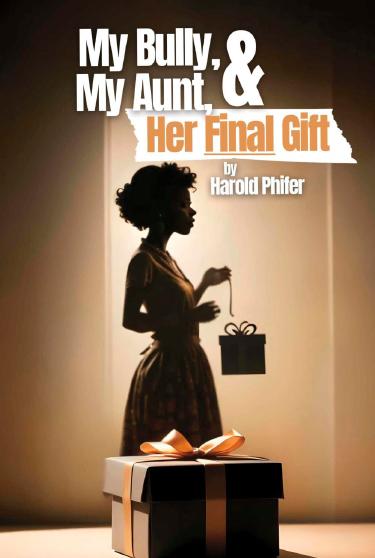
For the moment, I felt really good about that notion. I didn’t have much else to cling to, but I was dangerously packing breakfast from Aunt Kathy. Yes, I was sure my stink bomb defense would win that day. According to past reports, I would be the first and only kid at Mitchell Memorial to get on the scoreboard against the headmaster. Make that, Hal “1” and Principal Shell Shock “0.”
“Well, Aunt Kathy
implored me to settle down. She kept issuing threat after threat with such statements, “Boy, do I need to beat the black off of you,” or “Gorilla will be your name when I’m finish!” Yes, I got the message but beating my butt wasn’t going to be enough. Heck, I had been waiting for three long, long years just to join Jerry. Anything short of a bullet wasn’t going to stop me.”
“Aunt Kathy wasted no time reading me the riot act. She accused me of overstepping my bounds and showing off at church. According to her calculations, “I needed to get my ass snapped back in shape”! Then she said,
“Don’t worry, I plan to cut you a “New Ass” when we get home!”
“Yes Ma’am,” I said. It was just another day in paradise! Yes, I knew I was cooked. I was finished.”
“Once the Reverend was out of sight, Aunt Kathy eyeballed me up and down with a frown more terrifying than ugly on an ape. My life still hung in the balance. As much as I tried, I couldn’t hold my emotions any longer. She started up again, “Boy, for a minute, I was really scared for your ass! But I’m gonna let you slide this time!”
“Yes ma’am,” I said. She went even deeper, “You may have slipped through the cracks, but if I catch you taking a shit out of turn, I’m beating your ass!”
“Yes ma’am,” I said once again.
In “My Bully, My Aunt, and Her Final Gift”, Hal revisits the complicated relationship he shared with his late Aunt Kathy, a woman who stood as the antithesis of positivity in his life. Despite her domineering and often cruel behavior, her passing left Hal with an unexpected opportunity for humor, healing, and reflection. As he plans her memorial—a gathering that no one seems eager to attend—Hal’s childhood memories resurface, pulling him back into a world shaped by his aunt’s unpredictable rules and twisted philosophies. Blending heartfelt truths with laugh-out-loud moments, Hal weaves a tale of resilience, self-discovery, and ultimately, redemption. This memoir offers a lighthearted yet honest look at how even the darkest relationships can leave behind gifts of wisdom and self-awareness.

BY TAD CRAWFORD
Thea didn’t consider herself a romantic or a superstitious person, but the wild man arrived at the institute near the end of April, on an afternoon flooded by sunlight, only three days after she began her residency. The Institute for Healing and Transformation was high up in the mountains the man had roamed so freely. Five large, vinecovered buildings of stone faced a pentagon of grass. Each building was named for one of the great continental rivers— Danube, Nile, Amazon, Yangtze, and Mississippi. The walkways, made of bluestone from nearby quarries, met in a circular patio at the center of the lawn, where a golden sundial marked the passage of the minutes and hours. Built more than one hundred years ago, the institute was a center for retreats, healing, and meditation. The wild man occupied a small room with yellow walls and no windows.
The room had no features except for fluorescent lights recessed in the ceiling, a stainless-steel toilet without a seat, a sink, and a twin mattress on the gray tiles of the floor. A small one-way mirror in the entry door allowed Thea, or anyone, to remain unseen while peering at the new patient. The switch for the lights was not in the room but in the hallway, beside the door.
The man was near her own age, fifty give or take a few years, painfully thin, barely aware of his surroundings. His eyes, when Thea could see them, looked glazed. The matted mass of hair had been shaved, so his bald skull gleamed in the bluish-white light from the fluorescents. His facial expressions, even his postures as far as she could tell, were distorted from the months he’d lived in the wild with a large bear for his companion. Thea could
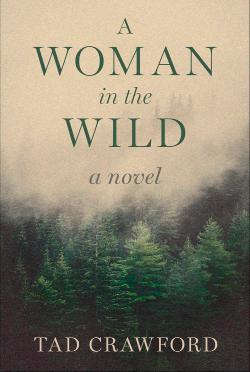
hardly believe this was true, but eyewitnesses had seen him running on all fours beside the bear. More definitive proof came from an infrared motion-detecting camera a ten-year-old boy had set up in the woods for a science project. In the images it captured, the man and bear looked wary but at ease with one another. They entered and left the area together. Ordinarily, Thea paid little attention when people would say that this or that event happened for a reason.
“If I hadn’t gone to the wrong platform
and missed my train, I would never have met her.” “If I hadn’t failed the accrediting exam, I wouldn’t have found my true calling.” Without reasons, unpleasant and tragic events simply happen. Her work as a therapist convinced her that the essential ingredient of any life is meaning. This was true even when the meaning was that life can be lived with suffering and unbearable losses.
Yet she believed from her first glimpse of this man through the one-way glass that their arrivals so close together connected them. The strong feeling defied her inability to explain, even to herself, why this should be the case.
She had come to the
institute needing a time out of time, a vacation from clients and quotidian routines, a period in which little would be demanded of her. Perhaps she would hike up and down the wooded mountainsides like the wild man, find a therapist on the staff and talk her way to a new vision of where she stood in her life, or write down her nightly dreams and use the daylight hours to tease out their meanings. Her status at the institute could best be described as undefined. She possessed the degrees, accreditations, and experience to work as a facilitator and mentor to the individuals and groups who sought solace there.
But her role as a resident didn’t require any duties. Even the duration of the residency had been left
A Woman in the Wild is a revealing and memorable portrait of a woman boldly facing her demons in pursuit of a meaningful life. A psychologist in crisis leaves her established practice in the city for an open-ended retreat in the mountains at the Institute for Healing and Transformation. Feeling lost, betrayed, and stricken by guilt not to have saved her daughter from sexual abuse, she hopes to find a new path to ease her pain and uncertainties. Soon after her arrival, a “wild” man who roamed the forest with a bear is brought to the institute. When the man is given to her care, she performs a suspenseful balancing as she seeks to heal him as well as herself.
Hiking and meditating each day, she initiates an inner journey that shakes her free from the familiar. As the months pass, she engages her guilt and sorrow, confronts her failures, weighs the limits of therapy and selfforgiveness, and seeks to unleash the healing powers of the unconscious and of love.
open-ended.
Thea wanted to be selfish, to be with herself and ignore the demands of others. Yet the wild man slipped in among her innermost feelings. As she contemplated how she had come to this place in her life, and to the institute, she would find herself distracted by the yellow walls of that room, the way the man’s fatigued eyes stared at nothing, and her sudden fury at how the institute treated him. Anyone, even a wild man, deserved better.
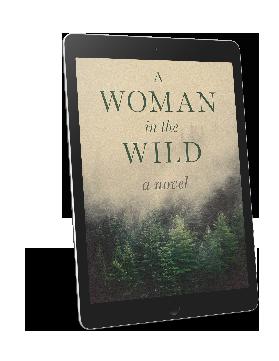
BY TRACEY LAMPLEY
When I arrived at the mansion, Old Man Calloway was sitting on the patio engrossed in the sports page and drinking coffee. Two men in khaki pants, polo shirts, and holstered guns stood guard at the table. They appeared to be the same men Kristen described as her sinister intimidators.
I approached Calloway. Without glancing at me, he said, “Have a seat, Jinx.”
Somewhere in the distance, an emergency vehicle wailed. After eyeing the men suspiciously, I sat across from Calloway, and the housekeeper poured coffee into bone China cups. “Just black,” I said, almost afraid to pick up the delicate cup. But the nutty aroma of the coffee beckoned. I sipped, and the strong liquid woke me up a more.
Calloway slurped his coffee then adjusted his navy suit jacket and said,
“I need an update on my granddaughter.” I nodded and peered closely at the man while he rubbed the back of his neck then tossed the newspaper to the side. “Your associate didn’t have much for me. Just that my Elena may be pregnant. She would never have an abortion.”
Calloway folded his hands on the table. “What have you got, Jinx?” He picked up his coffee cup again and slurped from it.
I stole another glance at the men. A burly one with a blonde crew cut and a lanky one with long brown hair. I sensed the lanky one could handle himself if the need arose.
Subconsciously, my foot swung back and forth under the table. Now, I carefully measured my words. “I don’t have a lot to go on, but Elena may have been involved with one of her former professors.”
Calloway slammed the cup on the table so hard that it shattered. “Who is he?
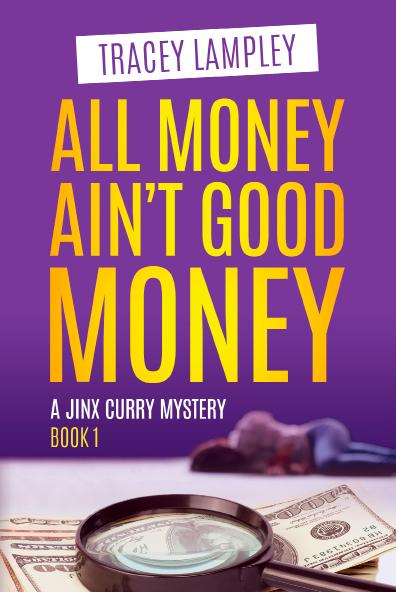
What’s his name?”
My foot suddenly stilled. From his violent reaction, I immediately nixed the idea to reveal the professor’s identity. I cleared my throat. “Let me gather some more information—”
“No, tell me his name, dammit!”
I checked my cell phone for messages, but really, I tried buying time as I figured out what to say. The thought of Calloway ordering one of these thugs to break the professor’s legs—or worse—one of them offing
the poor man altogether chilled me. So, I hedged when I gazed at Calloway and shook my head. “Not until I’m sure. I want to investigate more. Get a better read on it.”
Calloway narrowed his eyes.
“I wanna know who it is, Jinx.”
“Listen, it could be nothing. Or it could be everything. But I won’t know until I investigate. Just came by this information.”
“So, tell me the professor’s identity anyway.”
My eyes fell on the lanky guy, whose dead blue eyes pierced mine. I wrenched my gaze from him and stared at Calloway. “I don’t think so. I won’t be responsible for one of your men attacking the professor.”
Calloway breathed noisily. Then his lips flattened. “My men follow my orders. They won’t do anything unless I okay it.”
I shook my head. “Don’t think so. Mutt and Jeff here could go rogue.”
The vein on the side of Calloway’s temple engorged then pulsed. “Lucas,” he snapped.
The lanky man stepped forward. “Yes, sir?”
Without taking his eyes off me, Calloway picked up his lighter. “Your forearm, please.”
Like an obedient child, Lucas bent down and thrust out his forearm. Calloway flicked the lighter, and the flame erupted. Calloway held the flame under Lucas’s forearm until the man’s
As a sexy, novice, private investigator, Jinx Curry could f*ck up a wet dream. But as an experienced PI, she hates her job. The single mom spends her days spying on cheating wives and husbands, but she aches for more importance.
When her boss, Capricorn Hayes, finally assigns Jinx a missing person’s case involving a congressman’s missing granddaughter, Jinx jumps at the chance. Not only to solve it, but to earn the fifty-thousand-dollar bonus that would pay her bills and get a menacing creditor off her back.
But the investigation proves more dangerous and costly than Jinx believes. After an unknown individual in a black Corvette nearly runs Jinx down and begins stalking her, Jinx must sacrifice her relationship with her daughter by sending Arielle to live with her father. Can Jinx find the congressman’s granddaughter while surviving her stalker? Or will this job be her last?
skin blistered, reddened, then dried out. I glanced at Lucas’s face as he sucked on his bottom lip while sweat poured from his forehead and arms.
My own toes curled, and I leaped up from the table. “Stop it! Stop it!’
Calmly, Calloway extinguished the flame. “Go to the ER. Have that looked at, Mr. Lucas. Casper, go with him.”
Like a pair of obedient dogs, Lucas and Casper galloped out of our presence.
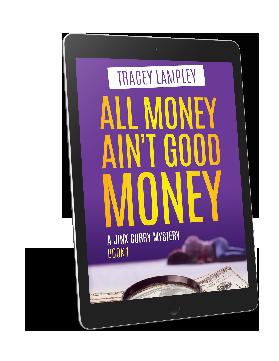
BY MICHELE MATHEWS

When we think about literature that captures the heart of a nation, the term “Great American Novel” (GAN) springs to mind, doesn’t it? This name has historically been attributed to works like Moby Dick, The Great Gatsby, and Beloved, each of which offers profound insights into the American experience. They deal with themes of identity, race, and the elusive American Dream.
But here’s a question worth pondering. In a broken, globalized literary landscape, does the notion of a singular Great American Novel still hold weight?
As we peel back the layers, we’ll take a look at the origins and evolution of this literary ideal, discuss the difficulties of modern American storytelling,
and consider the impact of globalization and digital shifts on literature. From contemporary writers to indie publishing, we will show how American literature has transformed—and we may even celebrate a diversity of narratives that resist a single definition.
The term “Great American Novel” may find its roots in the musings of writer John William DeForest back in 1868. It initially aimed to pinpoint a work that could sum up and define the American experience. However, over the years, the GAN has represented the evolving spirit of America itself and reflected the nation’s social tensions and
unique challenges.
For instance, take Moby Dick. It dives deep into themes of ambition and obsession against the backdrop of a whaling industry that’s both a metaphor for capitalist greed and a commentary on existentialism. Or consider The Great Gatsby, which examines the existence of the American Dream during the Roaring Twenties. And Beloved?
Toni Morrison’s masterpiece captures the haunting legacies of slavery in a profoundly moving and lyrical way. Each of these novels speaks volumes about their respective eras.
But here’s the twist. What once might have felt like a quest for a singular narrative has transformed dramatically. With time, the definition of the GAN has expanded. It has encouraged
readers to embrace a multitude of voices and perspectives. It’s a reminder that the American experience doesn’t belong to a single story. It belongs to many. As we dive deeper into this exploration, how can we begin to account for the diverse narratives that now define our understanding of what it means to be American?
In today’s America, it’s become increasingly clear that our national narrative cannot be sewn together with just one thread. Instead, we find ourselves among a rich tapestry of voices from every corner of the nation. Increasingly, regional literature and the contributions of immigrant communities and marginalized perspectives
command the spotlight, echoing the multiplicity of experiences that exist within this vast land.
As we navigate this terrain, it’s evident that authors are pushing against normal portrayals of American identity. Writers like Angie Thomas, whose The Hate U Give explores racial injustice, or Jesmyn Ward, who skillfully weaves stories of the South, illuminate facets of America that may have gone unnoticed by mainstream literature.
As we ponder who speaks for America today, a question arises. Can One Great American Novel remain relevant or even attainable?
The contemporary landscape names itself boldly. Authors like Celeste Ng, who captures family and cultural tensions in Little Fires Everywhere, and Brit Bennett, whose The Vanishing Half explores

racial identity, remind us that every narrative carries weight.
It’s important to reflect on the role that genre fiction plays in this evolution, too. Look at Colson Whitehead’s The Underground Railroad, which defies categorization through its blending of literary, historical, and fantastical elements. This hybrid approach not only revitalizes discussions around the Great American Novel, but it also showcases the flexibility of storytelling to reflect the complexity of American life today.
Globalization has upended traditional literary norms. No longer confined to the limitations of American experience, literature has grown through conversations
that span beyond borders. We find ourselves entwined in a rich dialogue with voices from around the world, blending together in unexpected ways that challenge the very notion of what it means for a literary work to speak on behalf of America.
Indie publishing have disrupted the previously restricted world of literature. Platforms like Amazon and Barnes and Noble Press empower voices that might otherwise fail without recognition in traditional publishing routes.
Authors can now connect with readers directly, cultivating niche audiences and sharing unique experiences that often resonate more strongly than some mainstream publications. This not only changes storytelling, but it opens the door for subcultures, disregarded experiences, and regional tales that might not fit
the mold of what critics deemed important.
In today’s book market, the influence of international authors cannot be ignored. While American literature still commands attention, the global literary conversation is shifting more and more. For example, an author like Kazuo Ishiguro, who examines themes of memory and identity in Never Let Me Go, reminds us that literature transcends borders. Does the rising prominence of these voices indicate that readers prioritize individual experiences over national identity?
It’s a fascinating time for readers, who are increasingly curious about the world beyond their own borders. Feelings of connection and empathy are sparked by narratives that reflect not only American issues but also global ones—
questions of love, belonging, and the search for identity that cross cultural divides. And as readers navigate this expansive literary landscape, does it even matter whether a book is labeled explicitly as the Great American Novel?
SO, DOES THE “GREAT AMERICAN NOVEL” STILL MATTER?
Bringing together everything we’ve explored, we find ourselves at a crossroads. Does the notion of the Great American Novel still carry the same weight in our contemporary context? We could argue that the GAN now exists not as one huge title but rather in various forms reflecting the collection of experiences across the nation.
Some may cling to the belief that the GAN endures and guides
readers through the spectrum of human emotion and experience. To them, titles like The Nickel Boys by Colson Whitehead or There There by Tommy Orange may stand in as the new torchbearers of this literary ideal, capturing the kaleidoscope of modern America while echoing the complicated legacy of those earlier works that were patted on the back by critics.
These narratives don’t shy away from confronting America’s past. Instead, they invite dialogue and reflection, creating connections between generations and experiences that formerly felt disparate.
On the other hand, there are voices in the literary community who argue that the concept of the GAN is outdated. In a world increasingly shaped by complex global interconnections, it feels
almost limiting to try and place the weight of a singular narrative onto an entire nation bursting with diverse stories.
With globalization kicking down the fences that have long divided us, why confine such rich storytelling to a few select titles when we should embrace the full spectrum of American literature in all its forms?
Lisa Braxton
A Book That Is Sensual, Fraught, And Above All, Human.” - The Boston Globe “

*

2021 IPPY Gold Medal - Urban Fiction
2020 Shelf Unbound Best Indie Book Award
2020 National Association of Black Journalists Outstanding Literary Award
Foreward INDIES Book of the Year Awards Finalist - General Fiction

Promote your book in Shelf Unbound in our Special Advertising Section for Authors.
Each issue of Shelf Unbound is distributed to more than 125,000 people in the U.S. and 62 countries around the globe. Our introductory ad rate for this section is $350/quarter page as seen here. Contact publisher Sarah Kloth to reserve your space. sarah@shelfmediagroup.com
BOOK SHELF
BY CLYDE OLIVIA
According to Leah Blythe, "I used to believe I could live on my terms until something terrible happened that changed everything. After 9/11, my emotions shifted so profoundly that I wanted to stay informed about what was happening in the country I loved. I decided to follow every critical issue affecting Americans, those who love themselves and those fighting to survive here and abroad. 9/11 gave me a deep sense of love and understanding of what it feels like to fight for something you believe in.
BY TK SHEFFIELD
MODEL WAVE is for readers who like vacations and funny mysteries!

BY JEAN BURGESS
Set in 1970s Baltimore, this is the story of 23-year-old Margie Stevens, who pulls herself out of heartbreak and embarks on a journey to discover her authentic voice. Touring with King Vido’s Swing Band, Margie faces sexism and moral challenges that force her to question her upbringing and career. As she grapples with emerging feminism, social injustice, and spirituality, Margie must find the courage to confront her fears, defy intimidation, and speak up.
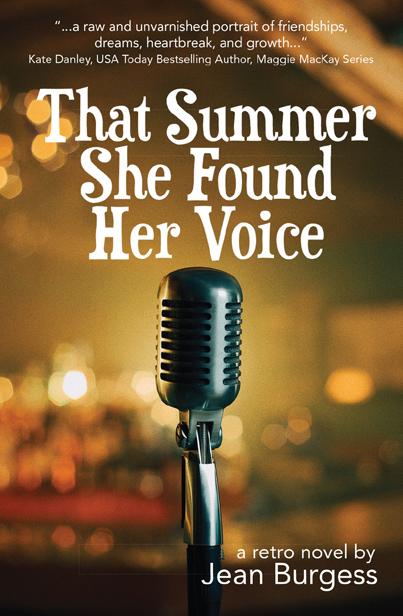

Former-fashionista Mel Tower travels to the Wisconsin Northwoods for a date with a hunky sheriff. But when a businessman is found dead on his pontoon, and a friend is accused of the crime, Mel's vacation is ruined. She uses her skill at spotting “posers” to defend her friend, discover the real killer, and save her romance. (No foul language, violence, sex, or politics.)
5-Stars Readers' Favorites. Top 100 Notable Indie. Killer Nashville Claymore Winner.
BY PATRICIA HUTH
This memoir is a heartfelt journey of reinvention and self-discovery. From debutante balls and grand manor life to a more selfreliant existence in 1980s Oxford, the author offers a fresh perspective on privilege, vulnerability, and personal growth. With humour and courage, she embraces new roles: enrolling in the Open University, playing a fairy in a pantomime, and working as a chef in a boilin-a-bag hotel. Furthermore, her involvement with multiple charities reflects her desire to create a positive difference. Described as “hilarious”, this memoir balances poignant themes with wit, offering inspiration and entertainment.
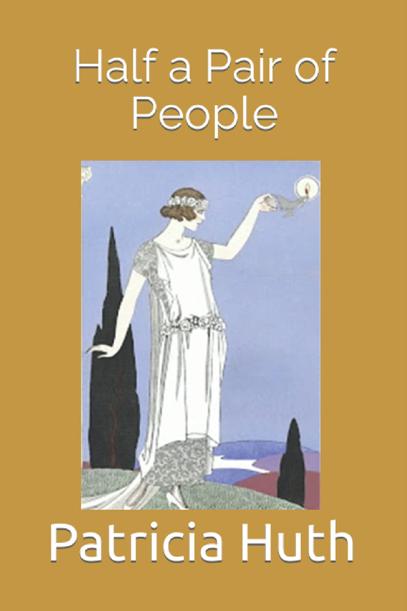
BY LLOYD JEFFRIES
BY J.E. LARSON
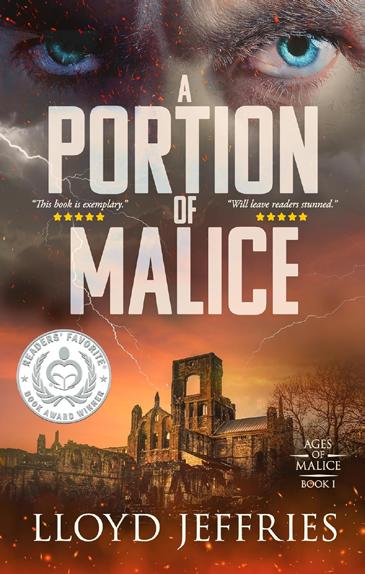
An Ancient Evil Rises. Pulitzer Prize-winning journalist Emery Merrick is ready to end it all when a knock at the door interrupts his plans. Billionaire Thaddeus Drake hires Emery to write his biography, but Drake harbors a dangerous secret. He leads an ancient, secret society bent on fulfilling a prophecy and sacrificing the Earth to a bloodthirsty God. This gripping thriller follows Emery's explosive journey into the apocalypse, as he embarks on an epic quest to confront God as an equal. Deeply stirring, Emery is thrust into a world of darkness, deceit, and brutality.
BY TAD CRAWFORD
A Woman in the Wild is a powerful novel about a psychologist in crisis who retreats to a mountain institute seeking healing after failing to protect her daughter from abuse.
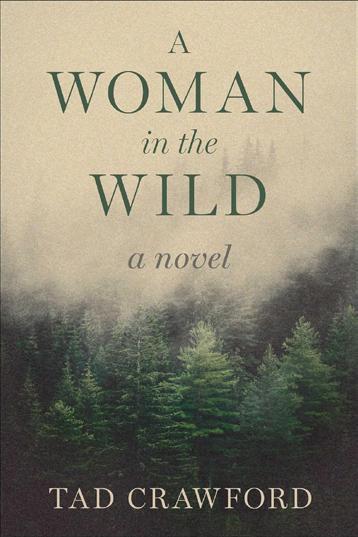
When she’s assigned to help a mysterious “wild” man, their journeys intertwine in unexpected ways. Through meditation, hiking, and deep self-reflection, she confronts guilt, resilience, and the limits of therapy in a gripping tale of trauma, transformation, and self-discovery.
Our world is dying.
Skylar Cathal is a twentytwo-year-old half-human, half-shifter with a curious mind and knack for bending the rules. Gilen Warrick, Skylar’s childhood friend and the next Alpha of the Solace pack, wants more than just her friendship– but fate has a will of its own. When Skylar is marked as the shifter champion, she must overcome her darkest fears to leave her home and those she loves behind. Daxton Aegaeon, High Fae Prince of Silver Meadows, has sworn to protect Skylar as his ward, but only she can protect her heart.

BY MARISA BILLIONS
"Your eyes are amazing. I’ve never seen a blue like that."
Emma Landry is tough, independent, and determined to escape poverty. Raised by her father, "Bear," on the wrong side of a wealthy town, she’s fought to build a life of success— and love. But when a long-buried family secret surfaces, everything she’s worked for is threatened. Faced with betrayal and a destiny darker than she imagined, Emma must decide: will she rise above her past, or let it destroy everything she’s built? Like Sapphire Blue is a gripping tale of resilience, identity, and fate.
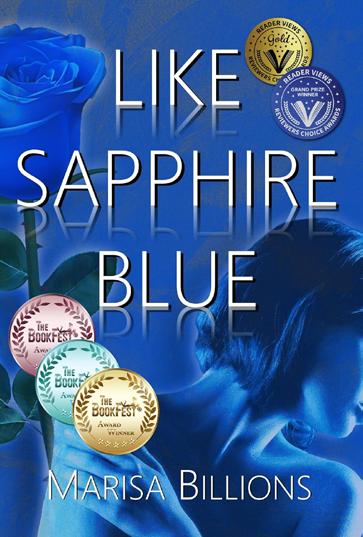
BY KRISTEN DONNELLY AND ERIN HINSON
The fate of humanity rests in the hands of a few.
Burnout is as American as apple pie, baseball, and the 4th of July.
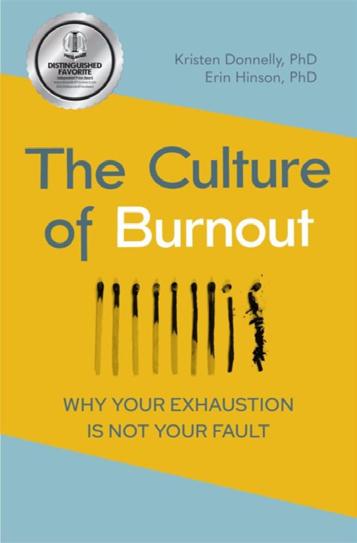
Rooted in the overwork culture of the Puritans, burnout has shaped American life for centuries. Today, many of us are trapped in a relentless cycle of exhaustion, believing there’s no way out. But there is. Culture is shaped by the choices we make, and change is possible. This book reveals why burnout isn’t your fault and offers practical steps to break free. It’s not easy, but it’s doable— and it starts now.
BY JAMES AYLOTT
Missouri
Towers—
once St. Louis’s most glamorous address, now "Misery Towers"—is home to an unforgettable cast: a trapeze artist with a faltering love life, an aging stripper clinging to the past, an undertaker seeking vengeance, and a heartbroken man chasing love one hooker at a time. On a sweltering August night, their lives collide with explosive consequences. Tales of Whiskey Tango from Misery Towers is darkly funny, wildly tragic, and an unflinching look at a city on the edge.

BY PAMELA STOCKWELL
In 1972, change is sweeping the world—but not fast enough for Triss and Everlove.
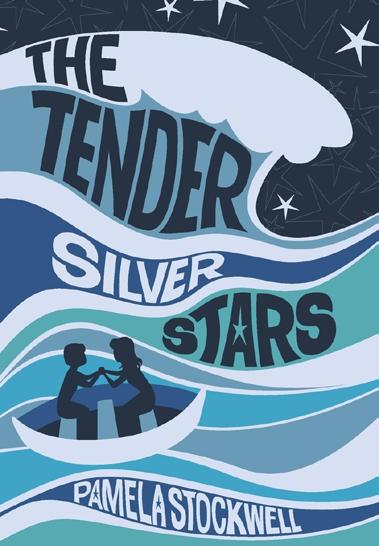
Triss dreams of becoming an attorney, but her influential grandfather won’t allow it. Defying him, she makes a reckless choice that threatens everything. Everlove, from a working-class family, has always followed the rules—until one fateful decision upends her life. When their paths cross, an unexpected friendship forms. Together, they must navigate shattered dreams and uncertain futures. Can they rebuild their lives, or will the past hold them back forever?
BY MICHAEL PRONKO
In Tokyo, respect for elders isn’t always a given—sometimes, it’s exploited.
When a retired woman and a student recluse die under suspicious circumstances, Detective Hiroshi uncovers a gang preying on the elderly, stealing pensions, life savings, and even homes. Teaming up with Detective Ishii and her women’s crime task force, Hiroshi dives into the shadowy underworld of shitamachi. With old-school cops and an ex-sumo wrestler at his back, he must untangle a web of deception before more lives are lost.
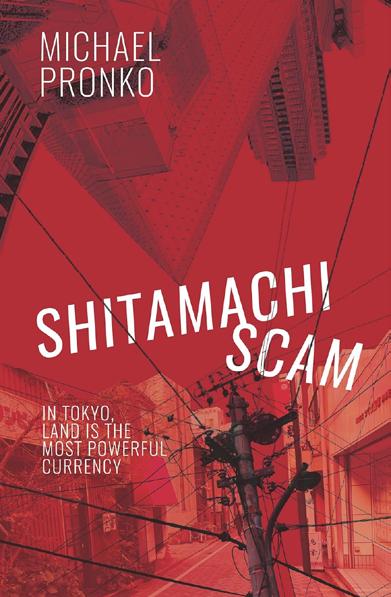
BY MAGGIE SMITH
A ruthless DA. A relentless stalker. A race against time.
Rachel Matthews is no stranger to pressure— whether in the courtroom or at home with her rebellious daughter. But when chilling threats arrive at her doorstep, she turns to an old classmateturned-PI for help. As she digs into past cases, a terrifying demand is made: pay up, or her daughter gets hurt.
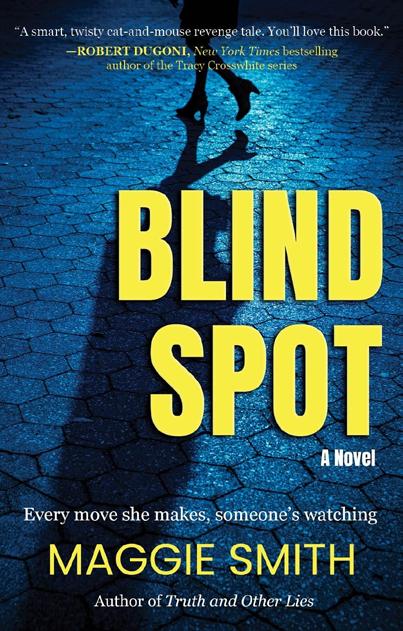
BY JAMES FULMER
A desperate beachside meeting turns deadly, leaving Rachel fighting to save her family, career, and freedom before it’s too late.
BY INGRID MCCARTHY
James Fulmer’s The Ark and the Whale blends literary fiction, magical realism, and philosophy. Through dreamlike vignettes, an introverted narrator—“Nobody”— embarks on an odyssey of redemption, confronting existential dread, identity, and the blurred lines between reality and the subconscious. Rich with poetic prose and layered symbolism, this thoughtprovoking tale challenges storytelling norms, inviting readers to immerse in surreal, introspective depths.
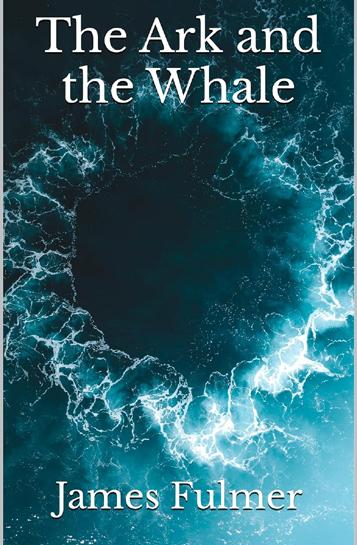
BY ONJA WASDEN AND RACHAEL SIDDOWAY

Sofia Rossi, a CanadianItalian orthopedic surgeon on leave from Doctors Without Borders, is staying with family in Verona and volunteering at Juliet's Club, answering letters from heartbroken lovers. When she responds to a letter from Luke Miller, a man in his late seventies, she writes, “Memories have huge staying power.” Unexpectedly, Luke arrives in Verona with his son, sparking an adventure that intertwines Sofia’s traumatic past with a search for a missing woman.
Anna's Shadow is a dramatic, uplifting tale of love, fate, and destiny, spanning continents and generations.
An award-winning memoir, An Impossible Life recounts one woman’s struggle through manic and depressive episodes, showing how she found lifesaving therapy and medication. At thirty-five, Sonja Wasden is involuntarily committed to a psychiatric hospital by her husband and father. Despite having a CEO husband, three children, and a picture-perfect life, she is caught in a downward spiral.
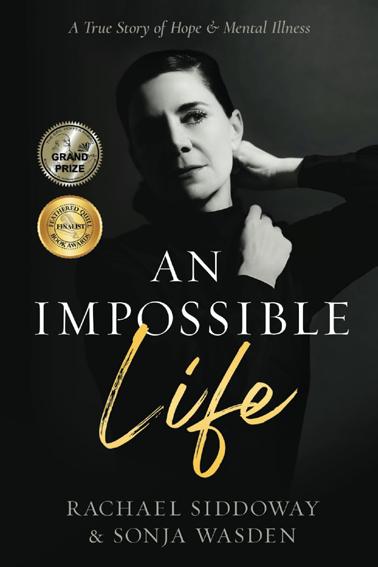
In this gripping narrative, Sonja shares her battles with mental illness, motherhood, and marriage.
ENTER YOUR BOOK!

Shelf Media hosts the annual Shelf Unbound Best Indie Book Competition for best selfpublished or independently published book, receiving entries from May 1 to October 1 each year. In addition to prizes, the winner, finalists, and more than 100 notable books from the competition are featured in the December/January issue of Shelf Unbound.
Shelf Unbound book review magazine announces the Shelf Unbound Writing Competition for Best Self-Published Book. Any self-published book in any genre is eligible for entry. Entry fee is $100 per book. The winning entry will be selected by the editors of Shelf Unbound magazine.
To submit an entry, Apply Online at www.shelfmediagroup. com/competitions.
THE TOP FIVE BOOKS, as determined by the editors of Shelf Media Group, will receive editorial coverage in the Winter issue of Shelf Unbound. The author of the book named as the Best Self-Published book will receive editorial coverage as well as a year’s worth of full-page ads in the magazine.

The deadline for entry is midnight on October 1, 2025.
BY SARAH KLOTH
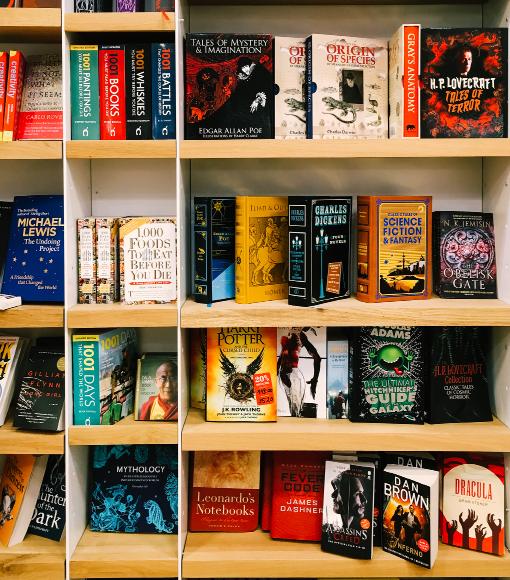
If you’ve ever found yourself adding a book to your cart because someone on Instagram or TikTok raved about it with tears in their eyes, you’re not alone. Welcome to the era of social media book communities, where passionate readers wield an influence once reserved for literary critics and newspaper reviewers. But as platforms like BookTok, Bookstagram, and Twitter propel books to the top of bestseller lists, it begs the question: who really decides what’s worth reading—social media or traditional book reviews?
The Rise of Social Media Book Communities
BookTok, Bookstagram, and even book-focused Twitter threads have reshaped how books gain popularity. Here, books aren’t just
reviewed; they’re felt. Readers post about how a novel wrecked them emotionally, left them breathless, or changed their perspective. It’s raw, it’s personal, and it spreads like wildfire.
Consider The Song of Achilles by Madeline Miller or Fourth Wing by Rebecca Yarros—both saw massive success years after publication, largely because of impassioned social media readers. These books weren’t necessarily championed by traditional reviewers at the time of release, but platforms like TikTok and Instagram gave them a second life. Why? Because social media thrives on emotion, relatability, and the power of personal recommendation.
Social media book discussions also feel like a community.
When you see someone with similar tastes raving about a book, it’s easy to think, “If they loved it, I will too.” The visual appeal of social media— stacked bookshelves, aesthetic annotations, and dreamy reading nooks—also plays a role in attracting readers. It’s no longer just about the book itself but the entire experience surrounding it.
Among all social media platforms, BookTok has emerged as the most powerful force in shaping book sales and trends. With its short, engaging videos and emotionally charged reactions, TikTok has turned books into viral sensations overnight. Unlike traditional reviews that take a measured, analytical approach, BookTok thrives on authenticity and
passion—whether it’s someone sobbing over a heart-wrenching ending or screaming about an unputdownable romance.
BookTok’s power extends beyond individual readers; publishers now actively monitor trending books on TikTok, sometimes reprinting older titles or even redesigning covers to cater to the platform’s audience. Many bookstores have dedicated “BookTok Made Me Buy It” sections because the impact is undeniable—if a book catches fire on TikTok, it can sell out within days.
What makes BookTok unique is its inclusivity. It has provided a platform for diverse authors, indie books, and genres often overlooked by traditional media. Readers who once struggled
to find recommendations that resonated with them now have an entire community eager to share books that feel fresh, relevant, and deeply emotional.
Meanwhile, professional book reviews—those found in The New York Times, Kirkus Reviews, and Publishers Weekly—offer a different kind of evaluation. These reviews analyze structure, prose, and themes with an eye for literary merit. A glowing review from The New York Times can elevate a book’s credibility, making it more likely to be stocked in bookstores and libraries. But do readers pay as much attention to these reviews as they used to? Many traditional reviews remain
influential, especially for literary fiction, non-fiction, and awardwinning novels. However, they often feel detached compared to the personal, enthusiastic style of social media reviews. While a professional critic might break down the strengths and weaknesses of a novel’s pacing, a Bookstagrammer or BookToker is more likely to scream into the camera, saying, “This book shattered my soul, and you HAVE to read it.” That kind of energy is contagious.
There’s also the issue of accessibility. Traditional reviews are often behind paywalls, buried in long-form articles, or focused on books that cater to a niche audience. Social media, on the other hand, is free and immediate. A single viral post
can introduce thousands of new readers to a book within minutes, something a traditional review rarely accomplishes.
So, who holds the power? Ten years ago, literary critics were the gatekeepers, determining what was considered “worthy” of attention. Today, influence is more democratized. Readers trust people they relate to, whether that’s a well-read BookToker, an aesthetically pleasing Bookstagrammer, or even a casual Twitter user posting a spontaneous book rant. This shift has also changed the kinds of books that thrive. Romance, fantasy, and thrillers— genres often dismissed by traditional reviewers—have found an enormous audience thanks to social media. It’s a space where self-published authors and indie books can go viral overnight, completely bypassing traditional publishing’s approval system.
That’s not to say professional reviews are obsolete. They still serve as a benchmark for literary quality and provide insightful critiques that casual reviewers may not. However, their influence is being shared, and in many cases, overshadowed by the sheer enthusiasm of social media readers.
For today’s readers, the answer depends on what you’re looking for. If you want a deep, analytical breakdown of a book’s themes,
traditional reviews still provide valuable insight. But if you’re looking for a book that will grip you, make you feel something, and be an unputdownable read— social media might be your best guide. At the end of the day, the beauty of reading is that it’s personal.
Whether you trust a seasoned critic or a Bookstagrammer who just discovered their new favorite novel, the choice is yours. But one thing is clear: social media is no passing trend—it’s shaping what we read, one viral recommendation at a time.

BY MICHELE MATHEWS

Romantasy, the fusion of romance and fantasy, is having its moment— or more accurately, a full-fledged takeover. Once considered a niche subgenre, romantasy now dominates bestseller lists, floods BookTok feeds, and sparks heated debates over who has the ultimate book boyfriend. With a 41.3% rise in readership, thanks in large part to authors like Sarah J. Maas and Rebecca Yarros, it’s clear that romantasy isn’t just a passing trend—it’s reshaping the fantasy genre. This surge in popularity isn’t just about the books themselves; it’s about the experience of reading them. Readers are seeking stories that transport them to intricate worlds filled with magic, highstakes conflicts, and passionate love stories. Romantasy provides the perfect blend of action, emotional depth, and immersive escapism, making it one of the most addictive
genres on the market today.
At its core, romantasy offers the best of both worlds. It delivers epic fantasy elements—magic, worldbuilding, high-stakes quests— while also weaving in emotionally intense romances that propel the story forward. This combination creates a reading experience that satisfies fans of both genres, bringing together those who crave massive adventures and those who seek deep, character-driven relationships.
Unlike traditional high fantasy, which often focuses on complex political intrigue and expansive lore, romantasy keeps relationships at its heart. Readers aren’t just invested in the fate of kingdoms; they’re invested in the dynamics between characters—the longing glances across battlefields and the
will-they-won’t-they tension that fuels each page. The emotional stakes in romantasy are just as high as the physical ones, which makes every victory and heartbreak feel even more intense.
Another appeal of romantasy is its ability to blend familiar tropes with fresh twists. Whether it’s a forbidden love story set against a backdrop of war or a slowburn romance between two rivals forced to work together, romantasy mixes classic themes with magic and danger. This keeps readers constantly on edge. It’s a powerful combination of escapism and emotional release, allowing readers to immerse themselves in both the fantastical world and the powerful love story unfolding within it.
The TikTok Effect
If there’s one force pushing romantasy into the mainstream, it’s BookTok. TikTok’s book-loving
community has turned backlist titles into overnight sensations and catapulted authors to international fame. For example, Sarah J. Maas’s books saw a massive resurgence years after their original release.
The power of social media lies in its ability to create organic buzz. Readers aren’t just passively consuming romantasy; they’re actively engaging with it. They share their favorite moments, debate character choices, create elaborate fan art, and develop theories that keep discussions alive long after a book’s release. This level of interaction fosters a sense of community that draws in new readers eager to be part of the conversation.
The BookTok phenomenon has also changed the way books are marketed. Traditional advertising campaigns have been replaced by reader-driven promotions, where
a single viral video can make an older book skyrocket in sales. This has given authors, especially those in romantasy, new visibility and reach, proving that social media has the power to turn books into cultural experiences. The excitement and accessibility of TikTok-driven book discussions have also contributed to the genre’s rapid expansion by introducing romantasy to a wider audience.
For decades, traditional high fantasy was dominated by male authors and Tolkien-like worldbuilding. While those stories remain beloved, romantasy has brought a new wave of readers to fantasy. Many of these readers were previously drawn to romance, young adult fiction, or characterdriven narratives. One major shift in readership is the increased focus on
accessibility. Traditional fantasy often requires a deep investment in world-building, extensive lore, and intricate political systems. In contrast, romantasy balances these elements with fast-paced plots and emotional engagement, making it more approachable for a broader audience. The emphasis on relationships, personal stakes, and character-driven storytelling makes the genre feel both grand in scope and intimately emotional.
Women-led stories have also taken center stage. These books frequently feature strong heroines, emotional depth, and powerful relationships, which appeal to readers seeking both adventure and heart. Additionally, the rise of new adult fantasy bridges the gap between young adult and traditional adult fantasy, tackling more mature themes without losing the magic of escapism. This shift has opened doors for more
diverse voices and perspectives in the genre, ensuring that romantasy continues to grow and evolve.
This evolution has expanded the fantasy readership, welcoming fans who once felt excluded or overwhelmed by traditional fantasy. Now, fantasy isn’t just about kingdoms and wars—it’s about love, personal growth, and relationships that feel as monumental as worldaltering battles.
Romance in fantasy isn’t new, but the way it’s being written now feels different—bigger, bolder, and more central to the narrative. Part of the appeal comes from the tropes that romantasy thrives on. Enemiesto-lovers remains one of the most popular, with characters who start as rivals before being drawn together by circumstance. The tension builds until it ignites into
passion. Fated mates add another layer of emotional depth, tying romance to destiny and making love feel inevitable yet thrillingly uncertain. Themes of found family also resonate deeply, reinforcing the idea that love—whether romantic or platonic—is a source of strength.
These relationships aren’t just side plots. They are often the heart of the story, making victories more rewarding and heartbreaks more devastating. By intertwining romance with high-stakes adventure, romantasy ensures that readers are emotionally invested in every aspect of the narrative. The result? Books that keep readers up all night, unable to put them down.
With its current momentum, romantasy isn’t slowing down anytime soon. But where is the genre headed?
New authors are emerging as the next big names in romantasy, with writers like Carissa Broadbent, Scarlett St. Clair, and Shannon Mayer gaining recognition. More self-published romantasy books are breaking into the mainstream, proving that readers are eager for fresh voices and unique worlds beyond traditional publishing’s gatekeepers.
Adaptations are also on the rise. With the success of Fourth Wing and ACOTAR, more romantasy books are likely to get TV or film deals. Whether they will live up to the expectations of fans remains to be seen, but the demand for on-screen romantasy is undeniable.
Readers are also craving new variations in the genre. Darker romantasy, cozy romantasy, and stories featuring morally gray characters or villainous love interests are becoming more
popular. As the genre evolves, its flexibility ensures that it will continue to attract audiences, pushing the boundaries of what fantasy love stories can be.
Romantasy isn’t just a trend. It’s a genre that’s here to stay. By blending epic adventure, emotional depth, and heart-stopping romance, it has captivated a new generation of readers and redefined what fantasy storytelling can be.
With social media fueling its rise, diverse voices expanding the genre, and a growing appetite for immersive love stories, romantasy is set to dominate bookshelves for years to come. So, the only question left is: which romantasy book are you reading next?
BY MICHELE MATHEWS
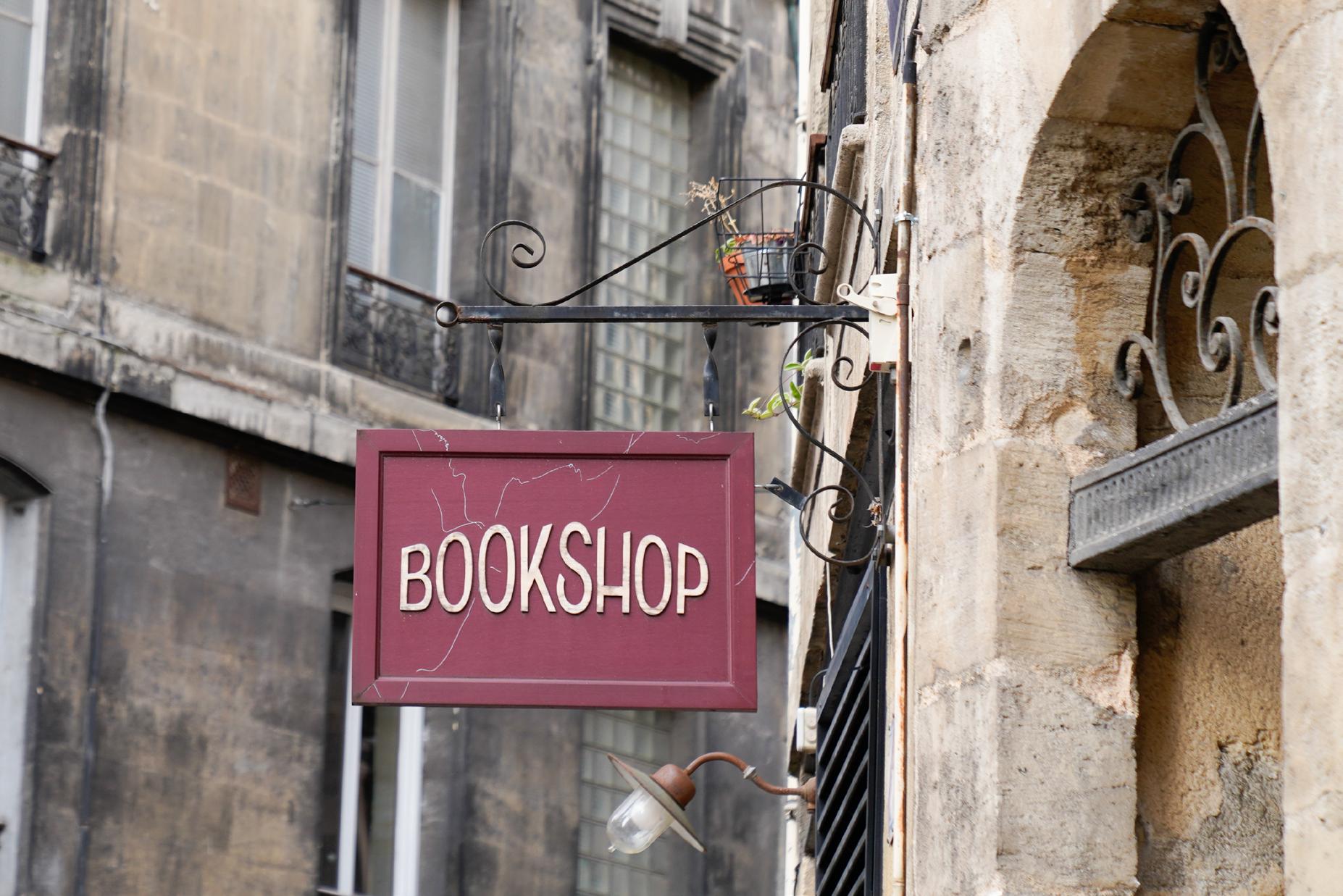
A few years ago, it seemed like indie bookstores and small presses were fighting a losing battle. With the rise of Amazon, big-box retailers, and the dominance of major publishing houses, independent bookselling and publishing felt more like a labor of love than a viable business. But against all odds, indie bookstores and small presses aren’t just surviving—they’re thriving today.
The same goes for small presses. More readers are actively seeking out unique, diverse voices that the Big Five publishers often overlook. And small presses? They’re stepping up to meet that demand.
Small Presses and the Power of Niche
Traditional publishing often plays a numbers game. To justify investments, they need books that will sell in huge quantities, meaning they stick with proven authors and mainstream appeal. But small presses have the
So, what changed? The pandemic altered the way we shop, read, and choose who to support. While chain stores struggled with supply chain issues and corporate policies, indie bookstores quickly pivoted. They began offering local delivery, curated book boxes, and personalized recommendations. Readers took notice—and they stuck around. According to the American Booksellers Association (ABA), the number of independent bookstores in the U.S. has grown in recent years, with over 2,400 now open. The established bookstores are expanding, too.
freedom to take risks.
Take Tin House, for example. They started as a literary magazine before evolving into an indie press that consistently publishes groundbreaking fiction and nonfiction. Or look at Red Hen Press, which began to help authors overlooked by large publishers and gives back to the community through their Writing in the Schools program.
Small presses do something traditional publishers often can’t: They build real relationships with their readers. Many operate direct-to-consumer models, selling books through their websites, social media, or subscription services. This connection fosters community and loyalty in ways that big publishers rarely achieve.
Another key factor in the success of small presses is hybrid publishing. This model blends traditional and self-publishing approaches, allowing authors more creative control while still benefiting from professional editorial, design, and marketing support. Many indie publishers have embraced this model, giving emerging authors a platform while maintaining high-quality standards. Crowdfunding has also played a major role in this transformation. Platforms like Kickstarter enable small presses and authors to fund projects directly through reader support. In turn, readers feel invested in the books they help bring to life. It’s a win-win
situation, reinforcing the idea that independent publishing is as much about community as it is about commerce.
If you think indie bookstores are just smaller versions of Barnes & Noble, think again. These spaces have transformed into community hubs, offering far more than a place to pick up your next read.
Many indie bookstores now host author readings, themed book clubs, and writing workshops. They also support local authors, featuring their books and organizing in-store signings. This approach helps new and diverse voices find an audience in ways that large retailers often overlook. For example, Fables and Fairy
Tales in Indiana hosts at least one book club a week, with activities for children and adults and book signings for local authors. The Rose Romance Bookstore, which opened last year, sells only romance books and related merchandise, while also hosting local author signings.
Beyond the in-store experience, indie bookstores have adapted to digital spaces, strengthening their reach. Online bookshop platforms, social media engagement, and creative marketing have helped local shops connect with a broader audience.
One major advantage indie bookstores have over online retailers is their ability to curate selections and hand-pick books. Unlike algorithms that push
bestsellers or trending titles, indie booksellers offer personalized recommendations based on deep knowledge of their inventory and customer preferences. And let’s not forget Bookshop. org, which allows customers to buy books online while supporting independent stores—a game-changer for many small businesses.
You can’t talk about the rise of indie bookstores and small presses without mentioning the social media phenomenon that has fueled their growth: BookTok. TikTok’s book-loving community has skyrocketed book sales, particularly for indie and backlist titles that might have otherwise gone unnoticed. Bookstore owners have embraced the trend, using
TikTok and Instagram to highlight staff picks and new releases, as well as connect with readers in real time. Some small presses have even built entire marketing strategies around influencer partnerships to reach highly engaged niche audiences.
It’s not just TikTok, though. Many small presses and bookstores have mastered the art of email newsletters, subscriptions, and online book clubs. The more personal and interactive the experience, the more readers want to be part of it.
Running a bookstore or small press is no easy feat. They still face high operational costs, supply chain disruptions, and stiff competition from major retailers. Small presses often struggle with
distribution, making it harder for their books to land in front of mainstream readers. And Amazon’s pricing remains a threat. However, some indie bookstores and publishers have found creative ways to navigate these hurdles. Cooperative models, where small presses and bookstores collaborate on distribution, have emerged as an alternative. Communityfunded initiatives and nonprofit bookstore models are also gaining traction. Despite these challenges, the future looks hopeful. More than ever, readers value authenticity, connection, and diversity in their book-buying experiences. Indie bookstores and small presses are uniquely positioned to provide just that.
If you love books and want to see indie bookstores and small presses continue to thrive, the best thing you can do is support them. Buy from your local bookstore instead of defaulting to Amazon. Follow small presses on social media and subscribe to their newsletters. Attend author events, join a book club, or spread the word about an indie book you love.
Indie bookstores and small presses succeed because readers choose to support them. And that choice? It makes all the difference. So, what’s the best indie bookstore or small press book you’ve discovered lately?
BY ANTHONY CARINHAS






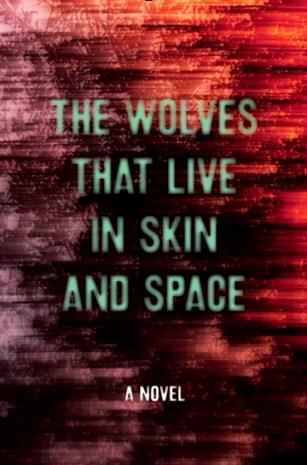

WAS BECOMING AN AUTHOR ALWAYS ON THE RADAR OR DID SOMETHING CHANGE IN YOUR LIFE THAT PUT YOU ON THE PATH?
CZ: I must have had an inclination early on, because I attempted to write a novel in high school.
But I don’t think I took writing seriously until my mid twenties. I started a blog about my experiences in the adult industry. It developed a small readership, something that provided enough of a feedback loop for me to keep doing it for several years.
At the same time, I was working on a manuscript that leaned more into my aesthetic and genre sensibilities. That ended up being the first novel I’m proud of: The Wolves That Live in Skin and Space .
I’M A HUGE FAN OF HORROR BECAUSE THE GENRE IS LIMITLESS—ESPECIALLY IN BOOKS. NOW THAT EVERYONE’S HANDS ARE IN IT THESE DAYS, WAS THERE ANY PRESSURE TO CREATE
CZ: Of course, I’d love to believe my work is unique. And I do think there’s a certain flavor to my recent books that would be difficult to replicate – if only for some of the lived experience that goes into this stuff.
At the same time, I play with genre tropes that have been recycled a million times over. My novel, The Magician , is about revenge, redemption, black magic, the nature of good and evil, etc... None of that stuff is new.
I just believe in throwing anything that works into a novel. The combinations and iterations can produce compelling material, or something that feels like it hasn’t been done before, even if that’s not entirely true.
UNK POST IS A POSTPRODUCTION STUDIO IN LOS ANGELES THAT COLLABORATES WITH INDEPENDENT AND PROMINENT COMPANIES. WHERE WOULD YOU LIKE THIS VENTURE TO GO SINCE YOU
CZ: So, yes, I do technically own a business called UNK Post. At the moment, it’s more or less a one man operation.
In short, the career I’ve built for myself over the past decade is in video editing and motion design. I work freelance for a number of brands, agencies, and production companies throughout the United States.
I’d love to get to a point where I have a small, reliable team that can service advertising needs for larger brands. Right now, I’m mostly brought on to those kinds of projects via a larger agency that needs help or wants to farm out some of their excess work.
To answer your question: this is my job. The only real goal is to make my clients happy and make money.
GIVE US SOME INSIGHT ON WHAT IT WAS LIKE EDITING, STARRING, PRODUCING AND SCREENWRITING YOUR SHORT FILM THE MAGICIAN WHICH WAS DIRECTED BY MATTHEW
KAUNDART? WHERE CAN WE SEE IT?
CZ: The Magician is my most recent novel. It’s also something I sought out to do as a multimedia project.
Initially, I’d dreamed up a literary art book, wherein fine art photos would accompany the text. My friend and collaborator, Luka Fisher, agreed to help produce the photo shoots. She also suggested that we expand the project to include video. So we did.
Luka brought on director, Matthew Kaundart, and photographer, Gina Canavan, to bring the project to life.
Unfortunately, I’d barely started writing the book. So everyone had to wait on me to write a section and then come up with what we would do, visually, to accompany the text. It was an inefficient way to make a film. The production schedule ended up lasting several years. I think everyone’s excitement kind of dwindled by the end of it.
I’d started out by funding the project via sex work. Halfway through, I
decided that I no longer wanted to do porn or be a hustler. So funding the project also became difficult.
There’s an essay I wrote about the whole process that’s included in my short story collection, Creation: On Art and Unbecoming .
I’m proud of the work we did. But I don’t think I’d attempt something like that ever again. Filmmaking is too complex and stressful to do in such a haphazard fashion. People can become a bit resentful if you drag them into a project with no end in sight.
Anyway, you can watch the short film on my website: ChristopherZeischegg.com
IN BODY TO JOB, THE NOVEL IS BOTH MEMOIR AND FICTION ON THE ADULT FILM INDUSTRY. THE STORIES WERE WRITTEN BETWEEN 2010 AND 2016. I REALLY LIKED YOUR EXPERIMENTAL VOICE INSTEAD OF THE STANDARD MEMOIR RECIPE. WHAT MADE YOU EXPERIMENT WITH THE
CZ: The early iterations of that material were written for a blog I’d started in order to document my experiences in the adult industry. So, when I approached Rare Bird (the publisher), I knew I had the skeleton of a memoir. I just needed to flesh it out.
But I approach a book in a different way than a short story or essay. Of course, I’m aiming for aesthetic cohesion. Beyond that, it feels like an opportunity to play with whatever forms make sense in order to communicate a feeling or idea.
My porn career ended, basically, overnight. The year or two that followed was chaotic, devastating, etc... In exploring that period of my life in a literary context, I felt less restricted by reality. It seemed that I was going through hell. How could I make sense of that? I just expanded the language to include elements of genre, magical realism, and whatever else I felt worked to convey that.
COME TO MY BROTHER IS A COMING-OF-AGE STORY ABOUT
DAVID AND ALL THE PEOPLE
THAT SHIFT IN AND OUT OF HIS LIFE. IT’S ALSO ABOUT VAMPIRES. IS THERE ANYTHING THAT INFLUENCED YOU TO SET THE STORY IN THE EARLY 2000’S?
CZ: This is the book I like talking about the least. I wrote the first draft in my early twenties. And yes, it’s about vampires.
Part of me thinks it’s fun. Part of me is utterly embarrassed. But whatever. I feel that way about most areas of my life.
It’s a good snapshot of where I was at during that period of my life. Would I recommend anyone read it? Not really.
It’s set in the early 2000’s because that’s when I wrote it.
THERE’S A HUMAN ELEMENT IN COME TO MY BROTHER WHICH MAKES FOR AN ENGAGING AND STELLAR READ. WHY THAT ROUTE WHEN YOU COULD’VE MADE A SLASHER NARRATIVE
WITH NO EMPATHY?
CZ: I’m not entirely sure how to answer this.
Happy to hear you enjoyed the book. But this is the only one of my novels that feels, to me, like it was written by someone else or in a different life. It’s basically my perspective as a kid. I find it hard to relate to anymore.
THE WOLVES THAT LIVE IN SKIN AND SPACE IS A CRITIQUE ON CONSUMPTION AND HOW PEOPLE DEAL WITH IT FROM VARIOUS VANTAGE POINTS. A STORY ABOUT OBSESSION. I’M CURIOUS IF THE CONTENT IS JUST A REFLECTION ABOUT OUR VOYEURISTIC SOCIETY AND ITS DESIRE TO WATCH VIOLENCE?
CZ: I don’t think I’m smart enough to start a book with a big picture idea like, “This is going to be a critique of [fill in the blank].”
TWTLISAS was my response to the loneliness, isolation, and burnout I was starting to feel working in the adult industry at that time. It wasn’t like I began with those themes in
mind. I just started writing down some of the real-life problems I was having, and then thinking about what I could do with that in a more expansive narrative and genre context.
Any insight into society at large is there by accident.
THE MAGICIAN IS A DARK METAPHYSICAL STORY ABOUT STRUGGLE AND INDECISION ON A NARRATOR WHOSE ALTER EGO BINGES ON ALL KINDS OF THINGS IN LOS ANGELES. DESPITE THE DISTURBING IMAGERY SPLATTERED IN THE NOVEL—WAS IT CHALLENGING TO OFFER AN ACT OF REDEMPTION ON A NARRATOR LIKE THIS?
CZ: Well, the narrator is me. Or a more stupid or less self-aware version of me.
The Magician is a blend of autofiction, horror, and noir. While much of it is not “true,” it’s loosely based on the year or two that followed my porn retirement. I’m not sure I thought of it as a redemption
narrative when I was writing the book. The ending felt more like an act of giving up, like I’d fucked up too badly and there was a kind of resignation to a slower, more insidious kind of evil.
But friends and mine and readers have pointed out a more sincere spiritual redemption narrative under the surface. I think that’s currently a work in progress.
THE MAGICIAN HAS RECENTLY BEEN TRANSLATED INTO GERMAN BY FESTA VERLANG. AN ACHIEVEMENT FOR ANY ASPIRING AUTHOR. DID YOU THINK THAT’D HAPPEN SO FAST CONSIDERING YOU’RE STILL A BUDDING INDIE WRITER?
CZ: The translation was a wonderful and unexpected opportunity.
Wish I had more insight into how it happened. Festa Verlag reached out to me, I think, after seeing some organic response to the book online. So, I guess I’m just grateful to everyone who’s read The Magician and shared their recommendation on
social media.
FOR ANYONE THAT HASN’T HEARD OF YOU, I FEEL YOUR LATEST BOOK, CREATION, SHOULD BE READ LAST SINCE IT’S A CULMINATION OF ALL YOUR IDEAS PUT INTO ONE BOOK. A DEEP DIVE IN THE ART WORLD AND HOW IT’S SPAWNED. LOOKING BACK— WAS IT A NIHILISTIC LIFESTYLE THAT PAVED WAY FOR THE RENAISSANCE THAT’S SPRUNG INTO YOUR LIFE?
CZ: That’s probably a reductive way of putting it, but I more or less agree.
I used to be a hooker. Now I’m invested in monogamy and family.
I used to align myself with a nihilistic or pessimistic worldview. Now I believe in God and at least strive toward a more optimistic vision of the future.
But I also love the aesthetics of violence. No matter how my worldview changes, I’ll likely keep incorporating that stuff into my work.
WHAT’S YOUR FAVORITE HORROR NOVEL?
CZ: Of all time? Not sure. I definitely jumped on the B.R. Yeager bandwagon the past few years. Negative Space seems to be the contemporary horror masterpiece by all standards I’m aware of.
WHAT’S YOUR FAVORITE HORROR MOVIE?
CZ: Again, it’s hard to pick my favorite of all time.
I watch fewer movies in general these days. But back in my mid-twenties, I remember being blown away by Pascal Laugier’s Martyrs. I’ve heard it doesn’t quite hold up, though, so I’m hesitant to revisit.
I also loved Event Horizon as a kid. That movie is still really fun.
IF THESE PAST FOUR YEARS HAVE TAUGHT US ANYTHING IT’S TAKING THINGS DAY BY DAY. BUT WHAT CAN YOUR FANS EXPECT NEXT?
CZ: I’m currently working on a horror novel and its sequel. It will
likely be a couple of years before I publish either.
MANY CONSIDER YOU A NEW VOICE IN TRANSGRESSIVE FICTION. IN MY OPINION THAT’S A HUGE ACCOMPLISHMENT CONSIDERING THE TURF IS HARD TO CRACK SINCE A CERTAIN SKILLSET IS REQUIRED TO MASTER THAT STYLE OF WRITING. WHAT OTHER AREAS OF WRITING DO YOU WANT TO EXPLORE?
CZ: I’m working on the horror

project I mentioned in the previous answer.
Beyond that, I abstractly have an idea for the next book I want to write.
Not sure if it will explicitly be horror. Likely something in the realm of dark magical realism.
That’s a long way off, though. I can always change my mind.
Set in Los Angeles amidst a dying adult film industry, real-life porn star and cam model Danny Wylde recounts the end of his career. He bears his last months with the death of a friend, a client’s dangerous fantasy, a secret boyfriend, and a family bent on destroying him. Wylde’s second novel moves the literature of pornography’s narrative past its decadent history and into the world of disposable, tube-site celebrity, month-to-month living, and dissolving barriers between consumer and consumed.
BY CHRISTINA CONSOLINO
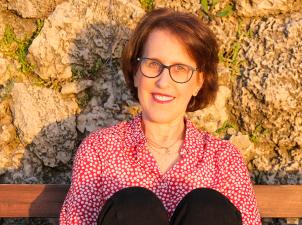
Landed follows American-born Jennifer's journey through midlife, cross-cultural marriage, and an empty nest. As she navigates life in Israel and the wisdom of yoga, she learns that home is about who you are, not where you live. Written in experimental chapterettes, the novel explores seven years of self-discovery.
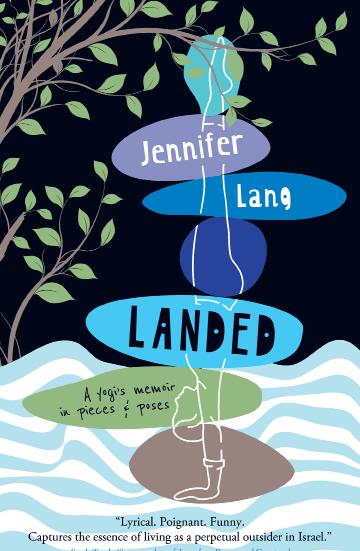
Author Jennifer Lang is a selfdescribed “American-French-Israeli hybrid” who writes about “identity, language, home,” and belonging. She also runs Israel Writers Studio, a “home for English-language creative writers” that is based in Tel Aviv, where she currently lives. She recently launched her second memoir, Landed: A yogi’s memoir in pieces & poses, which is poignant, humorous, genuine, and relatable. Jennifer shared with me a little bit about about her intentions for and approach to writing.
LANDED: A YOGI’S MEMOIR IN PIECES & POSES IS YOUR SECOND MEMOIR. WHAT DRAWS YOU TO THAT GENRE IN PARTICULAR? HOW DO YOU DETERMINE WHAT STORY YOU’RE GOING TO TELL?
JL: Creative nonfiction is the umbrella term that holds a multitude of truth-telling genres: memoir, personal essay, immersive journalism, and more. I have always been drawn to telling the truth (especially as a younger sister to a bossy older brother, me playing the role of tattleteller to our parents) and playing by the rules, which go hand in hand.
I was never comfortable on stage, doing theatre, taking on a different role, being someone else. Maybe it’s my genetic make-up, the way I’m wired.
Deciding what story to tell is not obvious and feels more like trial and error. I don’t know many writers who land the story on the first or second draft. In the case of Landed, I started and stopped several times over years, beginning with a 95K-word manuscript, eventually finding my way through the dark, dense woods, ending with two books with different focal points, answering different questions, totalling 55K words. They are compact, compressed, concise, more befitting to the way I began writing during periods of ebb and error. The first book is a marital search for home, while the second is a late-in-life coming-of-age.
ONE REVIEWER SAID OF LANDED THAT IT “PROVIDES THE READER WITH A REALISTIC AND MULTILAYERED JEWISH WOMAN” AND “WE CAN TURN TO A BOOK LIKE LANDED FOR AN HONEST DEPICTION OF A WOMAN WHO ENCOMPASSES
MANY THINGS, INCLUDING BEING JEWISH.” THAT’S HIGH PRAISE, BUT WITH THE RISE IN ANTISEMITISM AROUND THE GLOBE, DID YOU HAVE ANY RESERVATIONS ABOUT PUBLISHING THIS SECOND WORK?
JL: Unfortunately, yes. Loads of reservations. Gobs of doubt. Nights of no sleep. Gazillions of maybe-Ishouldn’t thoughts.
In some ways, it’s as if I set myself up for failure by putting this book into this world, while in others, it feels imperative to not let anyone silence me, us, the Jewish writers in the literary world. Not now, not ever. Ironically, my first book is a story of voice so it is even more crucial to make myself heard loud and clear, strong and proud.
WITH RESPECT TO YOUR FIRST BOOK, PLACES WE LEFT BEHIND: A MEMOIR-INMINIATURE, LITERARY TITAN SAID OF THE WORK, “WHILE IT ISN’T NECESSARILY A SELFHELP BOOK, READERS STAND TO GAIN INVALUABLE INSIGHTS FROM LANG’S RESILIENT
COPING MECHANISMS AND INDOMITABLE COURAGE IN THE FACE OF GRAVE ADVERSITIES.” HOW DO YOU FEEL ABOUT THIS COMPARISON? WAS IT SOMETHING YOU SET OUT TO DO RIGHT FROM THE BEGINNING?
JL: Reading reviews of both books has been enlightening. Each time I read one, I learn even more about my own work. For that, I am grateful. I do not consider myself brave or courageous. Even the word resilient rubs me wrong. Yet, resilience is a theme running throughout my second book. After hearing Sherri Mandell, author of The Road to Resilience: From Chaos to Celebration, explain that resilience isn’t about being strong, but rather first being weak, “shattering when you need to, knowing there will be others to help pick you up,” I understood that resilience is my superpower. I know how to fall apart; I cry with abandon. I turn to others—my spouse, my friends—to help hold me up.
All that said, my coping mechanisms are many. The default is crying, but with age and experience, I’ve mastered others as well:
compartmentalization, denial, a dash of mindfulness, and, thanks to yoga, intentional breathing.
YOU PLAY WITH FORM AND STRUCTURE IN YOUR WRITING. HOW DO YOU DECIDE ON WHAT FORM/STRUCTURE SUITS THE STORY? WHEN IN THE WRITING PROCESS DOES THIS OCCUR?
JL: Form and structure are my go-to, at my times my MO. I am a Virgo, type A, tightly wound, in need of yoga, in need of boundaries and structure and systems both in my professional and my personal lives to help me deal with what oftentimes feels like overwhelm.
Places is a straight linear story told in present tense, while Landed flips between present, past, and [yoga] poses. In the case of the second book, I started with the structure, which is more complex and daring and ambitious than the first. Once I realized it was a seven-year story—a very meaningful number in both yoga and Judaism—I envisioned seven lengthy year-long sections, each full of a differing number of short chapters, and each separated by a story of the seven chakras, as I
learned them in the 90s with my first teacher, Rodney Yee. I could have omitted the chakra sections but felt the text begged for them, to show the connection between the ancient mind-body practice, its effect on me and my mind and body and lived experience.
I feared the structure would be the manuscript’s downfall. Until, one day, in 2022, I got an offer of publication from Vine Leaves Press and a big, fat, bold YES.
YOUR WRITING IS VISUAL, TOO—NOT JUST WORDS ON A PAGE BUT CHARTS AND LISTS, ETC. THOSE EVERYDAY TOOLS LEND, IN MY OPINION, AN INTIMACY TO YOUR WORK. WHAT WAS YOUR INTENTION ON INCLUDING THESE VISUAL ELEMENTS?
JL: I love that you think my everyday tools lend an intimacy to my work. That makes me smile. The playful, experimental prose was my doing; while it was intentional at first (after seeing some small indie presses say “open to experimental prose”), it quickly became organic
as if the text was longing to be bent and shaped, revised and re-visioned. My yen was to create something sui generis, something that readers won’t easily forget.
On some level, I sensed that the story was too dramatic and intense and needed lightening. Pushing the boundaries of words and using symbols and other crazy devices (caption bubbles, redaction, T-F quiz) helps release some of the tension. They are my attempt to imitate others who have gone before me, first and foremost, the late Amy Krouse Rosenthal, author of Encyclopedia of an Ordinary Life.
MEMOIRISTS FIND MEANING IN PAST EXPERIENCES AND PASS THAT MEANING ONTO READERS. DID WRITING ABOUT YOUR EXPERIENCES REVEAL ANYTHING YOU WEREN’T AWARE OF BEFORE YOU BEGAN WRITING?
JL: Writing revealed what yoga represents in my life, which might be obvious and sought after for some, but something I was resisting. Ever since my inherited religion (Judaism) became more negative and
oppositional (through my sibling, in my marriage), I battled with and felt bombarded by religion and spirituality. That said, throughout the two decades of teaching yoga, my students often said they saw me as spiritual. Many people need some kind of framework—whether organized religion or nature or other—to understand how to live, how to behave, how to respond. Through writing, I understood that Judaism is to some (my spouse, my sibling) as yoga is to me.
I also realized that while I described myself as female, American, Jew as a teenager, I see myself clearly today as Jew. The world has made it obvious that that’s front and center and all that counts.
YOUR STORIES ARE SPECIFIC TO YOU, BUT THE UNIVERSAL THEMES HELP READERS RELATE TO THEM. HOW DIFFICULT IS IT TO FIND THAT PROPER BALANCE BETWEEN SPECIFIC AND UNIVERSAL?
JL: Landed is about identity and self-acceptance, and while it’s not an issue for some women it’s unfortunately common for others.
I find it especially so for those who married young and became mothers and played traditional roles as primary caretaker. It is too easy to lose oneself and one’s sense of purpose, often only waking up to ask who am I in the early fifties. I strived to weave these themes throughout the story and hope I achieved that.
THE RELATIONSHIP BETWEEN THE US AND ISRAEL IS COMPLICATED, AND MUCH OF WHAT WE SEE HERE IN THE US IS THROUGH THE MEDIA’S LENS. WHAT’S SOMETHING YOU WANT PEOPLE TO KNOW ABOUT LIFE IN AND THE PEOPLE OF ISRAEL?
JL: Thank you for asking this question. When I sat down to write Landed, I was on a mission: to write about Israel for anyone, primarily non-Jews, who know little or nothing about the country, to see what the daily life is like, to understand what it’s like to be surrounded by enemies and hear air-raid sirens and run for shelter, to live history in real time in a very misunderstood and complex country in a capricious region.
With both books, I try not to make assumptions about what a reader
knows about where I live. In Places, I use footnotes to explain the inanity of Jewish law; in Landed, I use endnotes for readers who are curious enough to read to the last page. My greatest hope is that readers are open-minded to both the playful form and the controversial (at times) content.
JL: Now that I’ve written my story and published two books—Places We Left Behind: a memoir-in-miniature and Landed: A yogi’s memoir in pieces & poses —I am eager to free myself from the truth. To imagine it here and there. To try my hand at historical fiction. To tell the story of my late grandfather, who fled antisemitism under Czar Nicolas II and emigrated from Russia to San Francisco circa 1918, and helped build the Jewish community while witnessing the building of the City by the Bay. And, as someone who hosted me on their podcast recently pointed out, my Zayde’s story isn’t so different from mine. Like mine, his is one of identity and search for home, two of my all-time favorite themes.
BY MICHELE MATHEWS
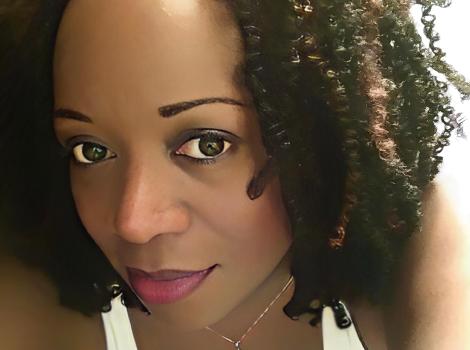
Ben and Corinthia spent years abducting college coeds, until one night they took the wrong victim . . .
No one knew witnessing their first murder at seven would propel Ben and his twin toward a killing spree in Pennsylvania. Racked with guilt, they vow to take just one more victim. Too bad they snatched the wrong woman.

A Philadelphia native, Aliah Wright is a writer and a former entertainment editor. She’s worked for the Associated Press and Gannett/USA Today Network. Last September, Aliah released her debut novel, Now You Owe Me. It’s recommended for fans of Tana French, Gillian Flynn, and Karin Slaughter.
NOW YOU OWE ME EXPLORES DEEP THEMES OF FRIENDSHIP, OBLIGATION, AND DECEPTION. WHAT WAS THE INITIAL SPARK FOR THIS STORY? DID A PARTICULAR EVENT OR REAL-LIFE EXPERIENCE INSPIRE IT?
AW: First, thank you for this wonderful opportunity. Several years ago, I was sitting in a nail salon in Virginia when the news came on about the discovery of a woman’s body. I remember thinking, “Just once I’d like for stories like this to end more positively.” So, I wrote one.
YOUR PROTAGONISTS NAVIGATE COMPLEX MORAL DILEMMAS. HOW DID YOU DEVELOP THEIR PSYCHOLOGICAL DEPTH?
AW: I did a lot of research—something I learned while working as an investigative reporter and political correspondent for The Associated Press in Pennsylvania. Also, a close relative was studying psychology at the time, and I perused their textbooks and that helped as well.
WERE THERE ANY CHARACTERS WHOSE ARCS SURPRISED YOU AS YOU WROTE?
AW: Yes. The twins. I knew which direction I was going in with them, but they were a lot harsher in earlier versions— especially Corinthia. I had to find their humanity—and readers have pointed out that they didn’t know whether to despise them, root for them, or feel sorry for them. These are things I think can be found in any of us, especially those of us harboring secrets. I wanted to write about the evolution of a serial killer, like what makes them what they are. I hope I did justice in making them complex.
THE TITLE ITSELF SUGGESTS THEMES OF TRANSACTIONAL RELATIONSHIPS AND UNSEEN DEBTS. HOW DID YOU CONCEPTUALIZE THE IDEA OF “OWING” SOMEONE, AND HOW DOES IT SHAPE THE POWER DYNAMICS IN THE NOVEL?
AW: Good question! Believe it or not, that wasn’t the original title of the book. I changed it to reflect the sense of debt between the two antagonists. As for the power dynamics— good catch! Corinthia is plagued by this overwhelming drive to seek revenge. She behaves the way she does towards Ben because of something that
happened between the two of them in the past. So, Ben is driven by his compulsion as well as by an extraordinary sense of guilt. He 100 percent believes that for the rest of his life he will owe his twin. It is one of the many reasons he acquiesces to her every whim.
NOVEL KEEPS READERS GUESSING. WHAT TECHNIQUES DID YOU USE TO MAINTAIN SUSPENSE WHILE STILL MAKING THE TWISTS FEEL ORGANIC?
AW: One of the ways in which I maintained suspense and kept the reader from wanting to put the book down was to always end each chapter on a cliffhanger. I wanted the reader to be driven to see what comes next. And I’m happy to say that a lot of people, especially in reviews on Goodreads and Amazon and on TikTok and through many emails, have told me they couldn’t put it down. It’s a page turner because there is always the sense of wanting to know what happens next.
YOU ALWAYS KNOW HOW IT WOULD END?
AW: Oh, yes. I’m a plotter, not a pantser. I always use outlines—for two reasons. Not only do they serve as a roadmap for where I want to take the story next, outlines also enable me to keep moving forward. It’s why I never get writer’s block because I turn to my outline to see what’s next. So, yes, with
the major exception of the last twist, I knew exactly how it would end. What I didn’t know was how I would get there, and I had a lot of fun figuring that out.
HOW DOES THE SETTING OF NOW YOU OWE ME CONTRIBUTE TO THE TENSION AND ATMOSPHERE OF THE NOVEL? DID YOU DRAW FROM REAL PLACES OR EXPERIENCES TO CRAFT THE BACKDROP?
AW: There is this old adage, “write what you know.” But I tell writers on social media not to just write what you know, but write what you’ve experienced. Write about where you’ve been. I used to live not far from where this novel takes place. The settings are real places. For example, the bar from which Fiona is last seen is an actual bar in Manassas, Va. (I lived in the area when I worked at USA Today headquarters). I used to hang out there and just watch people. It was easier to describe because I’d been there before. The university where the kids go to school looks exactly like the one that is not far from where I grew up. It’s on the outskirts of Philadelphia. I just moved the location.
THE NOVEL PLAYS WITH THE FRAGILE NATURE OF TRUST. WHAT MESSAGE OR QUESTIONS DID YOU HOPE TO LEAVE READERS WITH ABOUT RELATIONSHIPS AND THE CONSEQUENCES OF DECEPTION?
AW: Wow, I could answer that in so many ways. Let me try it this way—the reader has a certain expectation or trust as they’re reading the book and may expect or trust me, as the author, to explore certain themes in conventional ways. Now You Owe Me doesn’t do that. I found it refreshing to turn tropes on their heads. And readers love it, too.
DISTINGUISHES NOW YOU OWE ME FROM OTHER SUSPENSE NOVELS? WAS THERE ANYTHING UNCONVENTIONAL ABOUT YOUR APPROACH TO PLOTTING OR CHARACTER DEVELOPMENT?
AW: For about a decade, I used to write and edit music, television, and film criticism as an entertainment editor. When you watch thousands of films and TV shows for a living you begin to notice patterns— and I could talk about that forever. I wanted to write something that was unpredictable, something radically different from what we expect in pop culture or see on the silver screen. Now You Owe Me takes readers on a thrill ride and leaves them with a stunning conclusion. I find that the best books and films do that, too. People, including a few film execs, have told me the book haunts them— long after they’ve finished reading it. I find that so satisfying. Because this book is not what you think it is. It puts readers’ heads on a swivel, and that’s on purpose.
IF YOU WERE TO CONTINUE
THE STORY IN ANY WAY— THROUGH A SEQUEL, PREQUEL, OR COMPANION NOVEL—WHAT ASPECT WOULD YOU EXPLORE FURTHER?
AW: Funny you should ask! I’m nearly done editing the sequel which, in my opinion, is way better than the first book. I had way more fun writing it. It picks up exactly where the first book ends on a cliffhanger. Readers will learn what happens to a main character and meet an incredibly new intriguing one. However, this is a cat and mouse thriller and I love exploring that. Book three picks up where book two ends. I’m a third way into writing book three now, but I put that aside to focus on my book tour last year while earning a certification in digital marketing strategy from Harvard. If readers clamor for a book four, that would be a prequel (and while I have some inkling about what that would look like, I haven’t plotted it out yet).
WAS THE BIGGEST CHALLENGE IN BRINGING NOW YOU OWE ME TO LIFE? HOW DID THE STORY EVOLVE FROM ITS EARLIEST DRAFTS TO THE FINAL PUBLISHED VERSION?
AW: Now You Owe Me began as a short story. I fleshed it out to a novel as a personal pet project —just to see if I could write a thriller. I had no idea I’d be as good at it as some readers say I am. And I’m
pleasantly shocked. To be honest, I love romance novels. I’ve written two of them that no one has ever seen. But I love, love, love the thriller genre. In the early drafts, there was just one antagonist and Fiona, the young woman who goes missing, saves herself. The other characters were born once I decided to flesh it out as a novel.
GIVEN YOUR EXTENSIVE BACKGROUND IN JOURNALISM, HOW HAS YOUR EXPERIENCE AS A REPORTER INFLUENCED YOUR APPROACH TO CRAFTING SUSPENSE IN FICTION? ARE THERE SPECIFIC INVESTIGATIVE TECHNIQUES OR STORYTELLING METHODS FROM JOURNALISM THAT YOU FIND PARTICULARLY EFFECTIVE IN BUILDING TENSION IN YOUR NARRATIVES?
AW: Early in my career I was a crime reporter, covering cops and courts. I also covered a mob trial in Philadelphia, and some really big murder cases—the John Dupont trial, the murder of Laurie Show, and I wrote about the notorious killer Gary Michael Heidnik after he lost his appeal. I’m a big fan of psychological thrillers, true crime stories, and police procedurals. I also study serial killers. I recently wrote to Lyle Menendez in prison. Research is critical when you’re writing—whether it’s for edification or elucidation. All reporters do research, and I did a great deal when I wrote investigative articles for AP. I also
love eavesdropping and people watching and paying attention to the many ways in which things can be described. Those are techniques that can help you while you write, but there isn’t anything wrong with creating something new. But I also believe having an air of truth helps make your story more plausible. Being more plausible makes the story more believable and scarier. Because in the back of their mind, the reader can be like, “Wow, this could really happen.” It’s like when you hear a crash in the basement or overhear someone whispering in a closet when no one should be in the closet. That’s scary.
YOUR WORK OFTEN DELVES INTO THEMES THAT RESONATE WITH DIVERSE AUDIENCES. HOW DO YOUR CULTURAL BACKGROUND AND PERSONAL EXPERIENCES SHAPE THE CHARACTERS AND SETTINGS IN YOUR STORIES? CAN YOU SHARE AN INSTANCE WHERE YOUR HERITAGE DIRECTLY INSPIRED A PLOT POINT OR CHARACTER DEVELOPMENT?
AW: Love this question. In the beginning of the book, Amanda goes through a transformation. She’s buying makeup from real Black beauty influencers popular on Instagram like @thecrayoncase and @ thelipbar. That’s the kind of authenticity I want to see in books because, to be honest, many Black women aren’t used to seeing their culture reflected back to them in a
book the way this one does. Also, as a Black person writing a story about a young Black person investigating the disappearance of her best friend, I can relate to being afraid of being caught doing something innocent and being punished for it on the spot— simply because of the color of your skin. Amanda has to navigate the world as a Black person—and for some of us that can be scary. There’s driving while Black, walking while Black, etc.
And for many of us, racial profiling can be incredibly horrifying and nonsensical— racism is nonsensical. Being Black doesn’t automatically mean being evil or capable of something untoward, yet that’s the lived experience of quite a few Black people. We can just be going about our day, and someone can accost us, call the cops on us—simply because of the way we look. Conveying that was also important to me.
This year marks the 12th anniversary of the death of Trayvon Martin. He was 17 and walking home from buying candy and soda. This child was shot and killed by a grown man because he was seen as a threat— when all he was doing was simply walking home just like 23-year-old Elijah McClain. When Amanda is out investigating her friend’s disappearance, Martin’s death runs through her mind. As painful as it is to admit, lots of Black people are simply going about their day when people mistake their innocuous activity as nefarious. I thought it important to put that in the book. This isn’t
the thrust of the story, but it is an element because it is the lived experience of many Black people, even if you’re a wealthy filmmaker like Tyler Perry.
SUSPENSE FICTION OFTEN REQUIRES A DELICATE BALANCE BETWEEN REALISTIC SCENARIOS AND HEIGHTENED TENSION. HOW DO YOU ENSURE THAT YOUR STORIES REMAIN BELIEVABLE WHILE STILL KEEPING READERS ON THE EDGE OF THEIR SEATS? ARE THERE PARTICULAR REALLIFE EVENTS OR SITUATIONS THAT HAVE INSPIRED THE SUSPENSEFUL ELEMENTS IN YOUR WORK?
AW: With this book, I subtly weaved facts into the fiction. For example, last year I penned a piece for “The Root” in which I wrote that according to the Black and Missing Foundation while “thousands of people are reported missing every year in the United States and while not every case will get widespread media attention, the coverage of white and minority victims is far from proportionate.” If you are the parent of a young missing Black woman, it’s frustrating and truly scary that your child’s case may not get the same attention as others.
This situation occurs for one of my characters in the book. It’s rooted in truth—and that plausibility can be scary. The real-life situations in Now You Owe
Me are those that occur daily in our country—hundreds of thousands of young women go missing and that can be a very horrible thing for any parent—regardless of background. That certainly inspired the suspenseful elements in the book toward the end.
THE SUSPENSE GENRE HAS EVOLVED SIGNIFICANTLY OVER THE YEARS. HOW DO YOU SEE THE GENRE CHANGING IN TODAY’S LITERARY LANDSCAPE, ESPECIALLY WITH THE RISE OF DIGITAL MEDIA AND CHANGING READER PREFERENCES? WHAT INNOVATIONS OR TRENDS DO YOU FIND MOST EXCITING OR CHALLENGING?
AW: I think the suspense drama has and always will be driven by tension and by ambiguity and revelation—and how authors convey that on the page. But in terms of technological advances, there are so many ways writers can tell stories now. From selfpublishing to podcasting to producing audio books, writers are also now experimenting more with non-linear storytelling, pacing, and format. Writers can now speak directly to their audiences and get their feedback.
Because of this, some writers are changing the ending to their stories, offering alternative endings, or crafting new tales because they’re taking the opinions and desires of their fans into account. Also, because there’s such a deluge of content
being shared, it’s becoming harder and harder to break through the noise. We have to find creative ways to get noticed because literally anyone can publish and sell their book.
Also, people now want everything faster— and readers are no different. For example, Julia Quinn wrote The Bridgerton books years ago, so people are clamoring for Shonda Rhimes’ Shondaland to release The Bridgerton TV shows faster. Yet, it takes them years to create the costumes, the wigs, and the other elements necessary to make the Regency era more believable and plausible. That’s what makes the show so good and popular. Same thing with George R.R. Martin and his Game of Thrones books. Anything worth watching and reading takes time.
Remember as writers, our works are good because we take our time to make them good— that will never change, but the ways in which we interact with audiences has, and that has shaped us as writers, too. The good thing is that now, more than ever, there are so many people clamoring for good stories for film, TV, and streaming so there is plenty of room for more compelling stories written by real writers—not programs. I suspect, though, as more time passes, we will reach a happy medium with all the innovations technology has brought us. As an author and former tech writer, I’m excited about what the future holds.

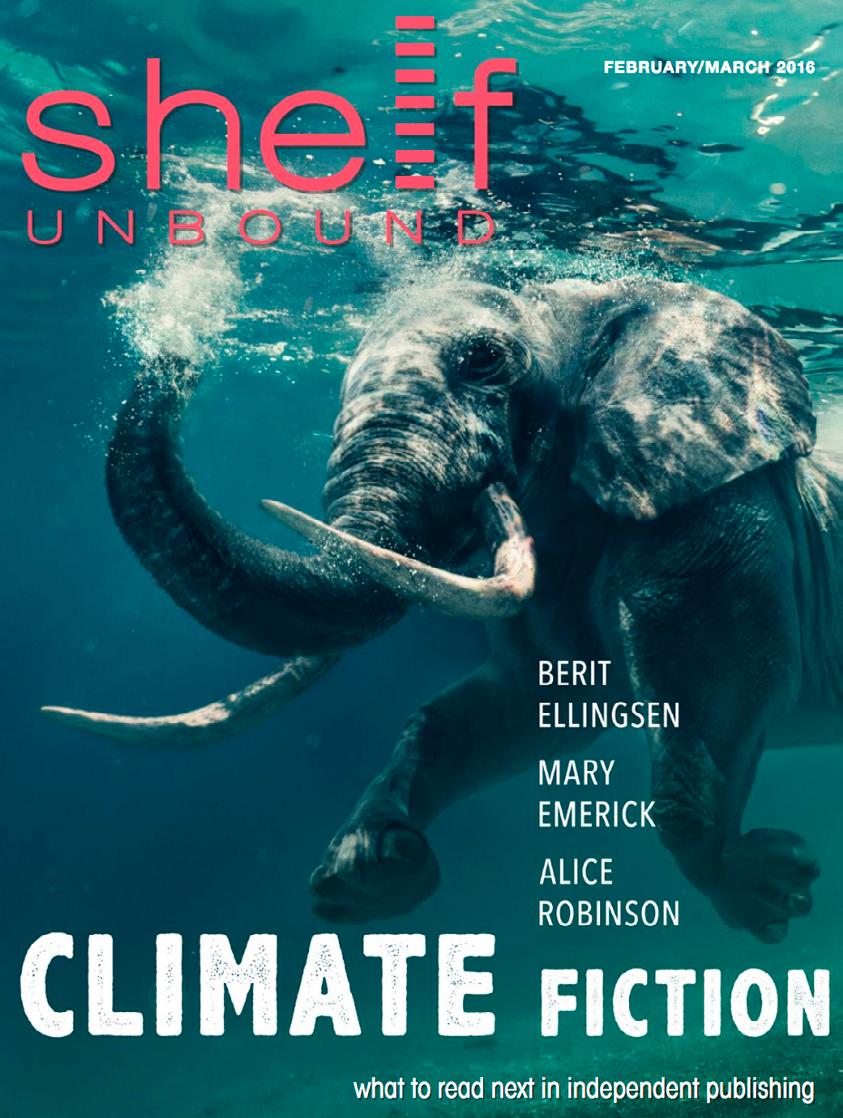
A thrilling tale of political intrigue, love and loss, and the soul-stirring value of friendship.
London, mid-1930s. Fascism is on the rise. Against the backdrop of political upheaval, two friends—Vernon, a mixed-race Ceylonese postgraduate student, and Saul, a wealthy Jewish intellectual and connoisseur of music—meet regularly for tea at a Lyons’ Corner House on Coventry Street. They discuss everything under the sun. Despite their blossoming friendship, however, neither of them is completely frank with the other. They both have dark secrets: Vernon about his political activities; Saul about his wife. As the narrative progresses, and as Vernon’s and Saul’s storylines converge, their secrets slowly come to light to the reader and to each other.
After his father becomes seriously ill in 1936, Vernon takes sabbatical leave from university and, with Saul accompanying him, returns to Ceylon. The personal drama and political intrigue continue from there.
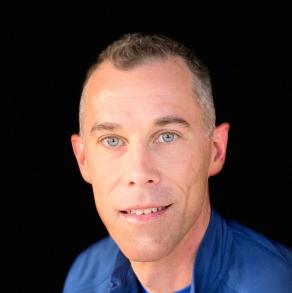
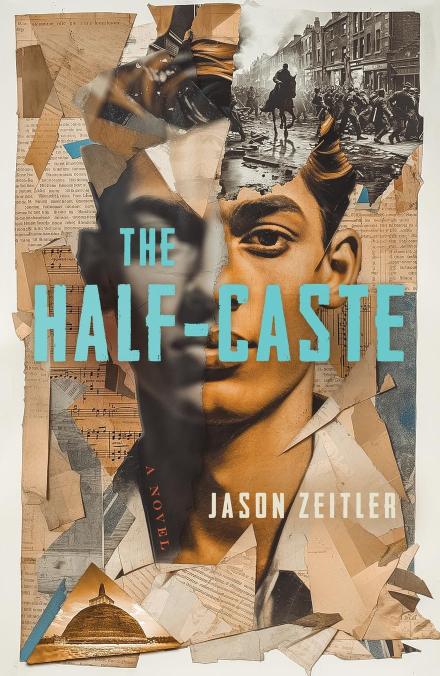
Jason Zeitler is the author of the novella Like Flesh to the Scalpel (Running Wild Press, 2018), and his stories and essays have appeared in the Journal of Experimental Fiction, Midwestern Gothic, Two Thirds North, and elsewhere. He lives in Tucson with his wife and son. His debut novel The HalfCaste was shortlisted for the 2022 JEF Books competition. It also won a silver medal in the Best New Voice category of the 2024 IBPA Benjamin Franklin Awards.
Charley Byrne isn’t really living. At age 29, she hunkers down in her apartment above the bookstore she manages, afraid of a 7-year curse. Then quirky activist Xander Wallace lures her out of social exile with the prospect of friendship and romance. Charley joins Xander’s circle of friends diverse in their heritage, race, gender and sexual orientation. She thrives, even leaving her comfort zone to join protests in a city struggling with social justice ills.
But the new friendships bring back-to-back betrayals that threaten the bookstore—Charley’s haven—and propel her into a dangerous depression. Can her friends save the store? And Charley?
Beautiful and Terrible Things offers a compelling portrait of modern American life in a major city with its vibrant culture and rampant social issues. At once enlightening and entertaining, it reminds us that friendship has the power to validate, destroy, transform, and save lives.

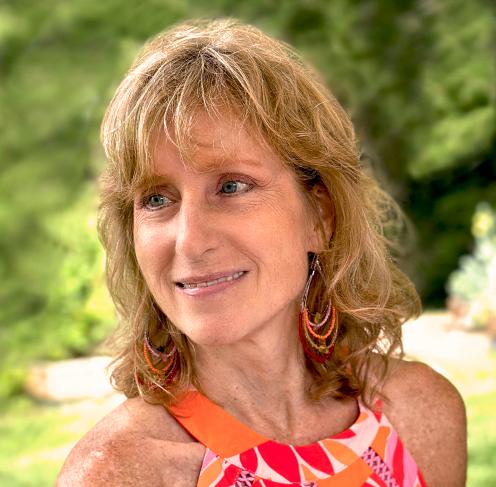
After many years as a business writer, S.M. Stevens found the time to pen her first novel when a pelvis broken in 3 places absolved her from housework and chauffeuring the kids around for several months. The result was her middlegrade novel Shannon's Odyssey, written for adventurous animal-lovers.
A year later, while in treatment for cancer, she wrote the first of the Bit Players series to fill the void of fiction for music and theatre-loving teens. The YA series now has three books, and appeals to all teens not just drama-loving ones.
Jonah Tarver, a troubled Oakland teenager grappling with his parents' troubled marriage, his own mental disorder, and the weight of his best friend's death, embarks on a desperate quest to find meaning in life. On his eighteenth birthday, coinciding with his Senior prom, Jonah, along with his girlfriend Taniesha, his best friend Trevon, and a group of peers, spirals into a night of reckless indulgence in drugs and alcohol in the vibrant city of San Francisco. As tensions escalate and emotions run high, Jonah finds himself thrust into a gripping twelvehour journey through the dark underbelly of San Francisco's nightlife, forever altering his perception of the world. Will Jonah uncover the purpose he so desperately seeks, or will he discover that life, like broken pencils, may have no point?
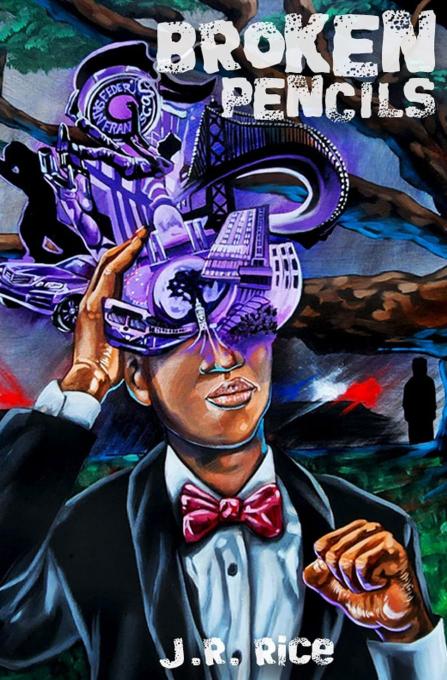
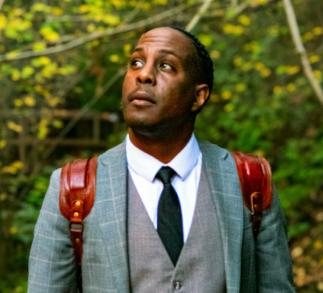
Once upon a time, in the bustling city of Oakland, California, there was a man named J.R Rice. He was a Black man with a passion for writing, teaching, and spoken word artistry. J.R had always been captivated by the power of words and their ability to inspire, motivate and transform lives. As a young man, he knew that he wanted to make a difference in the world through his writing and his ability to connect with people. After receiving his B.A in Creative Writing and an English Education teaching credential from California State University of Long Beach, J.R set out to pursue his dreams. He traveled abroad to Greece, where he had the honor of being mentored by the renowned author, George Crane. It was there that he honed his skills and developed his unique voice, which he would later use to inspire and empower countless others.
Three strong Southern women -- twelveyear-old Len, her mother Cora, and her Aunt Jean -- grapple with love and loss in this poignant tale set on a hardscrabble cattle ranch in a small Texas town. Len yearns to find the father who abandoned her, and after a chance encounter with a country music star who she suspects is him, she embarks on a life-altering journey to find the truth about her past. At the same time, Cora and Jean must deal with another shocking family betrayal that complicates everything. Told in turns by these three remarkable women, Abilene explores the boundaries of love and the transformative power of self-discovery.
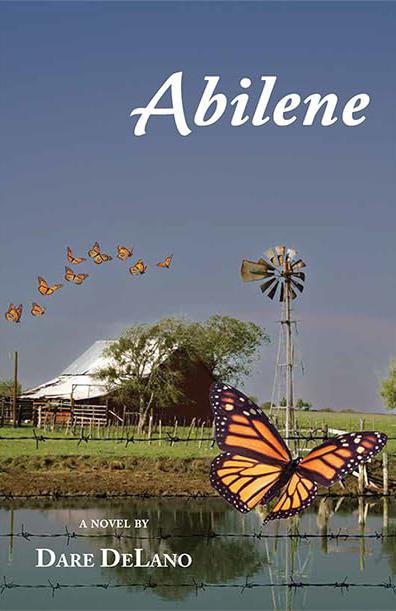
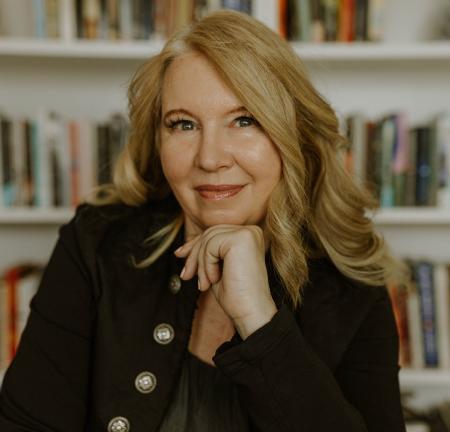
Dare DeLano writes literary fiction for adults and middle grade fiction. Her debut novel, Abilene, was released on November 1, 2023, by Mint Hill Books. Her work has been a finalist for the Faulkner-Wisdom Creative Writing Competition and is represented by Jennifer Thompson of Nordlyset Literary Agency.
Her middle grade novel, Odus and the Long Way Home (The Odyssey), won the San Diego Book Award and Gold Moonbeam Children’s Book Award. Dare holds an MFA in Creative Writing from Fairfield University, with her work featured in the A Year in Ink Anthology and the San Diego Central Library’s Local Author Exhibition.
James Henry Ferguson doesn't belong here. After a highly publicized fall from grace, James attempts to flee from the chaos in his life. He ends up in a community he had never heard of before, one that has been neglected and ignored by everyone in rural Ham, Mississippi. A place of abject poverty, the neighborhood is commonly referred to as "Around the Way."
Within a place forgotten by the rest of the world, politics can be a dangerous game. When a troubling discovery is made, the entire neighborhood is rocked to its core and James is forced to confront his own past in order to help the community have a future. He will have to find the strength to fight for the neighbors he once disregarded and avert a heart-breaking disaster. A self-identified failure is forced to uncover the wisdom of his past in order to recognize that money can't solve every problem. Full of never-ending twists and turns, no one can prepare themselves for the surprises in store. Mr. Jimmy From Around the Way is a story about failure, self-discovery, empowerment, and the possibility of redemption.
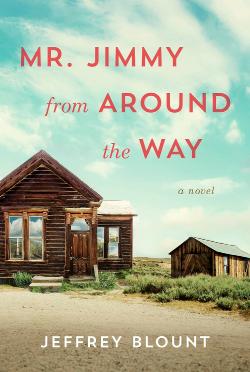

Jeffrey Blount is an award-winning author of four novels, including The Emancipation of Evan Walls, which won the 2020 National Indie Excellence Award for African American fiction.
Alongside his literary achievements, he is an Emmywinning television director and a Virginia Communications Hall of Fame inductee. During his 34-year career at NBC News, he directed iconic programs like Meet The Press and Today, becoming its first African-American director. Blount’s documentary scripts are featured in institutions like the Smithsonian Museum of African American History and Culture.
BY SARAH KLOTH

Just a few years ago, audiobooks were an afterthought—a niche format primarily reserved for bestsellers and a select few classics. Fast forward to today, and the landscape has completely changed. Audiobooks aren’t just another way to read; they’ve become a cultural force, changing how we experience stories. Whether you’re listening on your commute, during a workout, or while cooking dinner, audiobooks have embedded themselves into our daily lives. But can this boom keep up its momentum, or are we reaching the peak?
Audiobooks aren’t just popular—they’re reshaping how we consume literature. Thanks to smartphones, smart speakers, and on-demand streaming services, they’ve gone from a convenience to a necessity for millions of readers. Companies like Amazon, Apple, and Spotify have poured massive investments into audiobooks, signaling that this is more than just a passing trend. And it’s not hard to see why: the ability to multitask while “reading” has made books more accessible than ever.
But what’s really exciting is how audiobooks are changing the types of stories we can experience. Gone are the days when only mainstream bestsellers got the audiobook treatment. Independent and self-published authors are jumping in, breaking barriers, and bringing fresh voices to the space. Platforms like Findaway Voices and ACX have democratized audiobook production, meaning listeners now have access to bold, experimental, and diverse storytelling that might have never reached them in print. This isn’t just growth—it’s a transformation of the literary world.
Of course, no boom lasts forever, and the audiobook industry is facing some growing pains. With more content available than ever, discoverability is a challenge. Subscription models, while great for consumers, often result in smaller payouts for authors and narrators. And with the rise of AI-generated narration, some fear we may lose the rich, human experience that makes audiobooks special.
Yet, despite these challenges, the future looks promising for listeners. More competition means innovation, and companies are constantly finding new ways to enhance the listening experience. AI narration might have its place, but the demand for high-quality, emotionally engaging storytelling is stronger than ever. And for the first time, indie authors have a real shot at reaching listeners who might never have picked up their books in print.
The next phase of audiobooks isn’t just about more books—it’s about better books. We’re already seeing audiobooks that go beyond narration, incorporating music, sound effects, and full-cast performances that turn books into cinematic experiences. Interactive audiobooks are emerging, allowing listeners to choose story paths or engage with content in ways we’ve never seen before. Imagine an audiobook that changes based on your mood or one that integrates seamlessly with virtual reality. The possibilities are
endless.
So, will the audiobook boom continue? The answer isn’t just yes—it’s that we’re only scratching the surface. Audiobooks are no longer just an alternative to reading; they’re redefining what reading even means. And for listeners, that’s something to get excited about.

NEW TO SHELF UNBOUND!
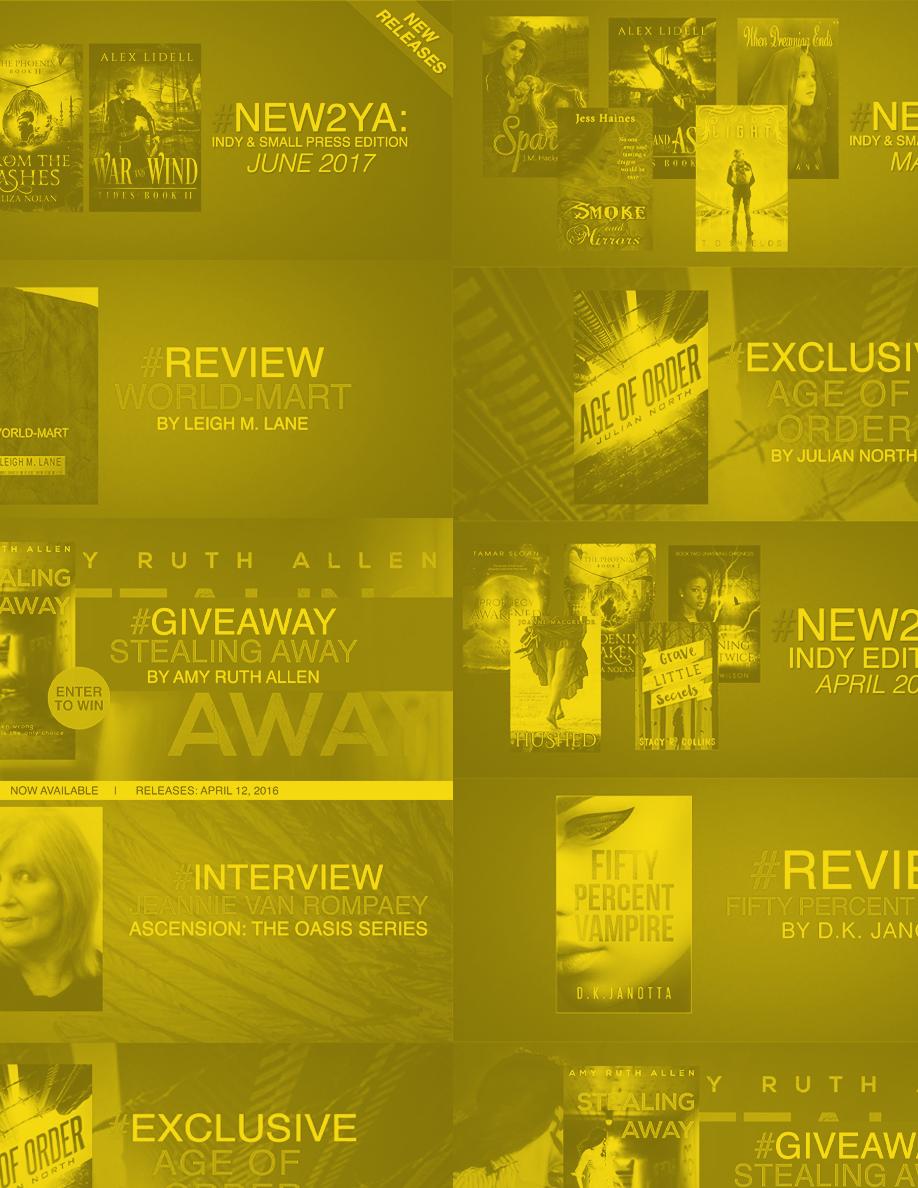
Shelf Media Group's digital young adult community designed to connect readers with YA authors and books.
BY ESTHER PIA CORDOVA
A riveting, emotionally charged dystopian mustread.
In Convergence, Esther Pia Cordova delivers a gripping YA dystopian novel that explores love, consciousness, and the ethical dilemmas of artificial intelligence. Set in a futuristic world where technology and humanity collide, this novel weaves high-stakes action with deeply personal struggles.
The story follows Maya, a determined young woman who leaves her isolated village in search of a cure for her sister. Her journey takes her to a technologically advanced city, where she uncovers a chilling plot that threatens the future of humanity. Along the way, she meets Ethan, a mysterious figure whose hidden truths could change everything she believes. As their relationship deepens, Maya must confront betrayal, difficult choices, and the blurred lines between human and machine.
Cordova crafts a richly immersive world filled with morally complex characters and a thoughtprovoking exploration of what it means to be human. The pacing is relentless, balancing thrilling action sequences with quiet moments of introspection. The romance between Maya and Ethan is both tender and fraught with tension, adding emotional depth to the novel’s central themes.
For readers who enjoy dystopian fiction with a strong female protagonist, ethical quandaries, and a touch of romance, Convergence is a must-read. It’s an engaging, fast-paced adventure that lingers in the mind long after the final page.

Young adult fiction continues to become one of the most popular genres – mostly for adults. Join us each issue to find your next YA read.
BY ESTHER PIA CORDOVA
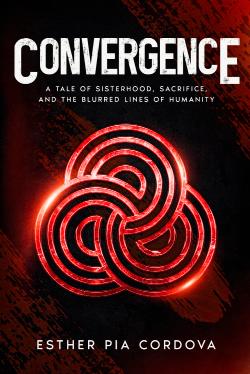
RECOMMENDED READ |
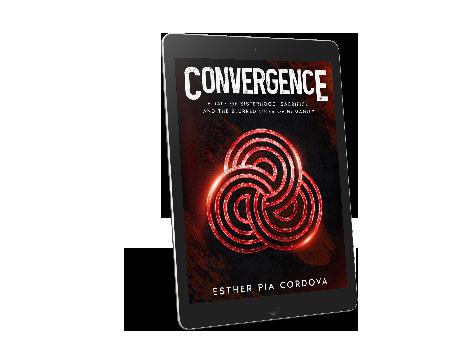
RECOMMENDED AS YOUR NEXT YA READ
Convergence is The Hunger Games meets Ex Machina—a gripping YA dystopian novel that dives deep into love, consciousness, and the ethical dilemmas of AI. When Maya leaves her secluded village to save her sister's life in a futuristic city, she uncovers a chilling plot that threatens the very fabric of humanity. If you hate predictable villains and love stories with jaw-dropping twists, morally complex characters, and thoughtprovoking questions, this book will captivate you.
As one reader said, "I rarely get so intrigued by something that I end up zoning out for a few moments to have a mental discussion over the morality of those implications."
Ready to question what it truly means to be human? Convergence is your next unputdownable read.
+ BOOK
“Best
- URBAN EPICS, BLOGGER AWARDS
“Top 100 Book Review Blogs For Book Readers and Authors”
- FEEDSPOT
“The awesome Girl+Book YA book review blog.....I smiled to see Blue Karma recommended for "tom-boys, tree climbers, adventure seekers, and backyard-campers" because I have answered (or still do) to all of these descriptions....The Girl+Book blog continues to make my day.”
- J.K. ULLRICH, AUTHOR OF BLUE KARMA
“I Just Read Girl Plus
Book’s Review Of Revelation, And It Made My Night!”
- ELLERY KANE, AUTHOR OF LEGACY SERIES

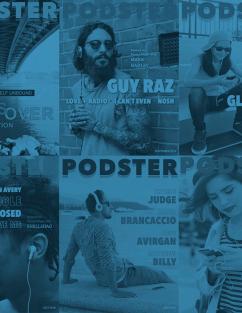
Shelf Media Group's digital magazine about podcasts and podcasters.
WITH JOE SKELLEY


About the Podcast
We’re not just book nerds, we’re Professional Book Nerds® (PBN) who work at OverDrive, the industry-leader for ebooks and audiobooks through your local library and school. With over 2 million downloads, readers and librarians turn to the PBN team for weekly expert book recommendations, author interviews and all things books.
READ THE INTERVIEW ON THE NEXT PAGE.
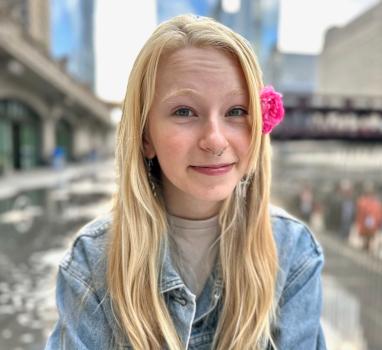
BY CORINNA KLOTH
Podster is a column for podcast listeners and serves as a curator for the best of known and unknown podcasts.
PROFESSIONAL BOOK NERDS WITH JOE SKELLEY
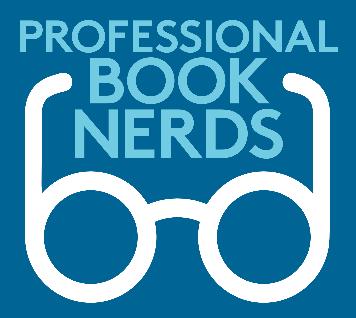
JS: I’m a Marketing & Events Specialist at OverDrive, the company behind the popular library app, Libby! My role involves planning and organizing literary events across the United States and Canada, helping people discover the incredible resources available through their local libraries. I have been part of the Professional Book Nerds podcast since 2022 and currently serve as its host and producer.
Books have always been a central part of my life, and I have a deep passion for libraries and the essential role they play in communities. I love reading horror, thrillers, magical realism, and a wide range of YA books. When I’m not working, you’ll probably find me listening to audiobooks or catching up on podcasts. I also enjoy tackling DIY projects, finding creative outlets outside of work, and, most importantly, spending time with my Boston Terrier, Roscoe!
JS: TThe Professional Book Nerds podcast originally launched in 2015 as a way to share book recommendations, introduce authors to new readers, and celebrate a love of books in all forms. Over the years, it has grown
into a trusted space for readers looking for their next favorite book, offering engaging conversations with authors, themed recommendation episodes, and behind-the-scenes publishing insights.
I officially joined the podcast team in 2022, and it has been such an incredible experience to contribute to its legacy. I love sharing my reading habits, connecting with authors I admire, and helping build a community of passionate book lovers. There’s something really special about creating a space where readers can come together, get inspired, and discover books that resonate with them.
JS: At its heart, the Professional Book Nerds podcast has always been a cozy and welcoming space for book lovers of all kinds. Over the years, we’ve had the privilege of featuring countless authors, providing thoughtful book recommendations, and celebrating reading in all its forms.
Now, we’re entering an exciting new chapter! We’re rebranding with a fresh new look and feel, as well as an updated format that allows us to explore books and the reading experience in even greater depth. While
I can’t share all the details just yet, I can promise that this podcast will continue to be for everyone—whether you’re constantly juggling multiple books or just starting to embrace recreational reading. No matter where you are on your reading journey, you’re welcome here!
JS: The most satisfying part is seeing the conversations that come out of it— whether it’s during a recording when a spark of inspiration hits, or after an episode airs and listeners share their thoughts and recommendations in the comments or via email. It’s incredible to see how books bring people together!
If I’m honest, the biggest challenge is finding a time that works for everyone to record—I think we can all relate to that! And then also narrowing down my book recommendations… there are just too many good ones!
JS: Oh my gosh, I’ve been so lucky to chat with so many of my heroes and favorite authors—I can’t pick just one! Some of my standout moments include
interviews with Drew Afualo, Chuck Palahniuk, Em & Christine from And That’s Why We Drink podcast, Daniel Handler, Chuck Tingle, TJ Klune & Daniel Henning… the list goes on!
Outside of interviews, some of my favorite episodes were the Guess That games—one episode we rewrote book descriptions as gossip and another wrote descriptions as if they were beach reads. They were absolute chaos in the best way!
JS: This year, we’re shifting to a seasonal format! During the off-season, we’ll release 1-3 episodes per month on Thursdays. Then in June, we’ll officially launch our first full season—complete with a new name and a refreshed format. I can’t wait to share what’s coming next!
JS: You can find Professional Book Nerds wherever you listen to podcasts—Apple Podcasts, Spotify, and more. And new for 2025, we’re adding video episodes on the Libby App YouTube channel!

by Chrissy Brown | C.A.A.B Publishing
Can you make money as a writer?
Of course, you can. But the real question is: How much? In an age of AI, the internet, and bookstores closing, can writing still be a viable career?
Writing can absolutely be a viable career, but only if you treat it like one.
C.A.A.B PUBLISHING
CAAB Publishing Ltd is a traditional, small, indie company helping unknown authors have a voice and inspiring new writers to take that first step into the world of publishing.
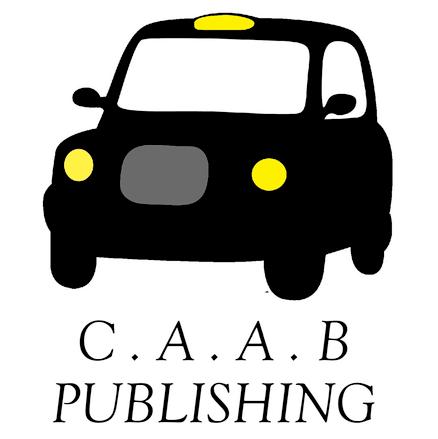
If you believe it’s possible to make a living doing what you love, you’ll be more willing to make sacrifices, put in the hard work, and invest in your future as a writer. If you don’t think it’s possible, then you’ll bumble along until you decide to get a ‘real’ job. You’ll listen to all those people who say, “Everyone knows writers don’t make any money, just like painters are starving artists or teenagers never listen, and all rich people are evil.” These are cultural stereotypes. While not true for all, or even most, they get repeated until we believe them.
If we approached studying medicine the same way, we’d have cultural stereotypes about the “starving doctor” instead of the “starving artist.”
But we don’t treat medicine or its study like a hobby. Those who study medicine spend every waking moment working toward their goal. They study hard for many years, invest time and money into their career, and no one would tell a medical student a few years in, “You’ve been talking about being a doctor for years, but it’s just not happening. This is a fantasy. You need to grow up and pursue something more practical.” But people will
gladly say that to an author. Believing in yourself is the biggest hurdle. Writers often say they feel like “frauds” or “imposters,” that they’re not “real” writers. But you never hear doctors, lawyers, or teachers say that. They just do their job. A writer needs to do the same.
But can writers really make money?
Of course, they can. Again, it’s about effort and belief. If you write a book and then sit back waiting for the “book fairy” to bring you cash and readers, you’re indulging in fantasy. Writing is hard work. It’s promoting your books from one event to another, sending countless
When young Grin is cut down to size by an experiment gone wrong, he finds himself in a strange new world full of danger and odd characters. Grin must find a way to regain his full height and a way back home.
emails to podcasters, radio personalities, reporters, or bookshop owners, hoping they’ll take an interest in your work. It’s seizing every opportunity to promote yourself and your writing.
It’s writing articles for magazines, short stories for anthologies, and politely asking people to give your work a chance.
It’s about investing in your talent, not letting others bring you down, and aiming for the day when you can write “AUTHOR” on your tax forms without feeling like a fraud.
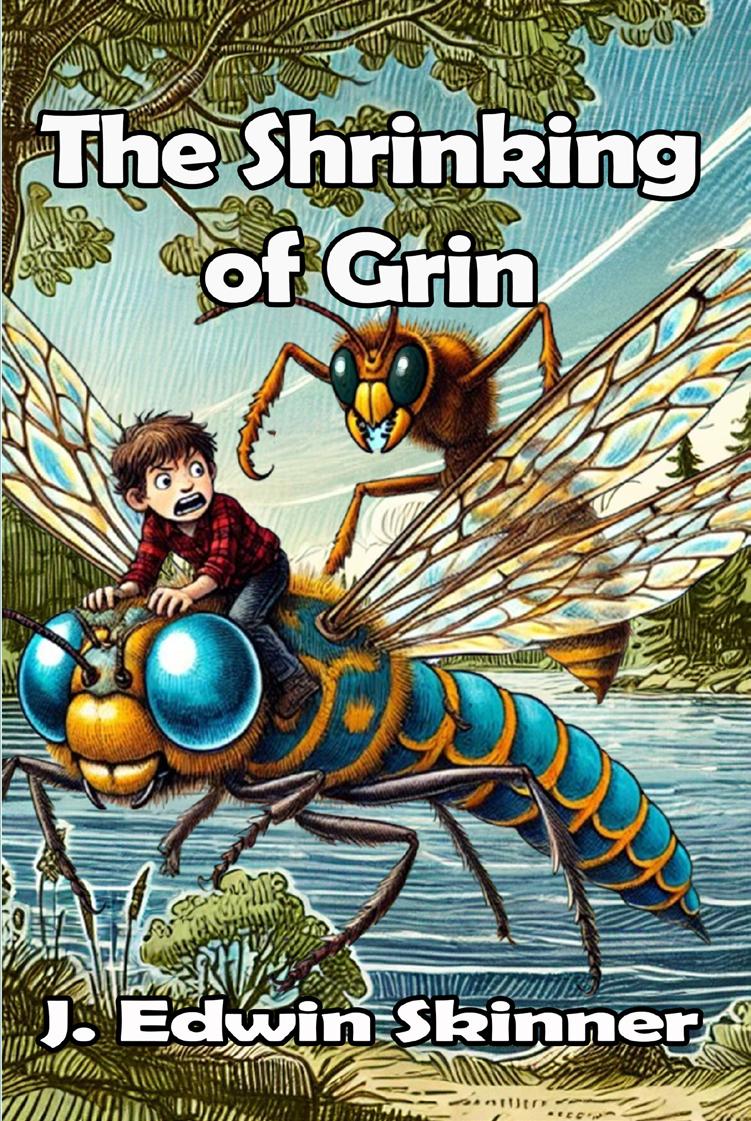


TELL US A LITTLE ABOUT BOUT YOURSELF AND BOOK CLUB BAR.
NAT ESTEN: My wife and co-owner, Erin Neary, and I have lived in New York City for many years and have always been passionate about both nightlife and literature. I grew up in Connecticut, while Erin is originally from Wisconsin, but New York has been our shared home for a long time. Interestingly, we actually met in a book club, which is what inspired the name of our store. Our love for books and social spaces naturally led us to the idea of creating a bookstore that also serves as a gathering place. When we’re not running Book Club Bar, we love to explore the city, finding inspiration in its energy, history, and vibrant cultural scene.
NE: Erin and I have lived in the East Village for a long time, and we always dreamed of creating a community space that reflected
our interests. We wanted to blend the best elements of an indie bookstore with the warmth and social nature of a bar. While researching, we visited some incredible bookstores across the country—some of which also had bars or cafes attached. Seeing their success reassured us that this concept could work. We also felt that the East Village, with its literary history and diverse, creative community, was the perfect place to bring our vision to life. We wanted to create a space where people could browse books, enjoy a drink, and have meaningful conversations all in one place.
NE: While we primarily sell literary fiction, we’ve certainly noticed a trend toward genre fiction: romance, fantasy, cozy mystery, and the super popular “romantasy.” People are definitely looking for an escape in books!
NE: We have a full-service bar that specializes in literary-themed cocktails (i.e. the Murder on the Orient Espresso Martini, the Cider House Mule, In Cold Bloody Mary, etc.) We also feature a broad range of international wines, flavorful craft beers, and locallyroasted coffee.
NE: We are actually in the process of building out our second location in the Bushwick
neighborhood of Brooklyn. We have spent a lot of time in that area and we believe that it is an excellent fit for our concept. We are hoping to open in time for summer of 2025.
NE: We are seeing first-hand an embrace of analog, tactile experiences as many people have reached a breaking point with digital life. All of us are forced to live more and more of our lives on screens, so many are finding peace and enjoyment in places where they can buy something tangible and make a real human connection. As long as indie bookstores remain welcoming community spaces, there will always be people seeking them out.
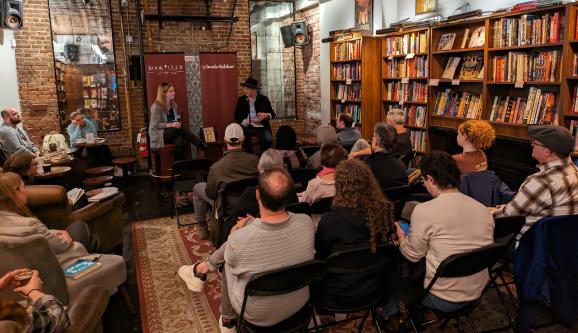

Self-Published & Small Press Book Reviews
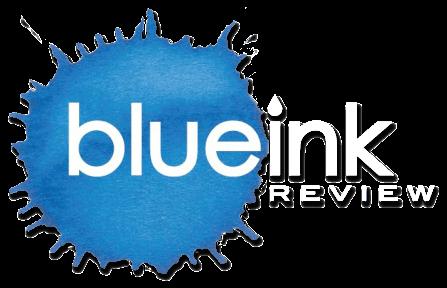
BY CHRISSY BOYLEN AND HEATHER H. KIRBY, LGSW
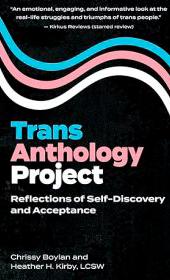
PUBLISHER: KIRBY CREATIVE CLINICAL SOLUTIONS PAGES: 310
ISBN: 9798218489502
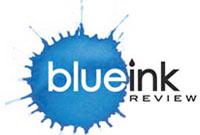
Trans Anthology Project is a deeply moving and thoughtfully curated collection that sheds light on the lived experiences of transgender individuals and their families. Designed to foster empathy, understanding, and support, the book blends educational content with firsthand narratives, bridging generational and ideological gaps to create a powerful resource for trans individuals, parents, and allies.
Each themed section begins with poetry by Rula Sinara, setting the tone for discussions on gender identity, dysphoria, and transition. The anthology pairs foundational explanations with personal accounts, while expert perspectives, survey responses, and practical resources provide a well-rounded look at the triumphs and challenges of gender-diverse individuals.
Among the standout personal narratives is “Choosing Myself,” which offers a raw, introspective look at self-discovery and transition, capturing the fear and resistance that comes with living authentically. “Once when I was sixteen,” writes the author, “I threw my arms out in frustration as I argued with my mom. She gave me this sideways glance, her face painted with disgust, and said ‘Stop gesturing like a man’…Gesture like a man, how the hell else am I supposed to gesture?” Meanwhile, “It Won’t Happen Overnight” delivers a powerful poetic call to action, using rhythmic repetition to emphasize the resilience and unity needed in the fight for trans rights.
The strength of the anthology lies in its authenticity and range of perspectives. The personal essays are heartfelt, immersing readers in the realities of coming out, transitioning, and facing societal resistance. While the breadth of voices can feel overwhelming, the structured format ensures accessibility.
A compassionate and affirming collection, Trans Anthology Project is essential reading for anyone seeking to better understand the transgender experience. With its blend of personal testimony, expert insight, and practical guidance, it serves as both a source of comfort and an eye-opening resource for trans individuals and those looking to support them.
BY EHAB ELGAMMAL
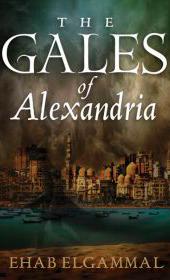
PUBLISHER: ESCAPE
EDITIONS
PAGES: 352

In this compelling suspense story, a nuclear terrorist threat looms as the CIA scrambles to figure out a target and a time.
As the novel begins, history professor Omar El-Mohammedi struggles to make himself read his dead son Nasser’s journal. It’s the only viable clue the CIA has to the threat, as the journal, which seems coded, was found in the hideout of a suspected terrorist group to which Nasser belonged. The only one capable of decoding the journal is Omar, who is sorely grieving his loss.
As Omar relents and delves deep into the journal, he must also confront his memories and the past. Meanwhile, Nasser’s family and friends grieve while trying to understand the mystery of his life and why he became pivotal in an attack that would rival 9/11 on the global stage.
The book then turns from Omar’s hectic attempts at decoding the journal to unspool the multi-faceted Nasser. Between the journal and Omar’s memories, the narrative relates key moments of Nasser’s life leading up to his death. His journal paints a painful picture of a lost young man striving to make his life mean something, at any cost.
Nasser’s journal depicts global history but remains rooted in the very human dilemmas of finding meaning and staying true to one’s beliefs. The author writes deftly, floating through depictions of horror and emotional connection alike with poetic grace. For example, Omar reflects that, through his journal, his son “now lurked only behind a tapestry of words, camouflaged and convoluted by design, to conceal what intelligence officials were convinced was a road map to unspeakable horror.” Omar’s race to stop the attack is more about understanding his son than protecting innocent lives, though he strives for both.
Ultimately, the book is a fascinating character study of Nasser, a man broken by loss and influenced by faith. Whether he’s a terrorist or hero is intriguingly hidden in the lyrical musings of his journal.
BY STEPHEN EVANS
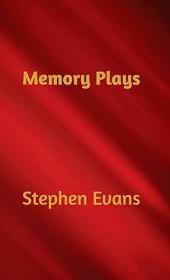
PUBLISHER: TIME BEING MEDIA
PAGES: 340

Memory Plays, by Stephen Evans, is a collection of four exquisitely written stories, each a profound meditation on the interplay between love and memory.
In “At the Still Point,” a pair of aging exes are re-acquainted through witty banter, laden with the subtext of what was and what could be, under the watchful eye of a broken train station clock.
“Kingdom By the Sea” features a punctilious antiques dealer enlisted by a divine being/waitress to excavate old memories in an effort to assist a dearly departed friend.
“Paradox” explores the unlikely romance between an ordinary teen and his brilliant-but troubled classmate, imagined partly through the lens of Arthurian legend.
“The Smiles of Cheshire, Mass” introduces a young doctor assessing whether his stubborn, stoic grandfather’s purported psychosis may have a more innocent, if heartbreaking, explanation.
Evans has a gift for dialogue, sculpting credible characters from their language and forging fully realized relationships through conversation. His writing is simultaneously swooningly romantic, cautiously optimistic, unselfconsciously funny, and refreshingly heartwarming. It’s genuinely sweet but never cloying. His characters are witty, vulnerable, resilient, and relatable, and the plots are elegantly uncomplicated.
Some stories have had previous lives elsewhere. “The Smiles of Cheshire, Mass” has appeared before, but in much shorter form, a comparison which favors the sweep and depth of the more novella-esque version featured in Memory Plays. And although some stories might be repeated from elsewhere, they feel most at home next to each other in this collection, intimately linked as they are by tone and subject.
Evans has proven capable of producing unforgettable work and has gifted us with many deeply affecting stories. Memory Plays feels like a collection of his best, the most distilled and elemental presentation of his subtle and remarkable talents. It’s a fine starting point for readers new to his work, and required reading for anyone already acquainted with his impressive previous releases.
BY CRYSTAL CHARLOTTE (CC) LANE
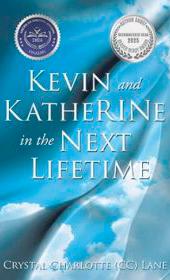
PUBLISHER: TIME BEING MEDIA
PAGES: 340

This fusion of romance and erotic fiction chronicles the relationship between two soulmates who are destined to be apart—at least in this lifetime.
When Kevin, a commercial developer, first fatefully met Katherine, a young contract lawyer, in an elevator, he fell hopelessly in love with the “caramel-colored girl.” Katherine— who Kevin came to nickname “Rin”—was equally besotted by the handsome “white boy.” But the situation wasn’t right: Rin was about to be engaged, and both Rin and Kevin came from racist families who (they assumed) wouldn’t be receptive to their loved ones being in an interracial relationship.
Even though both knew their relationship—filled with incendiary sexual encounters and gloriously romantic moments—was morally wrong, they continued their covert affair for decades. Both eventually married other people, had children, and raised families—all while maintaining their secret relationship.
Now, in their 50s, Rin wants to meet Kevin one last time in
Lanai for a 12-day vacation. After the vacation, she has decided to finally end their relationship— an attempt to atone for their sins in the eyes of God.
The obvious selling point here is the steamy sex and deep connection between the two, but also noteworthy is the larger dynamic between the main characters: Both are embracing their sexuality well into their 50s, both struggling with the guilt of cheating on their spouses and potentially destroying their families. Kevin’s jealousy is explosive and immature; Rin’s failure to fully love her husband has essentially wasted decades of his life. These flaws, however, make them dimensional and authentic.
The theme of redemption and finding salvation through God is only superficially explored and rings a little hollow, especially considering the lack of focus on those whose lives could be devastated because of their cheating. Additionally, the dialogue can be stilted at times.
Still, with its layered characters utterly devoted to each other, this story about eternal love in an ephemeral world offers many rewards.
BY JERRY LUCAS
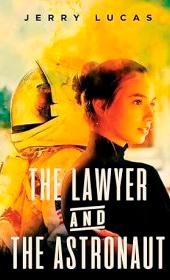
PUBLISHER: JERRY LUCAS PUBLISHING
PAGES: 270

In Jerry Lucas’s science fiction novel, The Lawyer and the Astronaut, a man leaves on a thrilling interplanetary mission while his wife is cryogenically frozen as she awaits his return.
It’s 2446 and Josh, a creative technologist, finds himself unemployed again after being fired from his last job. Several days later, Josh’s former co-worker, Laura, is also fired. Laura asks Josh to lunch, where they discuss their respective situations, and soon they fall in love. Meanwhile, Josh is selected to participate in an interplanetary investigative mission that could last thousands of years. Laura agrees to be frozen throughout the time Josh is gone, hoping they will be reconnected if he ever returns to Earth.
The story brims with captivating scenes set on the planet that Josh is sent to probe. From fighting crocodile people from a different planet to protect the alien planet’s indigenous species to getting attacked by a giant squid, the novel follows Josh’s exhilarating adventures across space. Meanwhile, Laura and Josh’s love story is naturally woven into the plot and adds an emotional layer to the overall story.
The narrative’s pace, however, is bogged down by in-depth scientific information concerning Josh’s experiences. For example, when Josh and his helpful robot, Missy, encounter dinosaurs on the alien planet, the story includes a lengthy explanation regarding dinosaur extinction on Earth. Other details about cryogenics, time dilation, travel time, navigation, and temperature levels appear throughout.
Additionally, descriptions of Earth in the future fall short. At one point in the plot, the storyline jumps more than a millennium ahead. Nonetheless, many details about Earth are similar to the current world. The story also tends to fall into common science fiction tropes such as the disappearance of national governments and the establishment of a common one-world government.
Despite such issues, readers might appreciate The Lawyer and the Astronaut for its welldeveloped romance subplot and exciting events in outer space.
BY L.P. HOLMES

PUBLISHER: INDEPENDENT
PAGES: 362
In Somebody’s Sister, L.P. Holmes crafts a harrowing, emotionally gripping novel that plunges deep into the shadows of human trafficking, exploitation, and survival. Through interwoven narratives spanning multiple characters and locations, Holmes exposes the raw vulnerability of those ensnared by predatory systems while maintaining an urgent pace that keeps readers riveted from beginning to end.
The story follows Lilly and Zuzanna, two young women from vastly different backgrounds whose paths ultimately converge in chilling ways. Lilly, a teenager from suburban England, is lured into a dangerous world by a charismatic older boyfriend. Holmes deftly captures her gradual descent from teenage rebellion to entrapment, her narrative a gutwrenching testament to the ease with which vulnerability is preyed upon. Meanwhile, in Amsterdam, Zuzanna struggles to support her family, unaware that the injustices she faces pale in comparison to the horrors soon to come. Their stories, though distinct, share a painful common thread—one that Holmes
weaves together with masterful precision.
Holmes’ writing is both unflinching and deeply compassionate. The novel does not shy away from the brutal realities of exploitation, yet it also illuminates the resilience and courage of its protagonists. The dialogue is sharp, the pacing relentless, and the world-building starkly immersive. Through alternating perspectives, the novel reveals not only the suffering of its characters but also the systemic failures that allow such suffering to persist.
Somebody’s Sister is more than just a thriller—it is a social commentary, a call for awareness, and a profoundly moving exploration of lost innocence. Holmes challenges readers to confront the realities of trafficking and to question how such atrocities continue in plain sight. This is a novel that lingers long after the final page, a necessary and haunting read that demands attention.
For those who appreciate narratives that balance tension with emotional depth, Somebody’s Sister is an unmissable book. Holmes has crafted a compelling and deeply unsettling work that refuses to be ignored.
BY PIP ADAM
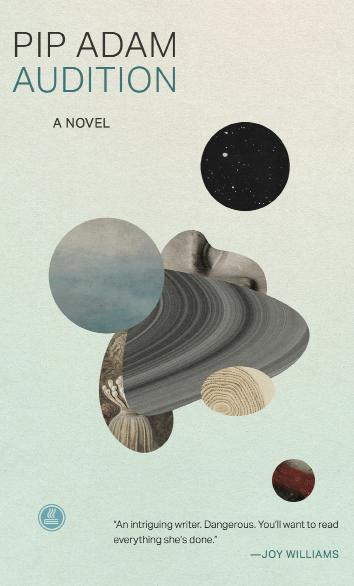
PUBLISHER:
GIRAMONDO
PAGES: 224
In Audition, Pip Adam delivers a genre-defying, mind-bending narrative that oscillates between social realism and speculative fiction, ultimately constructing a meditation on space, power, and confinement. It is a novel that refuses easy categorization, blending science fiction’s limitless possibilities with an incisive critique of carceral systems and systemic oppression. As with Adam’s previous works, her prose is both disorienting and hypnotic, designed to unsettle even as it draws readers deeper into her world.
The novel unfolds aboard the spaceship Audition, where three giants—Alba, Stanley, and Drew—find themselves physically constrained yet intellectually unmoored. Their predicament is as strange as it is allegorical: if they stop talking, they grow, their bodies expanding beyond the ship’s confines. Speech becomes both survival and rebellion, a mechanism for propulsion and a means of remembering the trauma they endured on Earth. The novel’s conceit is at once surreal and devastatingly real, mirroring the way power structures dictate whose voices matter, whose existence is deemed too large, too much, too inconvenient.
Adam’s signature experimentation with form is on full display here. The dialogue, often stripped of conventional markers, tumbles forward in waves, mirroring the urgency of its speakers. This relentless propulsion captures the inescapability of their situation—both their literal entrapment in the ship and the broader metaphor of marginalized bodies forced into confinement. The novel plays with the elasticity of time, looping back on itself, echoing memories, and blurring the line between past and present.
More than a narrative about survival in space, Audition interrogates the nature of justice and the mechanisms of control. What happens when the people deemed too large for society are cast away? What does it mean to take up space—physically, politically, ideologically? Adam doesn’t provide easy answers, but she does demand that we ask harder questions.
For readers who relish novels that challenge the very architecture of storytelling, Audition is an exhilarating, if at times claustrophobic, read. It is a book that requires full immersion, much like the giants’ predicament—it asks you to stay engaged, to listen, to keep talking. And in doing so, it ensures that neither its characters nor its readers remain silent in the face of injustice .
BY SARAH BRANSON

PUBLISHER: SOONER STARTED PRESS PAGES: 260
Sarah Branson delivers a pulse-pounding, character-driven adventure in North Country: A Kat Wallace Adventure, a speculative fiction novel that masterfully blends action, intrigue, and the raw power of female resilience. Set in 2372, in a world still clawing its way back from disaster, Branson introduces us to four women—each carrying secrets, each chasing something greater than survival.
Master Commander Kat Wallace, a battle-worn warrior searching for peace, leads this compelling cast alongside Carisa Morton, whose fragile body pushes her toward one last taste of adventure. Sergeant Flossie Porter hides behind a false identity, her loyalty tested at every turn, while Master Sergeant Diamond Miata is as sharp and dangerous as the world she seeks to control—until she finds herself vulnerable in ways she never expected.
Branson’s writing is as unflinching as her characters, propelling readers through a brutal, unforgiving landscape where power is both a weapon and a currency. The stakes are high, the tension relentless, and yet, beneath the action, there is an undeniable emotional depth—an exploration of redemption, identity, and the cost of ambition.
What sets North Country apart is its ability to balance explosive action sequences with nuanced, deeply human storytelling. Branson doesn’t just craft thrilling set pieces—she builds a world where every choice has weight, every betrayal stings, and every victory is hard-earned. The novel’s futuristic setting is richly detailed, immersing readers in a society teetering between chaos and order, where survival often depends on sheer willpower and strategic cunning.
For readers who crave high-stakes speculative fiction with strong female protagonists and a gripping, cinematic feel, North Country delivers in every way. Branson proves once again that she’s a force to be reckoned with in the genre, offering a story that is as thought-provoking as it is exhilarating. This is a book that lingers long after the final page, demanding to be discussed, dissected, and—above all—experienced.
BY JENNIFER LANG
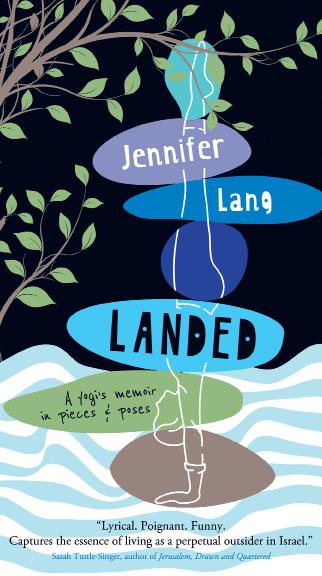
PUBLISHER:
VINE LEAVES PRESS
PAGES: 308
Landed: A Yogi’s Memoir in Pieces and Poses by Jennifer Lang is a deeply introspective and beautifully crafted followup to her debut memoir, Places We Left Behind: A Memoirin-Miniature. While her first book explored the search for home within the complexities of marriage, Landed shifts the focus inward, chronicling a late-in-life coming-of-age that is both deeply personal and universally resonant. Lang’s storytelling is tender yet unflinching, inviting readers into the raw and often turbulent process of self-discovery.
After relocating to Israel from the United States, Lang grapples with a profound sense of displacement. She struggles to reconcile her surroundings with the version of herself she once knew, to accept the depth of her Orthodox husband’s religious observance, and to prepare for the inevitable departure of her children from the nest. As her external world shifts, she turns to yoga—a practice that serves as both anchor and mirror, offering her a means of grounding herself while simultaneously reflecting the internal struggles she faces.
What sets Landed apart is its innovative structure. Organized into seven sections corresponding to the seven chakras, the memoir toggles between past and present, weaving together personal anecdotes and reflections with the grounding presence of yoga poses. This interplay between movement and memory creates a reading experience that is both fluid and deeply meditative, mirroring Lang’s own journey of self-exploration. The book is also a striking portrayal of the layered experiences of Jewish women, showcasing the unique tensions between tradition, modernity, and self-actualization.
Jennifer Lang is a gifted memoirist, one who possesses the rare ability to make the deeply personal feel profoundly universal. In Landed, she delivers a memoir that is not only engaging and informative but also deeply moving. Authenticity shines through every page, making this a book that will resonate with anyone who has ever questioned where they belong or how to find peace in the midst of change.
BY DUR E AZIZ AMNA
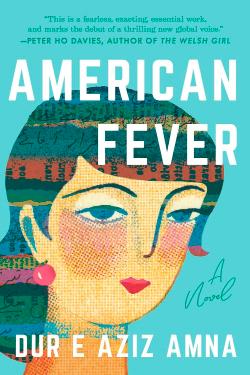
PUBLISHER: ARCADE PAGES: 288
A bold reimagining of the immigrant novel—unsentimental, razor-sharp, and utterly unforgettable.
American Fever by Dur e Aziz Amna is a masterful, unsentimental coming-of-age novel that takes the immigrant narrative and flips it on its head. Through the sharp, deeply intelligent voice of sixteen-year-old Hira, Amna delivers a searing exploration of identity, displacement, and the myth of the American dream.
Hira, a Pakistani exchange student placed in a small town in Oregon, is neither wide-eyed nor eager to assimilate. She arrives in America with a quiet skepticism, observing the contradictions of her host country with a wit that is at once scathing and deeply vulnerable. She experiences first love, loneliness, and the insidious weight of racism and Islamophobia—not in dramatic, violent bursts, but in the casual, everyday microaggressions that mark her as an outsider. Yet, American Fever is not a story of assimilation or discovery; it is a novel about resistance—Hira’s resistance to America’s expectations, to Pakistan’s rigid cultural norms, and
even to the narrative that exchange students are supposed to emerge changed and grateful.
Amna’s prose is razor-sharp, laced with humor and melancholy in equal measure. Every page hums with insight, from Hira’s observations about well-meaning but clueless Americans to her nostalgia for a home that, in its own way, constrains her just as much. The novel’s central metaphor—illness, both literal and figurative—adds another layer of complexity. Hira’s tuberculosis becomes a symbol for contamination, for the fear of the foreign, for the ways America simultaneously welcomes and rejects those it deems “other.”
What makes American Fever truly remarkable is its refusal to offer easy resolutions. Hira does not become more “American,” nor does she return to Pakistan with a newfound reverence for home. She remains suspended between worlds, an insider to neither, and therein lies the novel’s brilliance. Amna has given us a protagonist who is unapologetically herself—fierce, intelligent, difficult, and utterly unforgettable.
Verdict: Bold, unflinching, and fiercely intelligent, American Fever is an immigrant novel that refuses to play by the rules. Dur e Aziz Amna is a force, and this debut is a must-read.
BY JENN BOUCHARD

PUBLISHER:
BLACK ROSE WRITING
Considering Us by Jenn Bouchard is a second-chance romance that will captivate readers with its heartwarming story, engaging characters, and delightful New England setting. A follow-up to Bouchard’s debut, First Course, this novel takes a different approach while still incorporating her signature culinary flair—this time with a tempting focus on cookies. Devon Paige, a talented private chef, makes a costly mistake when she has a brief affair with a client’s husband, leading to her sudden unemployment. Determined to rebuild her life, she lands a job as head cook at a boarding school, only to discover that an old flame, Kyle, is now a teacher there. What was once a fleeting onenight stand fifteen years ago suddenly has the potential to become something more. But before Devon can embrace the possibility of love, she must confront her past choices and determine what she truly wants for her future.
The romance takes center stage as Devon navigates her rekindled connection with Kyle, all while a charming
paramedic named Heath enters the picture, adding an extra layer of tension and possibility. However, Considering Us is much more than just a love story—it’s a novel rich with character depth, humor, and themes of belonging, forgiveness, and personal growth. Bouchard excels at crafting relatable, independent female protagonists, and Devon is no exception. Her wit and resilience make her an engaging lead, while the novel’s supporting characters feel like old friends, their banter adding warmth and humor to the story. The novel also explores the importance of self-acceptance and learning from past mistakes, making it as introspective as it is romantic.
Bouchard’s ability to create immersive, feel-good fiction shines in Considering Us, making it a thoroughly enjoyable read. Readers will find themselves savoring every page, drawn into the charming romance, the richly developed setting, and the universal themes of second chances and self-discovery. Whether you're in it for the swoons, the humor, or the heartfelt moments, this book is a treat worth indulging in.
BY AUDREY WILSON
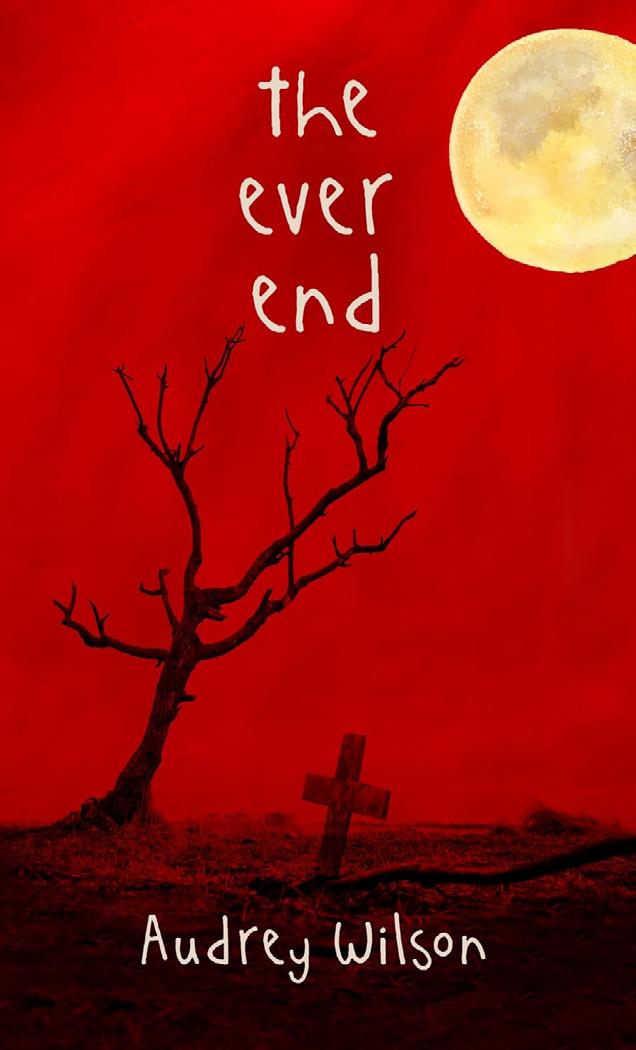
PUBLISHER:
BYWATER BOOKS
Audrey Wilson’s The Ever End is an unsettling psychological horror that lingers long after the final page. Combining family secrets, religious dread, and creeping paranoia, Wilson masterfully crafts a slow-burning nightmare where reality warps and trust dissolves.
Margo’s visit to her fiancé’s family in rural Iowa should be a joyous occasion, but from the moment she arrives, something feels off. The Wailing family is warm and welcoming, yet their traditions are unnervingly rigid, their smiles just a little too rehearsed. As Margo tries to navigate their expectations, the past she thought she left behind starts bleeding into her present. A shadowed figure from her childhood reappears, whispering cryptic warnings, and she begins to question what is real and what is slipping through the cracks of her own mind.
Wilson’s writing is hypnotic, drawing readers into Margo’s unraveling world with an atmosphere thick with tension. Each chapter builds upon the last, tightening its grip, leading to an ending that is as shocking as it is inevitable. Fans of Shirley Jackson and Hereditary will find echoes of that same slowburning terror—a story where fear is not in what jumps out at you, but in the truths that refuse to stay buried.
This is a novel that preys on the fear of losing control—of your choices, your reality, and your very sense of self. Wilson understands that true horror is deeply personal, and she crafts a protagonist whose doubts, traumas, and spiraling paranoia make every page more unsettling than the last. The Wailing family’s suffocating presence, the eerie rural setting, and the constant undercurrent of something just out of reach all work together to make The Ever End a deeply immersive experience.
More than a horror novel, The Ever End explores the terror of losing control—of your choices, your identity, and even your grip on reality. Fans of Shirley Jackson and Hereditary will find much to love in Wilson’s atmospheric, nerve-twisting storytelling.


BlueInk Review offers professional book reviews ofindependently published and self-published books.
A fee-based book review service for self-published books. All of our book reviewers are professional reviewers with bylines from major newspapers and periodicals and senior editors from major NY publishing houses. All of our reviews are honest and credible.
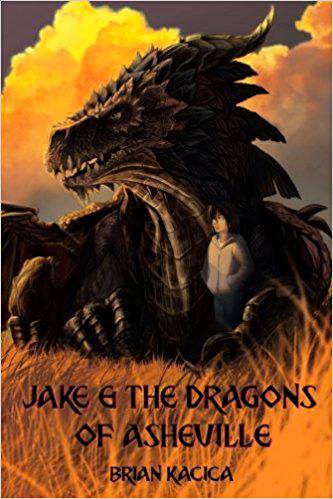
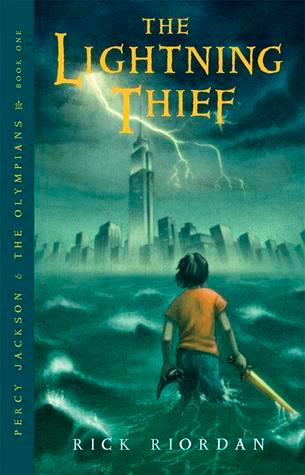
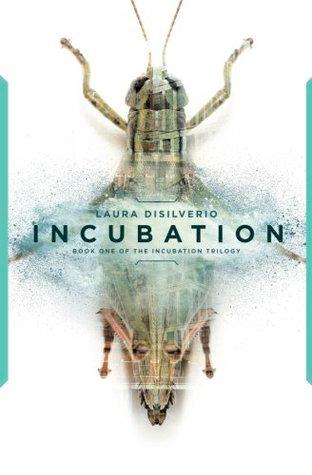
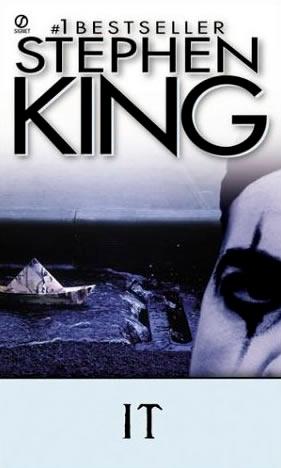

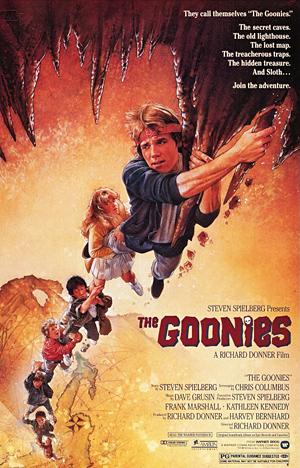
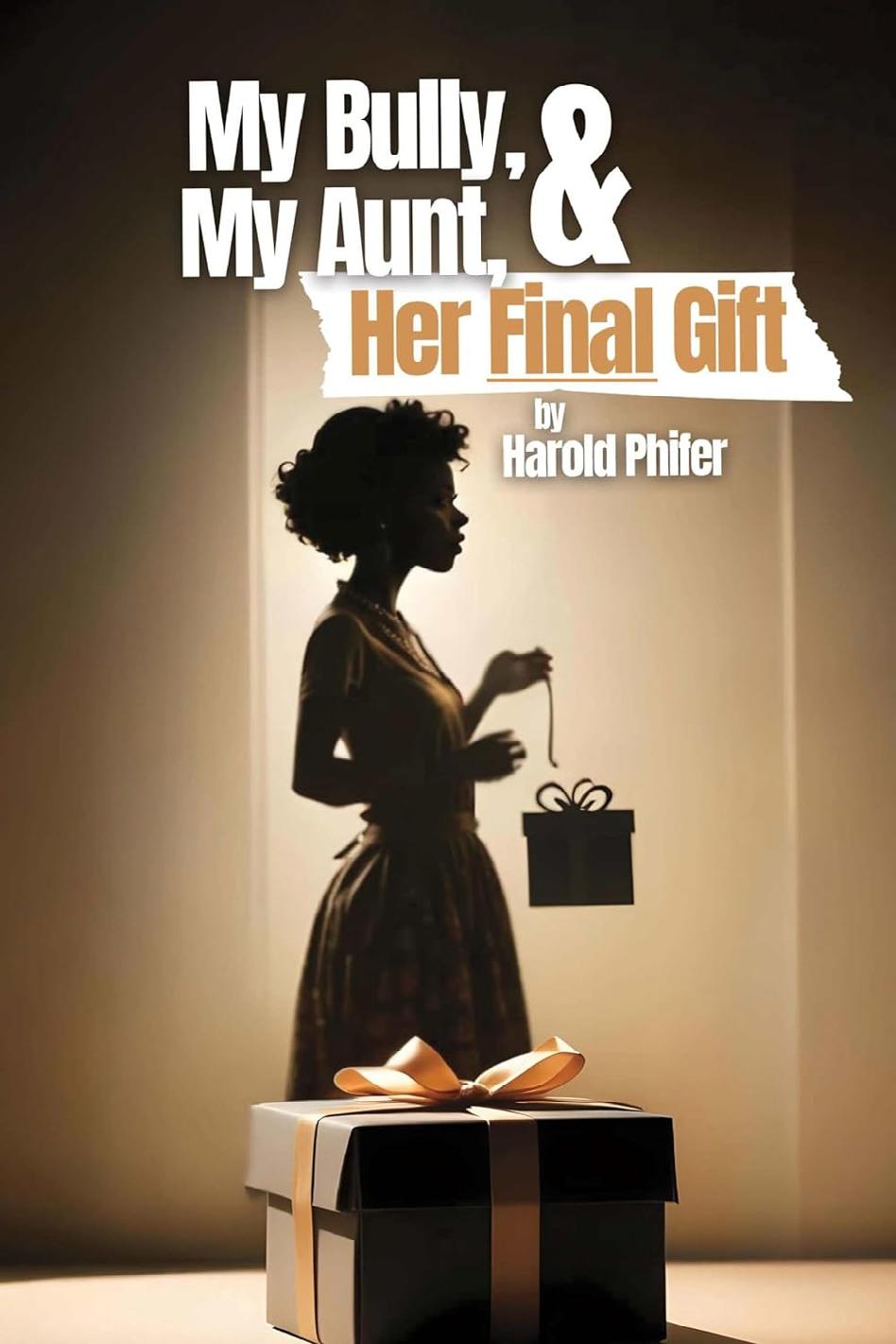
BY HAROLD PHIFER
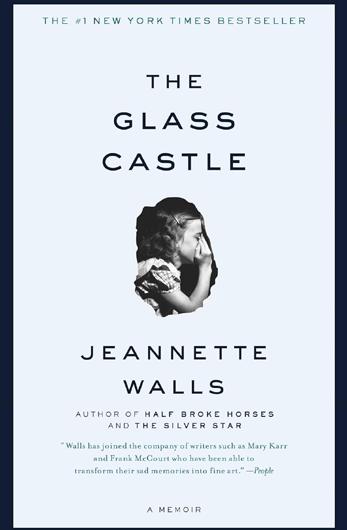
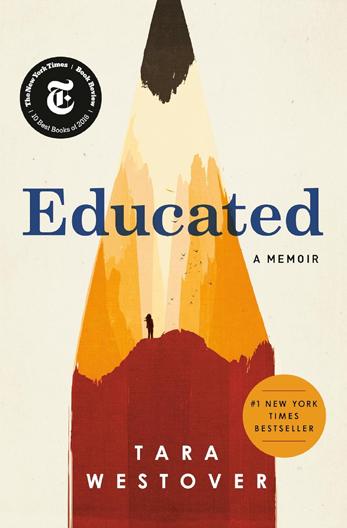
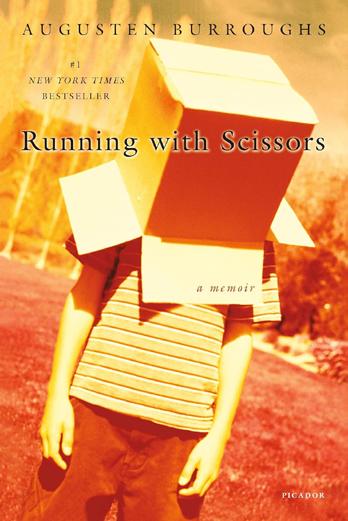
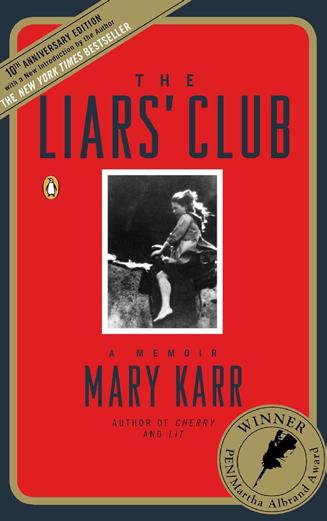
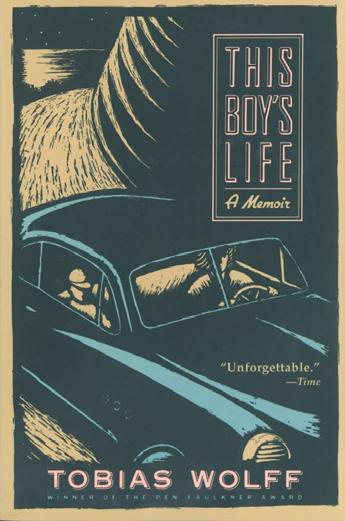
BY SARAH KLOTH

For years, the story was always the same: e-books were a thing, but print was king. Sure, digital books had their moment, but readers were apparently running back to the feel of paper. And then, something changed. In the UK, for the first time in over a decade, the six largest publishers saw growth in e-book sales. In the U.S., digital book sales jumped nearly 17% in just one month in 2024, raking in over $83 million by April and hitting $90.5 million by September. Worldwide, e-books are set to pull in $14.61 billion this year alone, with numbers climbing steadily through 2029. The resurgence is real, people, and it’s time we rethink what we thought we knew about digital reading.
So, what’s behind this sudden boom in e-books? It’s not just one thing—it’s a whole mix. First off, convenience is a huge draw. Digital libraries fit right in your pocket, and let’s be real: the ability to buy a book and start reading it in seconds? That’s an addicting kind of magic. Plus, with inflation pinching wallets, e-books are usually a lot cheaper than their print cousins, making them a solid alternative. And for those of us with a conscience, there’s also the ecofriendly angle. A growing number of readers are opting for paperless reading to help reduce their carbon footprint.
But really, it’s all of this combined, plus the way social media is reshaping how we consume content, that’s fueling this rise.
And let’s not forget BookTok. TikTok has completely changed the game for books, turning once-forgotten backlist titles into must-haves overnight. With e-books, there’s no waiting for shipping or even a quick trip to the bookstore— just see the latest recommendation, tap a button, and boom, it’s on your device. Instant gratification at its finest.
But it’s not just about social media trends. E-books are also changing how we read. One reader put it like this: “When I’m reading on my Kindle, I can’t see how thick the book is, and it helps me blast through it. But when I pick up a paperback and see how much is left, it’s like ‘Ugh, there’s so much more to go.’” This little psychological trick is helping readers power through bigger, more intimidating books, or binge entire series, without the dread of a massive tome staring them in the face.
That doesn’t mean print is on its way out—far from it. In fact, e-books are making physical books even more valuable. “I read on my Kindle, but when I finish a book I really love, I have
to get the paperback. It’s like a trophy for my shelf,” one reader shared. This hybrid reading habit—devouring books digitally but collecting physical copies of favorites—is keeping both formats alive and kicking.
For publishers, this means rethinking their strategies. The resurgence of e-books isn’t just some passing trend— it’s a wake-up call that digital sales are an essential part of the modern book biz. Services like Kindle Unlimited and Scribd are changing the way we read, and indie authors are thriving with selfpublishing platforms that don’t require jumping through traditional hoops. Even independent bookstores are jumping on the e-book bandwagon, with platforms like Bookshop.org offering digital books to ensure they’re not left behind in this new world.
As technology keeps evolving, readers are demanding more options, more convenience, and more access across different platforms. We’re talking about the ability to switch seamlessly between reading on your phone, tablet, or e-reader without skipping a beat. It’s all about flexibility—people want to read how they want, when they want, and where they want.
This has led to the rise of systems that let readers store their libraries across devices, keeping their progress in check no matter what gadget they’re using.
At the end of the day, the future of reading isn’t a battle between digital and print—it’s a coexistence. The resurgence of e-books proves that readers want options. And as we keep evolving with new tech, industries, and habits, one thing is crystal clear: people still love stories. The real question is, how will they choose to experience them? Whether it’s on a screen or a page, one thing’s for sure—people are hungry for a good book, and they’ll keep finding new ways to get it.


Shelf Unbound book review magazine announces the Shelf Unbound Writing Competition for Best Self-Published Book. Any self-published book in any genre is eligible for entry. Entry fee is $100 per book. The winning entry will be selected by the editors of Shelf Unbound magazine.
To submit an entry, Apply Online at www.shelfmediagroup. com/competitions.
THE TOP FIVE BOOKS, as determined by the editors of Shelf Media Group, will receive editorial coverage in the Winter issue of Shelf Unbound. The author of the book named as the Best Self-Published book will receive editorial coverage as well as a year’s worth of full-page ads in the magazine.

The deadline for entry is midnight on October 1, 2025.
CHECK OUT
Nobody loves books more than us. We're a team of readers with broad interests and strong feelings about the books on our shelves.
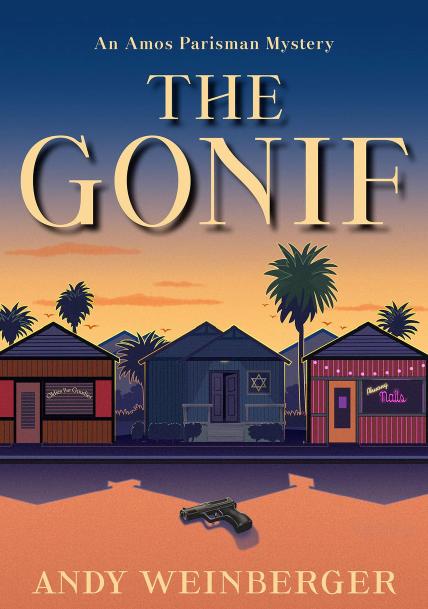
THE GONIF by Andy Weinberger
LA’s oldest and most unconventional Jewish gumshoe has returned to stop a heist before it happens in the exciting fifth installment of the Amos Parisman Mystery series!
To escape the predations of the Nazis, a rare two-hundred-yearold Torah is quietly smuggled out of a doomed North African Jewish community in the dead of night and put aboard a ship. Eventually, it makes its way to safety across the Atlantic. Generations after the war has ended, it resides in obscurity in a small, rundown Sephardic temple in Hollywood. The peace is shattered, however, when suddenly someone tries to break in and abscond with it.
Amos Parisman, a local, agnostic, aging gumshoe, is recruited to thwart the would-be burglar. This sets him off on a madcap plunge into the world of international art and antiquities, and the ruthless kind of people who will stop at nothing—not even murder—to own them.
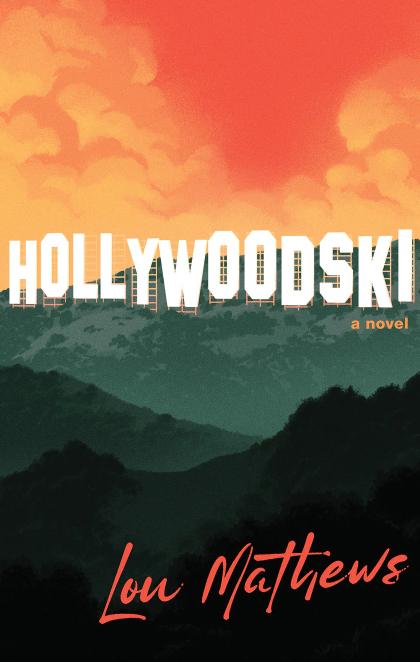
HOLLYWOODSKI by Lou
Mathews
A compelling novel-in-stories, Hollywoodski showcases a selfdescribed “faded” screenwriter’s forty-year career.
Dale Davis is a man encumbered by a natural writing talent, corrupted by early success, and reduced to scrambling for crumbs. He arrives in Hollywood, unbattered and innocent, with a novel about his days as an almost Olympic-caliber swimmer. But his faith in the prevailing powers of talent and justice in Tinseltown leaves him essentially black-listed and unemployable, a talented writer who just can’t get paid. Despite the fading of a once-promising career, Davis still believes that his talent will propel him back into prominence. But that belief, in Hollywood, is about as realistic as the belief that “Someday my prince will come,” and as likely to make you depressed and crazy.
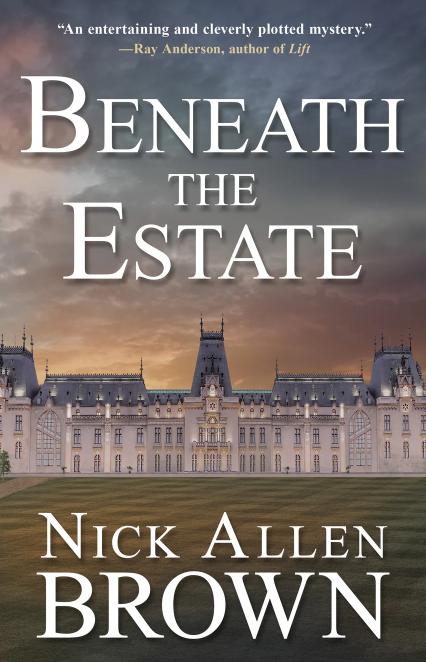
by
Nick Allen Brown
After remaining sealed for generations, a hidden room is discovered in the basement of the famed Biltmore Estate. Within the musty, decaying confines of the hidden room, a large mechanical machine comes to light. Crafted with intricate gears, levers, and sophisticated mechanisms, the contraption is hailed as a significant archaeological discovery. The esteemed board of directors overseeing the operations of the Biltmore Estate enlists the expertise of Professor Dr. Daniel Garrison to unravel the purpose and origin of this enigmatic machine.
While Dr. Garrison investigates, readers are transported back to the year 1906, when George Vanderbilt II commissions an inventor to construct this mysterious apparatus. What secrets lie within this machine? Why was it brought into existence?
This compelling tale unfolds across intertwining narratives—the investigation of the machine in the present day and its creation back in 1906—to deliver a captivating and riveting ending.
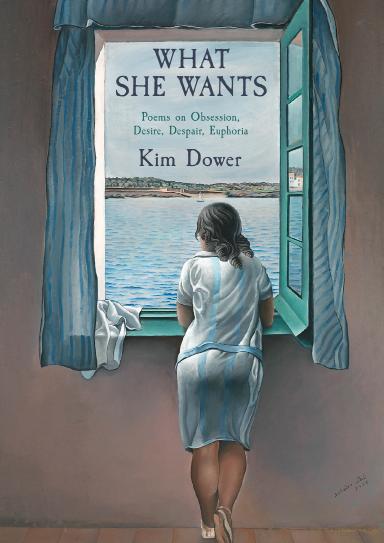
by Kim Dower
Following the commercial and literary success of her bestselling poetry collection, I Wore This Dress Today for You, Mom: Poems on Motherhood,Kim Dower delivers What She Wants: Poems on Obsession, Desire, Despair, Euphoria—turning her keen eye, vibrant imagination, trademark insight, and humor to the intensity of obsessive love. These steamy and provocative poems, combining humor and heartache, run through the four phases of Limerence, the state of being infatuated or obsessed with another person: Infatuation, Crystallization, Deterioration, and Ecstatic Release. From the opening poem, “She’ll do anything for food,” to the sexy title poem, “What She Wants,” the painfully funny, “His Other Girlfriend,” to the longing in “Visiting Baudelaire,” and the sad, sweet final poem, “Fish’s Lament,” Kim Dower captures the essence of what it means to be stuck on someone—even on a squirrel! Her eclectic, growing readership will savor these poems that can be read in one sitting, like a story with an arc, or separately, each one recalling the moment of falling in or out of love, the moment our hearts skipped a beat.
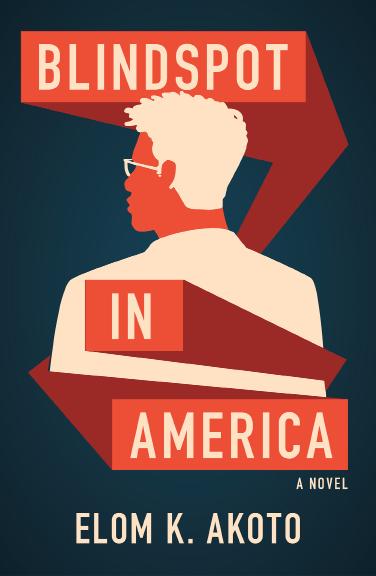
by Elom K. Akoto
Blindspot in America gives a provocative depiction of some of the realities immigrants face in the United States—racism and discrimination— but also their hopes and faith in a country that promises freedom and opportunity to all. Kamao is the son of a prominent Ghanaian academic and incumbent minister of health and is devoted to all that America symbolizes. After immigrating to the United States in pursuit of higher education and the American Dream, he becomes unwittingly entangled with American politics when he meets Lindsey McAdams, the daughter of an influential, anti-immigration senator. As the couple’s feelings grow, so too does the senator’s animosity toward Kamao. Despite support from fellow immigrants Lazo, Ayefumi, and Dania—who follow American Dreams of their own— Kamao soon finds himself drawn into intrigues hidden from the American public that make him question himself and his adopted country. When Kamao is implicated in a murder, Lindsey’s loyalties are tested, Dania must decide if she is willing to risk her own future and security for the sake of justice, and Kamao discovers how far he’ll go to fulfill his American Dream.
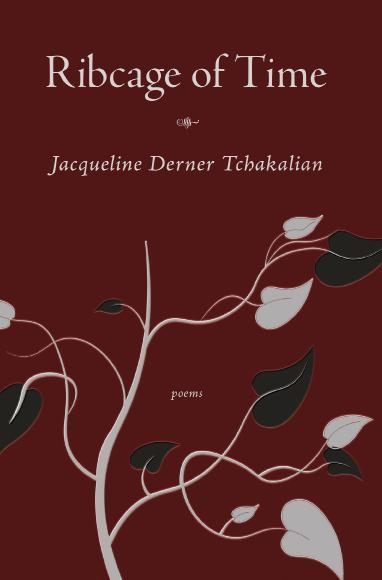
RIBCAGE OF TIME by
Jacqueline Derner Tchakalian
Ribcage of Time, a poetry collection from a woman’s point of view, is both intimate and universal in its scope of events—family life, birth, death, rape, abortion, genocide from a poet on the ledge of some eighty years of life with language fresh and unsettling.
The poems in Jacqueline Tchakalian’s second poetry collection, Ribcage of Time, refer to Armenian genocide, public murder, rape, home abortions, including one outside the home with tragic repercussions for the writer. These poems have an ever-present wish for improvement, a more sane and equitable society for all. They reference family, the joy of having and being around children, the predicted loss of an ill husband, a plan for a different type of god. They are reflective poems that question the future, make strong assertions, and overall are imbued with hope for the future.
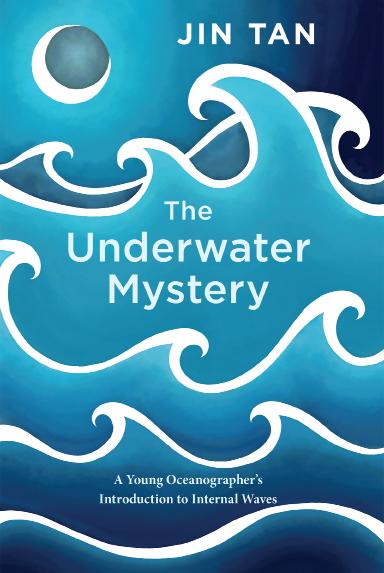
Jin Tan
Dive into the depths of the unknown with The Underwater Mystery, where Jin Tan leads the adventure! Imagine a world where the ocean holds incredible secrets—like waves you can’t even see from the surface. Follow Jin as she unravels the fascinating science of internal waves, mysterious forces that can stop ships in their tracks, and even affect submarines. Travel back in time to learn about the strange “dead water” phenomenon, first experienced by real-life explorer Dr. Fridtjof Nansen. Explore how these invisible waves shape our climate, protect coral reefs, and present unexpected challenges to submarines!
Packed with mind-blowing facts, hands-on experiments you can try at home, and thrilling true stories, Jin guides you through a hidden world beneath the ocean’s surface. Find out why the Arctic ice is melting faster, how waves can form and travel between layers of water without losing its identity, and what makes these mysterious waves so powerful. Ready to dive into an ocean full of hidden wonders? Join Jin Tan in The Underwater Mystery for an unforgettable adventure!

Christian Teresi
What Monsters You Make of Them interrogates ecology and injustice through shifting landscapes and ancient cities.
Stand astonished at a painting, venerate the mugshot of a poet, riff on a comedian’s quip, and recall a mentor persevering through grief. Speak of headhunters, of word origins, of saints and gods stitched into a newfound pantheon, of the multiverse as a source of reincarnation. Visit ancient cities, national parks, a sundry of gardens, and the ruins of a farmhouse. A teacher fails to help a student. A student explains war to her teacher. Seize back the forgotten. Kneel to not knowing. Interrogate ecology and injustice through shifting landscapes and know What Monsters You Make of Them.
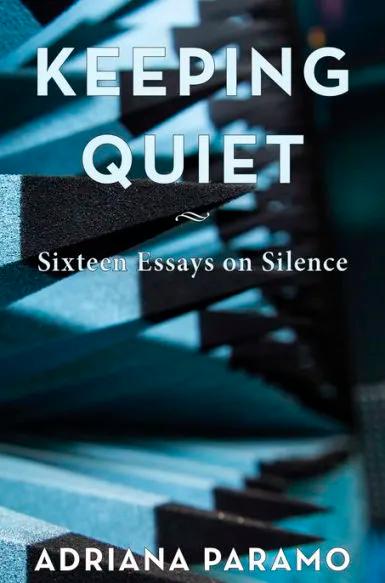
by Adriana Paramo
In Keeping Quiet, Páramo has collected essays addressing what it is like to live in a world of silence or the absence thereof. This collection covers a wide range of angles and experiences, from an exploration of IBM’s anechoic chamber—the world’s quietest place— to stories of incest, marriage, sexual harassment, social justice, and first-person accounts of life in the emirate of Qatar.
Páramo crosses the borders between art (Mozart, Monet, Beethoven, Sheila Chandra, Neruda) and yoga, between research and drunkenness, between despair and triumph, weaving the intimate and personal with what is upsetting in women’s health industry.
In “Belated Comebacks,” Páramo is full of righteous anger; in “Teaching Mom Long Division,” she explores the oceanic depths of longing; in “Writers of Color,” she examines the complexities of being brown and speaking accented English; in “Three Women,” she exposes the social underbelly of Qatar during the pandemic, then mixes it all with personal reckonings.
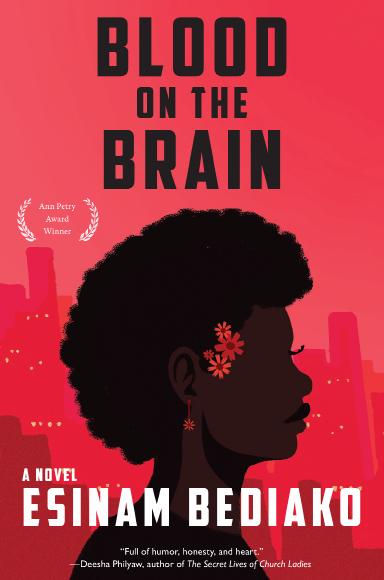
by Esinam Bediako
An impulsive, madcap, and newly concussed young woman comes of age as she navigates her Ghanaian American identity, her relationships, and the muddled landscape of history, memory, imagination, and delusion.
Twenty-four-year-old Akosua is easily knocked off her feet. When she falls and hits her head, she’s too preoccupied with her latest dramas to fully absorb the shock. In the span of three months, she has broken up with her boyfriend Wisdom, discovered that her deadbeat dad has moved back to the States from Ghana, and dropped so many classes that she believes she’s the only history grad student in the history of grad students to be registered for just one partialcredit class. Instead of facing her problems, Akosua seeks distraction in Daniel, a “good Ghanaian man.” But as her head injury worsens, she questions whether she can continue to run away from her father any more than she can keep ignoring her brain and its traumas. Vibrant, funny, and bittersweet, Blood on the Brain is a novel about the complications of family, romance, and culture—and how coming of age can feel like a blow to the head.
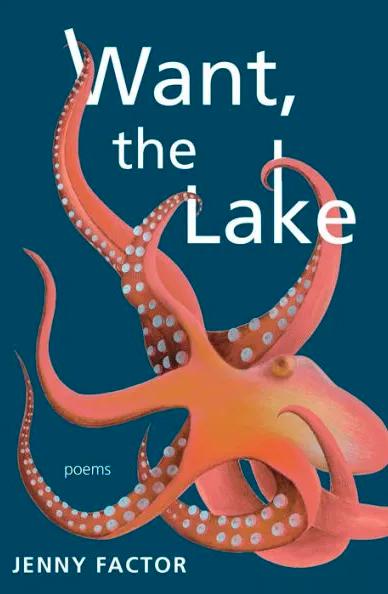
Jenny Factor
With all the power of a longbrewing storm, the brilliant poet Jenny Factor finally returns to make public the interior work and spoils of decades in Want, the Lake, her second poetry collection. This book spans twenty years of life—accumulated wisdom, images, and desires—with a dedication to craft that has been honed and clarified by time.
Once again, Jenny Factor makes language ring like a sheep’s bell, like ripples on a lake where you encounter a lover. Like precise and accurate attention to the myriad truths and touchings of nature, human nature, childhood, motherhood, freedom, captivity. Turning and turning, Factor is a shimmering lighthouse of desire.
—Alicia Ostriker, author of Waiting for the Light and The Volcano and After: Selected and New Poems, 2002–2019

Ben and Corinthia spent years abducting college coeds, until one night they took the wrong victim . . .
No one knew witnessing their first murder at seven would propel Ben and his twin toward a killing spree in Pennsylvania. Racked with guilt, they vow to take just one more victim. Too bad they snatched the wrong woman.
“This is such a fun and thrilling read—both suspenseful and humorous, frightening and charming. In several passages, just when you think you have it all figured out, Aliah Wright turns the tables and springs a new, but plausible trap. And, whatever you do, don’t peek at the surprise ending first! A terrific debut by a promising writer with a diverse set of fantastic characters, I highly recommend Now You Owe Me.”
—Dugald Bruce-Lockhart, author of The Lizard
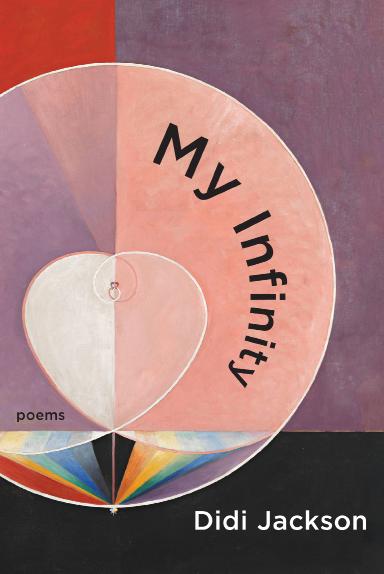
MY INFINITY by
Didi Jackson
In her second collection, My Infinity, Didi Jackson continues her exploration of the paradoxical meaning of a world where joy and sorrow simultaneously coexist. These poems investigate both sacred and natural spaces. Her poems move grief and emotional suffering to language as a site of recovery and renewal. Much of this collection is ordered around the work of the Swedish visual artist Hilma af Klint. As the first artist to arguably use abstraction, her radical work brims with enigmatic botanical images painted to grasp the seemingly boundless and hermetic realm of the dead. Similarly, Jackson’s poems explore plant life and natural species in the Green Mountains of Vermont, where perceived thresholds blur in acts of spiritual reimagining. This is a book that questions all that is endless, all that has been thought as limiting, and all that remains unknown.
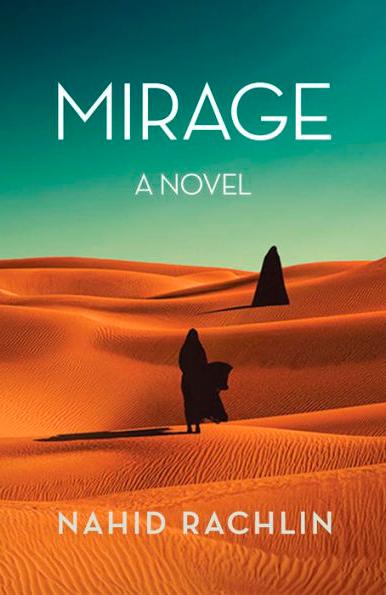
Nahid Rachlin
Set in contemporary Iran, Mirage delves into the complicated relationship between Roya and her identical twin sister, Tala. Their inseparable bond becomes hard to maintain as they grow older, but when they both get pregnant at the same time, their relationship is rekindled. After an accident causes Roya to miscarry and Tala to go into labor, grief, jealousy, suspicion, and guilt fracture that recently renewed relationship. Delving deep into the human psyche, Nahid Rachlin intricately explores themes of sisterly identity, betrayal, envy, depression, loss, and the impact of memories. Like Ottessa Moshfegh’s Death in Her Hands (Penguin Press, 2020), Mirage artfully juxtaposes the sociopolitical dynamics of contemporary Iran with a story of the nature of grief and redemption that will take firm hold of your heart.
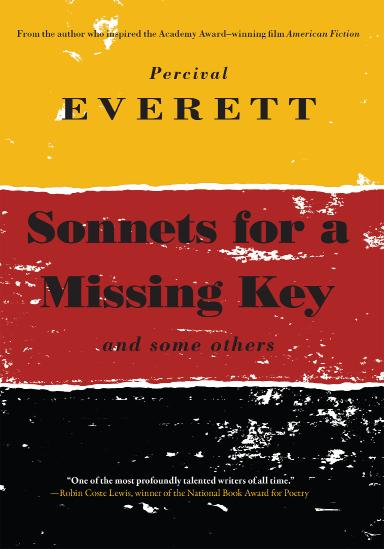
by Percival Everett
Author of the instant national bestsellers, James and Erasure—the inspiration for the Oscar-winning film American Fiction—Percival Everett is diving back into poetry with his spellbinding new collection, Sonnets for a Missing Key.
Inspired by the Preludes of Chopin and the piano solos of Art Tatum, these sonnets leap and turn through philosophical musings accrued across a life well lived, with inventive language, crystalline imagery, and turns of phrase that lift off the page and glimmer. Everett’s sonnets soar through the musical scale, from A Minor to A Major, exploring relationships, spirituality, compassion, despair, and how the stories we tell ourselves shape our realities.
Everett continuously defies convention with every creative expression and brings his literary audacity back to his poetic roots with this, his sixth collection with Red Hen Press.
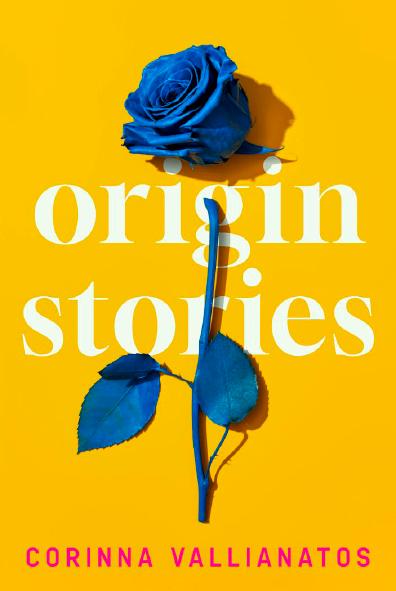
by
Corinna Vallianatos
The stories in Origin Stories take as their subject the sources of love, marriage, motherhood, friendship, artistic ambition, restiveness, and shame. Their narrators perceive more than is explicable, want more than they have, and contend with the bounty and frugality of their relationships. In “This Isn’t the Actual Sea,” a woman considers that her friend’s failure and sudden success have given her the material she needs to write something of her own, if she’s willing to risk the friendship to do so. “The Artist’s Wife” describes, in a painting stowed in a bowling alley broom closet, the chasm between seeing and being seen. “Dogwood” is a piece of lyric reportage on beauty, family, and survival whose sections range from the narrator’s childhood to her son’s new adulthood. And “Origin Story” acts as an accounting of the many different states where a woman and her husband have lived, and what it is they’ve been searching for.
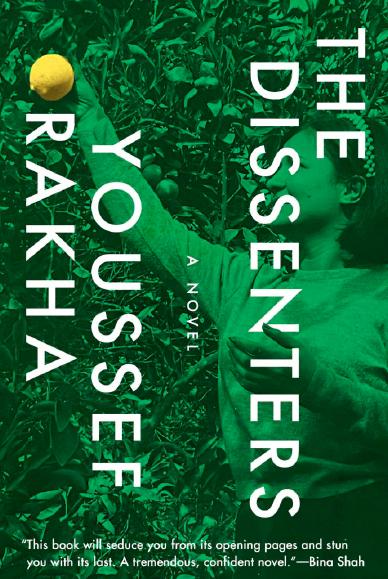
by
Youssef Rakha
Amna, Nimo, Mouna—these are all names for a single Egyptian woman whose life has mirrored that of her country. After her death in 2015, her son, Nour, ascends to the attic of their house where he glimpses her in a series of ever more immersive visions: Amna as a young woman forced into an arranged marriage in the 1950s, a coquettish student of French known to her confidants as Nimo, a self-made divorcee and a lover, a “pious mama” donning her hijab, and, finally, a feminist activist during the Arab Spring. Charged and renewed by these visions of a woman he has always known as Mouna, Nour begins a series of fevered letters to his sister—who has been estranged from Mouna and from Egypt for many years—in an attempt to reconcile what both siblings know about this mercurial woman, their country, and the possibility for true revolution after so much has failed.
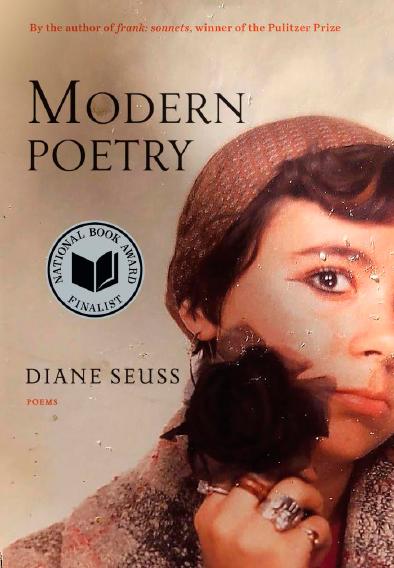
by Diane Seuss
Diane Seuss’s signature voice—audacious in its honesty, virtuosic in its artistry, outsider in its attitude—has become one of the most original in contemporary poetry. Her latest collection takes its title, Modern Poetry, from the first textbook Seuss encountered as a child and the first poetry course she took in college, as an enrapt but ill-equipped student, one who felt poetry was beyond her reach. Many of the poems make use of the forms and terms of musical and poetic craft—ballad, fugue, aria, refrain, coda—and contend with the works of writers overrepresented in textbooks and anthologies and those too often underrepresented. Seuss provides a moving account of her picaresque years and their uncertainties, and in the process, she enters the realm between Modernism and Romanticism, between romance and objectivity, with Keats as ghost, lover, and interlocutor.

COMPANY by Shannon
Sanders
Shannon Sanders’s sparkling debut brings us into the company of the Collins family and their acquaintances as they meet, bicker, compete, celebrate, worry, keep and reveal secrets, build lives and careers, and endure. Moving from Atlantic City to New York to DC, from the 1960s to the 2000s, from law students to drag performers to violinists to matriarchs, Company tells a multifaceted, multigenerational saga in thirteen stories.
Each piece includes a moment when a guest arrives at someone’s home. In “The Good, Good Men,” two brothers reunite to oust a “deadbeat” boyfriend from their mother’s house. In “The Everest Society,” the brothers’ sister anxiously prepares for a home visit from a social worker before adopting a child. In “Birds of Paradise,” their aunt, newly promoted to university provost, navigates a minefield of microaggressions at her own welcome party. And in the haunting title story, the provost’s sister finds her solitary life disrupted when her late sister’s daughter comes calling.
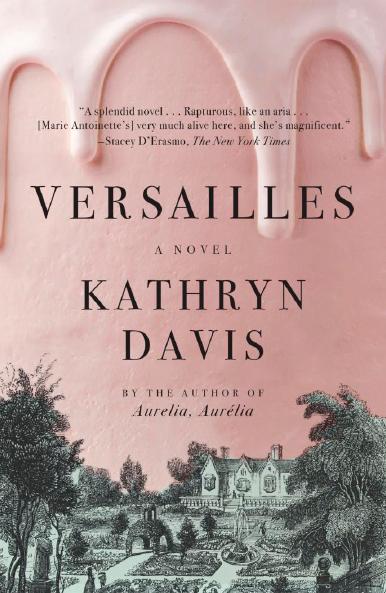
by
Kathryn Davis
Versailles tells the story of an expansive spirit locked in a pretty body and an impossible moment in history. As the novel begins, fourteen-year-old Marie Antoinette is traveling from Austria to France to meet her fiancé. He will become the sixteenth Louis to rule France, and Antoinette will be his queen— though neither shows a strong inclination toward power, politics, or the roles they have been summoned to play. Antoinette finds herself hemmed in by towering hairdos, the xenophobic suspicion of her subjects, the misogyny of her detractors, and the labyrinthine twists and turns of the palace she calls home.
At once witty, entertaining, and astonishingly wise, this widely acclaimed novel is an enchanting meditation on girlhood, womanhood, architecture, and— above all—time and the soul’s true journey within it. Shaken free of the dust of history and calcified myth, Antoinette is “very much alive here, and she’s magnificent” (Stacey D’Erasmo, The New York Times Book Review).
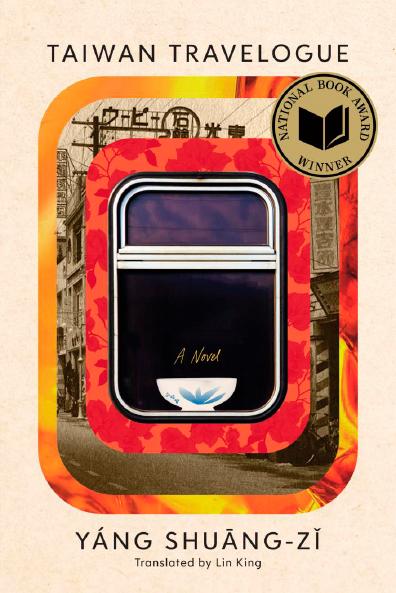
TAIWAN TRAVELOGUE by Yang
Shuang-Zi
May 1938. The young novelist Aoyama Chizuko has sailed from her home in Nagasaki, Japan, and arrived in Taiwan. She’s been invited there by the Japanese government ruling the island, though she has no interest in their official banquets or imperialist agenda. Instead, Chizuko longs to experience real island life and to taste as much of its authentic cuisine as her famously monstrous appetite can bear. Soon a Taiwanese woman—who is younger even than she is, and who shares the characters of her name—is hired as her interpreter and makes her dreams come true. The charming, erudite, meticulous Chizuru arranges Chizuko’s travels all over the Land of the South and also proves to be an exceptional cook. Over scenic train rides and braised pork rice, lively banter and winter melon tea, Chizuko grows infatuated with her companion and intent on drawing her closer. But something causes Chizuru to keep her distance. It’s only after a heartbreaking separation that Chizuko begins to grasp what the “something” is.

Lucy Ives
Again, today, if I must choose between love and memory, I choose memory. What would you risk to know yourself? Which stories are you willing to follow to the bitter end, revise, or, possibly, begin all over? In this collection of five interrelated essays, Lucy Ives explores identity, national fantasy, and history. She examines events and records from her own life—a childhood obsession with My Little Pony, papers and notebooks from college, an unwitting inculcation into the myth of romantic love, and the birth of her son—to excavate larger aspects of the past that have been suppressed or ignored. With bracing insight and extraordinary range, she weaves new stories about herself, her family, our country, and our culture. She connects postmodern irony to eighteenth-century cults, Cold War musicals to a great uncle’s suicide to the settlement of the American West, museum period rooms to the origins of her last name to the Assyrian genocide, and the scifi novel The Three-Body Problem to the development of modern obstetrics. Here Ives retrieves shadowy sites of pain and fear and, with her boundless imagination, attentiveness, and wit, transforms them into narratives of repair and possibility.
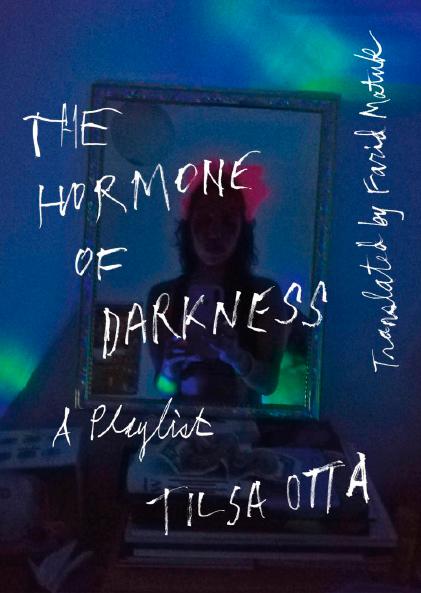
Tilsa Otta
In Tilsa Otta’s The Hormone of Darkness, we find a queer, Latinx person who has lived through iterations of authoritarian rule, and who answers these conditions by creating poetry that doubles down on a life force that precedes and exceeds received notions of the poetic. Here poetry is bawdy, fabulist, and spiritual—in short, it is alive. Otta has created a heaven where readers can go after they die.
Drawing from four volumes spanning Otta’s career, translatorpoet Farid Matuk has curated a playlist we can dance and dream to, one that honors Otta’s drive toward liberation through both perreo in the club and transdimensional wandering among the stars.
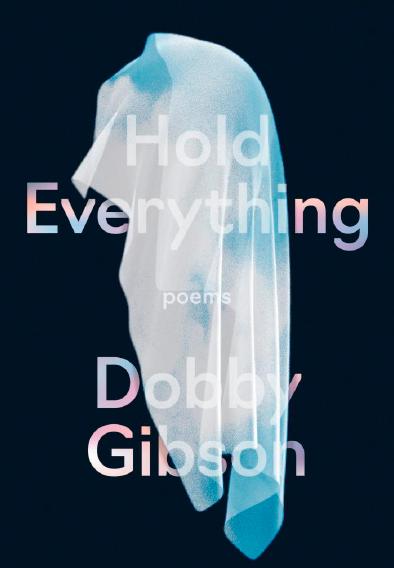
HOLD EVERYTHING by Dobby
Gibson
In his latest collection, Dobby Gibson explores the strangeness of the everyday with fresh urgency, inviting us to reawaken and reclaim our fuller selves. Hold Everything moves at the speed of breaking news as it makes a plea for grace in a world running short on mercy. Its epistolary poems put us in correspondence with Edo-period poets and 1980s hair-metal gods, artificial intelligence and hotel soaps. Gibson’s poems remain on alert, demonstrating the many ways a deeper attention to the marvels and horrors of the contemporary world can form a kind of civil disobedience.
Hold Everything gathers up the harbingers of our turbulent world as it reaches for hope and evinces wonder.

Yuri Herrera
New Orleans, 1853. A young exile named Benito Juárez disembarks at a fetid port city at the edge of a swamp. Years later, he will become the first indigenous head of state in the postcolonial Americas, but now he is as anonymous and invisible as any other migrant to the roiling and alluring city of New Orleans.
Accompanied by a small group of fellow exiles who plot their return and hoped-for victory over the Mexican dictatorship, Juárez immerses himself in the city, which absorbs him like a sponge. He and his compatriots work odd jobs, suffer through the heat of a southern summer, fall victim to the cons and confusions of a strange young nation, succumb to the hallucinations of yellow fever, and fall in love with the music and food all around them. But unavoidable, too, is the grotesque traffic in human beings they witness as they try to shape their future.
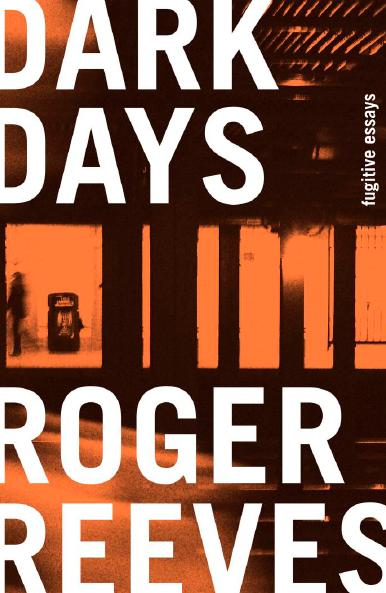
DARK DAYS by Roger Reeves
In his debut work of nonfiction, award-winning poet Roger Reeves finds new meaning in silence, protest, fugitivity, freedom, and ecstasy. Braiding memoir, theory, and criticism, Reeves juxtaposes the images of an opera singer breaking a state-mandated silence curfew by singing out into the streets of Santiago, Chile, and a father teaching his daughter to laugh out loud at the planes dropping bombs on them in Aleppo, Syria. He describes the history of hush harbors—places where enslaved people could steal away to find silence and court ecstasy, to the side of their impossible conditions. In other essays, Reeves highlights a chapter in Toni Morrison’s Beloved to locate common purpose between Black and Indigenous peoples; he visits the McLeod Plantation, where some of the descendants of formerly enslaved people lived into the 1990s; and he explores his own family history, his learning to read closely through the Pentecostal church tradition, and his passing on reading as a pleasure, freedom, and solace to his daughter, who is frightened the police will gun them down.
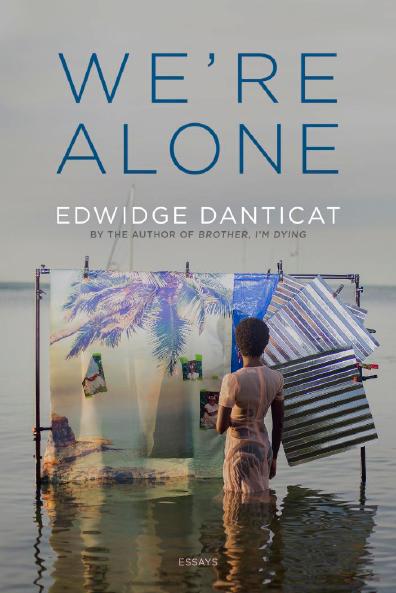
WE’RE ALONE by Edwidge Danticat
Tracing a loose arc from Edwidge Danticat’s childhood to the COVID19 pandemic and recent events in Haiti, the essays gathered in We’re Alone include personal narrative, reportage, and tributes to mentors and heroes such as Toni Morrison, Paule Marshall, Gabriel García Márquez, and James Baldwin that explore several abiding themes: environmental catastrophe, the traumas of colonialism, motherhood, and the complexities of resilience.
From hurricanes to political violence, from her days as a new student at a Brooklyn elementary school knowing little English to her account of a shooting hoax at a Miami mall, Danticat has an extraordinary ability to move from the personal to the global and back again. Throughout, literature and art prove to be her reliable companions and guides through both tragedies and triumphs.
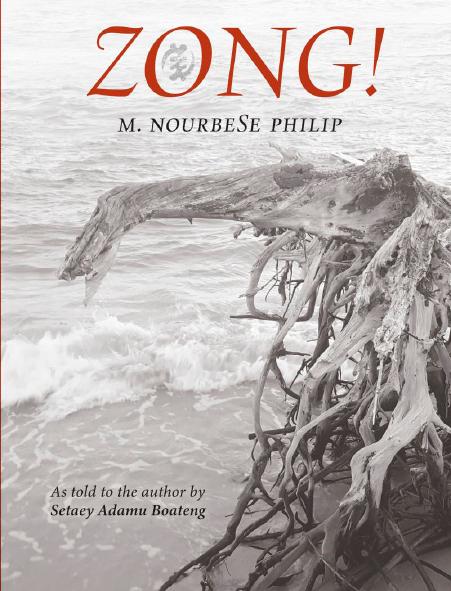
ZONG by M. Nourbese
Philip
In November 1781, the captain of the slave ship Zong ordered that some 150 Africans be murdered by drowning so that the ship’s owners could collect insurance monies.
Relying entirely on the words of the legal decision Gregson v. Gilbert—the only extant public document related to the massacre—Zong! tells the story that cannot be told yet must be told. Equal parts song, moan, shout, oath, ululation, curse, and chant, Zong! excavates the legal text. Memory, history, and law collide and metamorphose into the poetics of the fragment. Through the innovative use of fugal and counterpointed repetition, Zong! becomes an antinarrative lament that stretches the boundaries of the poetic form, haunting the spaces of forgetting and mourning the forgotten.
This fifteenth-anniversary edition features a new preface by the author and new essays by Saidiya Hartman and Katherine McKittrick. Widely regarded as one of the most influential and revered works of twenty-firstcentury literature, this new edition of Zong! will ensure this staggering work’s enduring legacy.
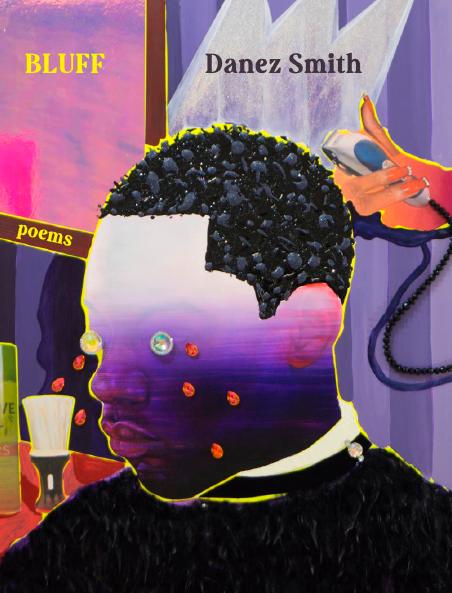
BLUFF by Danez Smith
Written after two years of artistic silence, during which the world came to a halt due to the COVID-19 pandemic and Minneapolis became the epicenter of protest following the murder of George Floyd, Bluff is Danez Smith’s powerful reckoning with their role and responsibility as a poet and with their hometown of the Twin Cities. This is a book of awakening out of violence, guilt, shame, and critical pessimism to wonder and imagine how we can strive toward a new existence in a world that seems to be dissolving into desolate futures.
Smith brings a startling urgency to these poems, their questions demanding a new language, a deep self-scrutiny, and virtuosic textual shapes. A series of ars poetica gives way to “anti poetica” and “ars america” to implicate poetry’s collusions with unchecked capitalism. A photographic collage accrues across a sequence to make clear the consequences of America’s acceptance of mass shootings. A brilliant long poem—part map, part annotation, part visual argument—offers the history of Saint Paul’s vibrant Rondo neighborhood before and after officials decided to run an interstate directly through it.
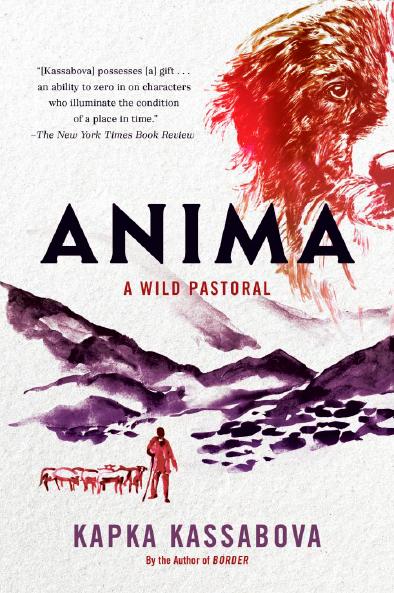
In Anima, Kapka Kassabova introduces us to the “pastiri” people—the shepherds struggling to hold on to an ancient way of life in which humans and animals exist in profound interdependence. Following her three previous books set in the Balkans, and with an increasing interest in the degraded state of our planet and culture, Kassabova reaches further into the spirit of place than she ever has before. In this extraordinary portrayal of pastoral life, she investigates the heroic efforts to sustain the oldest surviving breeds of our domesticated animals, and she shows us the epic, orchestrated activity of transhumance— the seasonal movement, on foot, of a vast herd of sheep, working in tandem with dogs. She also becomes more and more attuned to the isolation and sacrifices inherent in the lives shaped by this work.
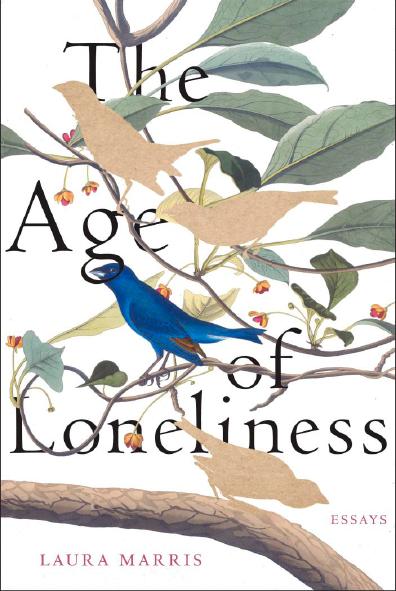
Laura Marris
In this debut essay collection, Laura Marris reframes environmental degradation by setting aside the conventional, catastrophic framework of the Anthropocene in favor of that of the Eremocene, the age of loneliness, marked by the dramatic thinning of wildlife populations and by isolation between and among species. She asks: How do we add to archives of ecological memory? How can we notice and document what’s missing in the landscapes closest to us?
Filled with equal parts alienation and wonder, each essay immerses readers in a different strange landscape of the Eremocene. Among them are the Buffalo airport with its snowy owls and the purgatories of commuter flights, layovers, and long-distance relationships; a life-size model city built solely for self-driving cars; the coasts of New England and the ever-evolving relationship between humans and horseshoe crabs; and the Connecticut woods Marris revisits for the first time after her father’s death, where she participates in the annual Christmas Bird Count and encounters presence and absence in turn.
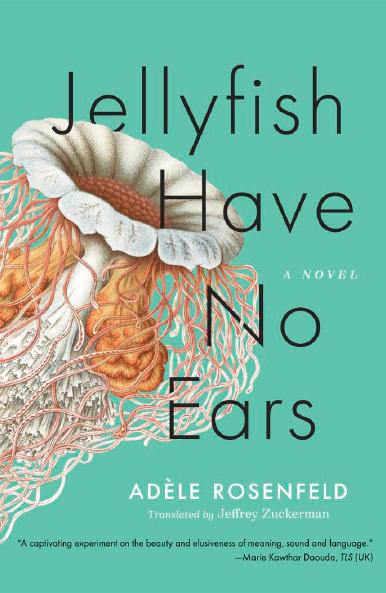
Adele Rosenfeld
Since she was little, Louise has been not quite hearing and not quite deaf—her life with this invisible disability has been one of in-betweenness. After an audiology test shows that almost all her hearing is gone, her doctor suggests getting a cochlear implant. The operation will be irreversible, making the decision all the more fraught. The technology would give Louise a new sense of hearing—but it would be at the expense of her natural hearing, which, for all its weakness, has shaped her unique relationship with the world, full of whispers and shadows.
Hearing, for Louise, is inseparable from reading other people’s lips. Through sight, she perceives words and strings them together like pearls to reconstruct a conversation. But when the string breaks, misunderstandings result and eccentric images fill her thoughts. As she weighs the prospect of surgery, fabulous characters begin to accompany her: a damaged soldier from the First World War, an irritable dog named Cirrus, and a whimsical botanist. This ethereal world, full of terror and beauty and offkilter humor, keeps erupting into the equally chaotic reality of Louise’s life as she experiences a new relationship, suffers through her first job, and steadies herself with friends.
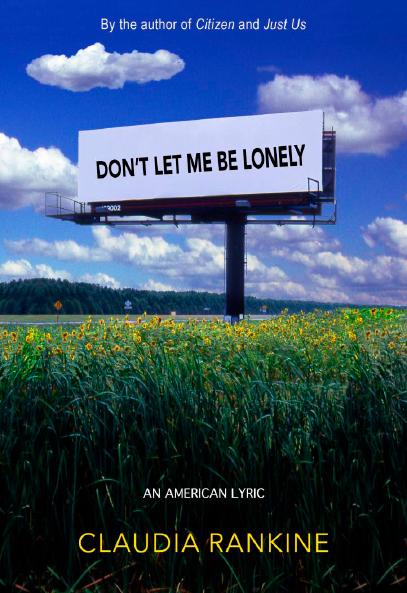
DONT LET ME BE LONELY by
Claudia Rankine
A brilliant and unsparing examination of America in the early twenty-first century, Claudia Rankine’s Don’t Let Me Be Lonely invents a new genre to confront the particular loneliness and rapacious assault on selfhood that our media have inflicted upon our lives. Fusing the lyric, the essay, and the visual, Rankine negotiates the enduring anxieties of medicated depression, race riots, divisive elections, terrorist attacks, and ongoing wars—doom scrolling through the daily news feeds that keep us glued to our screens and that have come to define our age.
First published in 2004, Don’t Let Me Be Lonely is a hauntingly prescient work, one that has secured a permanent place in American literature. This new edition is presented in full color with updated visuals and text, including a new preface by the author, and matches the composition of Rankine’s bestselling and award-winning Citizen and Just Us as the first book in her acclaimed American trilogy.
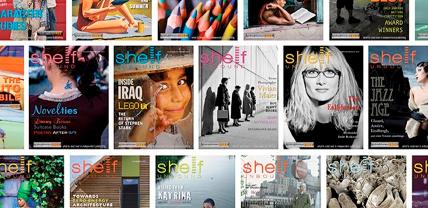

A reader lives a thousand lives before he dies. The man who never reads lives only one."
– GEORGE R.R. MARTIN, A DANCE WITH DRAGONS
